

November 14 - 17, 2024












November 14 - 17, 2024









About the 44th Annual Conference
Welcome Letter from Congresswoman Rashida Tlaib
Acknowledgements (From the National Office)
Conference Maps
Conference Services
Pre-Conference Programs
Presidential Address & Opening Plenary
Plenary Sessions
Presidential Sessions
Sponsored Sessions
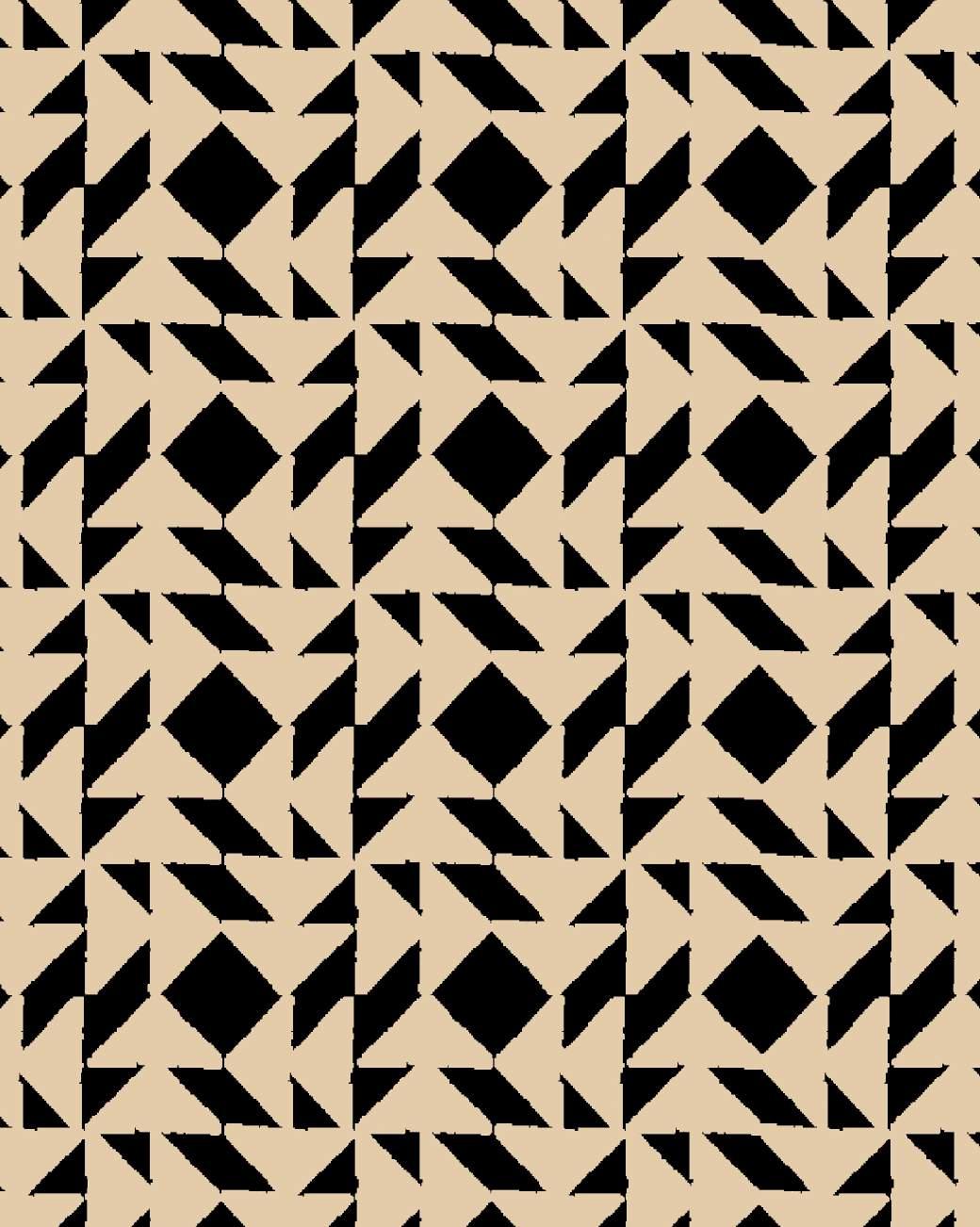
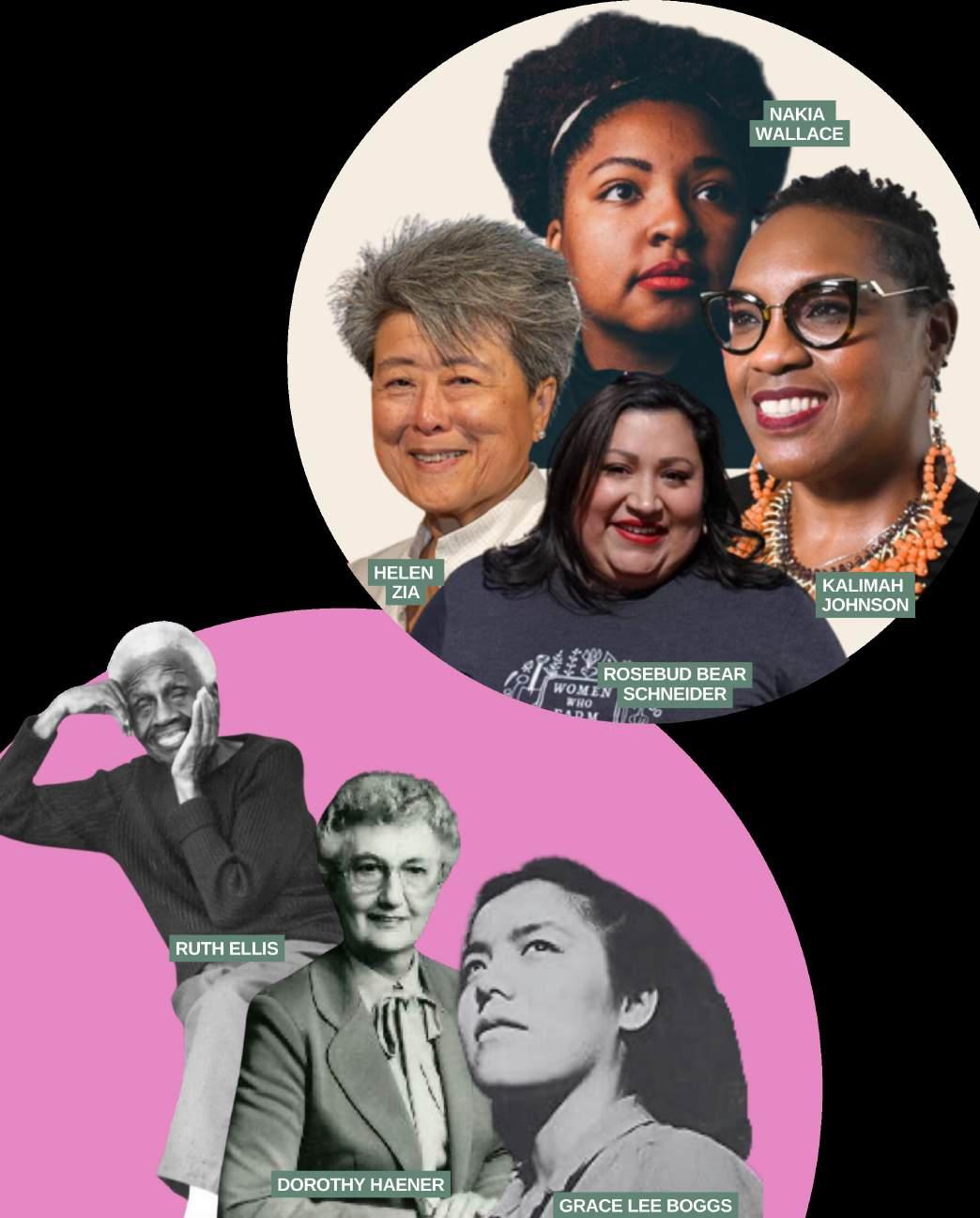
The ills of the world that are of great concern to our field require so much certainty and urgency. Yet, as I get older and nourish my efforts to become more thoughtful, my commitments to curiosity, complexity, and carefulness grow stronger. As President, that is the spirit in which I aim to lead us through our annual meeting. Our conference is a space where we gather to think about, discuss, and develop strategies to resist myriad forms of subjugation and oppression. We gather to teach and learn from one another, to support and care for one another, to celebrate one another, and to share in each other’s pain and joy. I cannot overstate the importance of this during a time when attacks on our field are more pronounced than ever. At the same time, it’s just as important to attend to the complicated contours of our relationships with one another. We are and should be working together to end the occupations of Palestine, Okinawa, Kashmir, Tigray, and all other colonized lands. We are and should be working together to end sexual assault, intimate partner violence, and all other forms of gendered oppression. But what happens when heterosexism, ableism, and colonialism show up in us? What happens when we perpetuate anti-Black racism, transantagonism, and xenophobia? What happens when we privilege the arrival at the expense of the journey? What happens when we sacrifice critical connections in favor of galvanizing critical mass?
There will never be one answer to these questions. Nevertheless, my hope is for us to collectively raise and interrogate them for the sake of what I’ve often referred to as the always advantageous but sometimes contentious contours of solidarity.
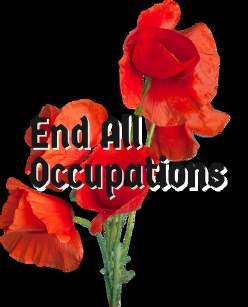
To do so, we must start by acknowledging that we will gather on stolen land developed with stolen and exploited labor. Waawiiyaataanong, what most of us have come to know as Detroit, is the homeland of the Anishinaabe, the Three Fires Confederacy of the Ojibwe (Chippewa),Odawa (Ottawa), and Bodewatomi (Potawatomi). In 1807, the Treaty of Detroit was signed, and approximately 8 million acres of Chippewa, Ottawa, Potawatomi, and Wyandot land was ceded to the U.S. Government. That same year, Judge Augustus B. Woodward presided over the Supreme Court of the Territory of Michigan case that determined “all slaves living … in possession of settlers” on May 31, 1793 would remain slaves for the rest of their lives. We will gather approximately 5 miles from the home of James May, a militia colonel and appointed Chief Justice of the Court of Common Pleas who enslaved Black and Indigenous people and exploited indentured servants. As we gather to listen, talk, laugh, cry, dance, and sing, we must also work together to routinely name, interrogate, and resist colonialism in Detroit and throughout the world.
I invite us to do so guided by what my sistafriend Aishah Shahidah Simmons calls the “Black radiant light” of our revolutionary ancestor Grace Lee Boggs. The Motor City was her home for over 60 years and the place where she founded the National Organization for an American Revolution with her husband Jimmy 45 years ago. Hence, our theme honors two of her quotes—my favorites.
In The Next American Revolution: Sustainable Activism for the Twenty-First Century (2012), she suggested “activism can be the journey rather than the arrival” and that “movements are born of critical connections rather than critical mass.” Even though we may be certain about our many intended destinations, I invite us to nurture curiosity about our journeys and connections with each other. Above all else, this is the lesson from Boggs that resonates most with me. Motown is also the home of other radical ancestors and elders like Ruth Ellis, Dorothy Haener, Maria Anita Guadiana, and Helen Zia, as well as contemporaries like Huwaida Arraf, Kalimah Johnson, Rosebud Bear Schneider, Mona Mawari, Danielle Daguio, Nakia Renne’ Wallace, Kirsten Kirby-Shoote, and countless others who continue to share their resistive and generative wisdom and strength. After most of us return home, the tireless work of Detroit Will Breathe, Freedom House Detroit, the Sasha Center, Detroit Action, LGBT Detroit, Whenever We’re Needed, Jewish Voice for Peace Detroit, the North American Indian Association, Detroiters Working
for Environmental Justice, the James and Grace Lee Boggs Center, our colleagues at Wayne State and nearby colleges and universities, and other collectives will continue.
As we seek to be nourished by our annual conference, may we also uplift and nourish our Motor City comrades who seek justice for victims of police brutality, refugees, asylum seekers, youth, victims of sexual violence, low or no income residents fighting housing and food insecurity, people of color, women, LGBTQ communities, and others who are vulnerable to subjugation and oppression—year round and often without recognition, support, or encouragement.
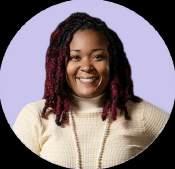
Our Conference Co-Chairs are selected by the Association President for their deep commitment to feminist work - in and outside of traditional academia - expertise, and relationship to our conference city in order to help curate a dynamic conference experience for our membership.
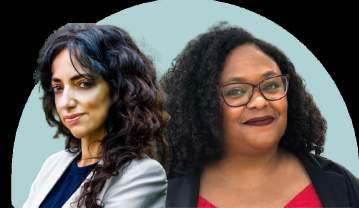
Huwaida Arraf is a Palestinian-American human/civil rights attorney, activist, mom, and freedom rider; a Detroit native, she is the co-founder of International Solidarity Movement and former chair of Free Gaza Movement. In 2003 and 2004, the ISM was nominated for the Nobel Peace Prize and continues to galvanize over 10,000 volunteers committed to justice for Palestine.
In solidarity,

Lydia Kelow-Bennett is an Assistant Professor of Afroamerican and African Studies at the University of Michigan; her areas of research include U.S. Black feminist thought, U.S. Black popular culture, and Black cultural studies.
Lydia also previously served as chair of the Women of Color Caucus and sits on the advisory board of the Women of Color Leadership Project (WoCLP).
NWSA is especially grateful for the perspectives and expertise as we attend to the contours of place and space in planning for our annual convening in Detroit, MI USA.
Rabab Abdulhadi, San Francisco State University
Sadaf Ali, Eastern Michigan University
Marilyn Batchelor, Claremont Graduate University
Courtney Carroll, NWSA
Shareia N. Carter, University of Michigan-Dearborn
Kristian Contreras, NWSA
Beth Currans, Eastern Michigan University
Simone Chess, Wayne State University
Miriam Furlan Brighente, Eastern Michigan University
Simone Dixon, University of Michigan-Dearborn
Prathim-Maya Dora-Laskey, Alma College
Dyann Logwood, Eastern Michigan University
Jessica Moorman, Wayne State University
Laura Rusch, University of Michigan-Dearborn
Governing Council members
Heidi R. Lewis, President (2023-2025)
Stephanie Troutman Robbins, Vice President (2023-2025)
Erica L. Williams, Secretary (2023- 2024)
Karma Chávez, Treasurer (2023-2024)
Jessica Pabón-Colón, Member-at-Large (2023- 2024)
Dominique C. Hill, Member-at-Large (2023- 2024)
Latoya Lee, Member-at-Large (2023-2025)
Lisa Covington, Women of Color Caucus (2019 - 2024)
Valerie Taylor, Women of Color Caucus (2021- 2024)
National Office Staff
Courtney Carroll, Operations Manager
Kristian Contreras, Executive Director
Brailey Harris, NWSA Fellow
Italia Quintana, NWSA Fellow
Rabab Abdulhadi, San Francisco State University
Ibtisam M. Abujad, Marquette University
Roksana Alavi, University of Oklahoma
Whitney Archer, Oregon State University
Gabriel Atchison, D’Youville University
Deja Beamon, University of Missouri-Kansas City
Abigail N Burns, The University of Texas at Austin
LJ Connolly, University of South Florida
Li Cornfeld, Five College Women’s Studies
Research Center
Becca Cragin, Bowling Green State University
Lindsay Davis, Worcester Polytechnic Institute
Taylor Marie Doherty, University of Arizona
LaToya Eaves, The University of Tennessee Knoxville
Debby Flickinger, World Futures Journal
Dawn Flood, University of Regina
Chris Fowler, Ohio University
Madhurima Guha, Arizona State University
Yuhan Huang, Rochester Institute of Technology
Senay Imre, University at Buffalo
Clare Jen, Denison University
Lydia Kelow-Bennett, University of Michigan, Co-Chair
Heidi R. Lewis, Colorado College
Danielle Lutman, University of Toledo
Jessica Mathiason, University of Maryland
Kristen McHenry, University of Massachusetts
Dartmouth
Elizabeth Miller, University of Michigan
Lindsey Mosvick, West Chester University
Kim Hong Nguyen, University of Waterloo
Casey Olthaus, Miami University
Melissa Ooten, University of Richmond
David Ornelas, Texas Tech University
Indulata Prasad, Arizona State University
Marcy Quiason, Lawrence University
Noralis Rodriguez-Coss, Gonzaga University
Corinne Schwarz, Oklahoma State University
Mehra Shirazi, Oregon State University
Claudine O Taaffe, Vanderbilt University
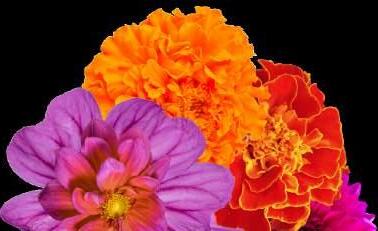
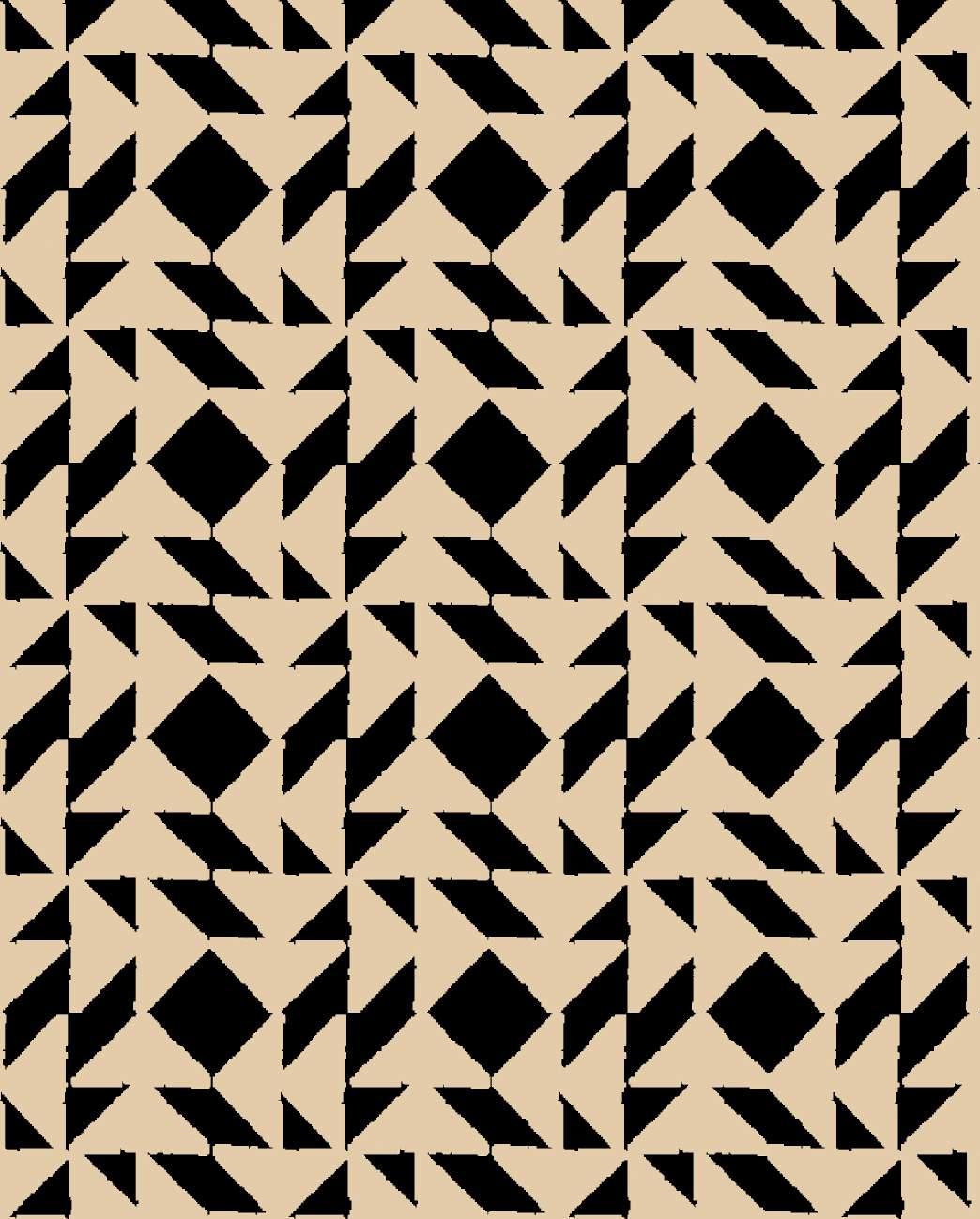
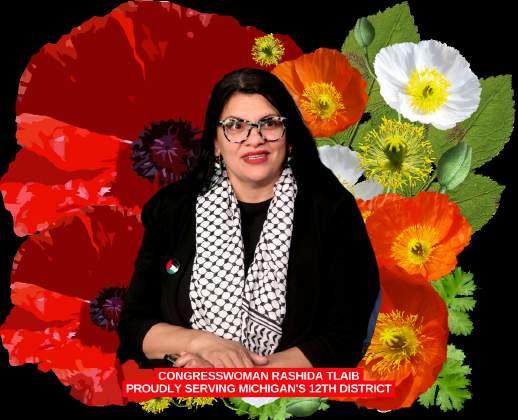
September 27, 2024

Dear Advocates,
I am excited to welcome the attendees of National Women’s Studies Association’s (NWSA) 44th Annual Conference to the city of Detroit. Thank you for helping to advance and creating safe spaces for educators to think and exchange ideas. This year’s theme, "The Journey Not Only the Arrival, Critical Connections Not Only Critical Mass: (Re) Thinking Feminist Movements" is thoughtful as you all gather to think about, discuss, and develop strategies to resist myriad forms of subjugation and oppression. I wish you all a successful convening as you teach and learn from one another, as well as support and care for one another, and to share in each other’s pain and joy.”
The NWSA has brought together educators and higher education administrators together at this signature annual conference to Detroit and I thank you for convening this important event for our communities to network, connect, and forge new relationships within this academic community.
I offer you all a warm welcome to the most beautiful Blackest city in the nation where we birth movements.
Sincerely,

Rashida Tlaib Member of Congress
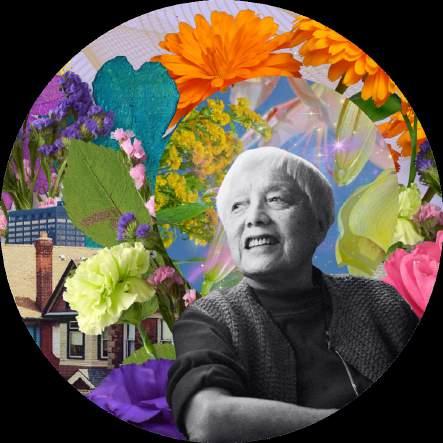

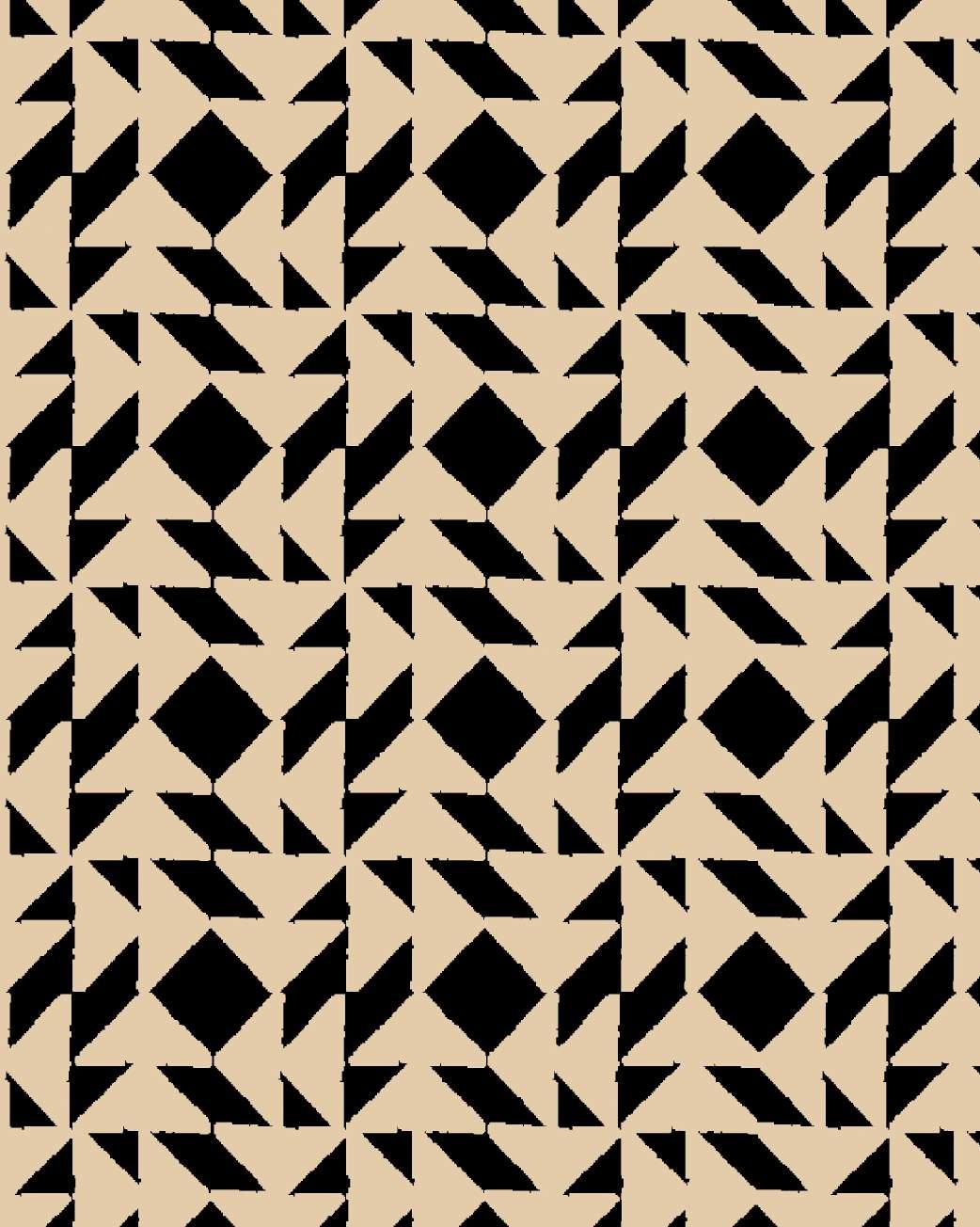
“Community is not something we have, it’s something we do.”
– Grace Lee Boggs
On behalf of the National Women’s Studies Association, I extend my deepest gratitude to the people, places, collaborations, innovations, and grace that made the 44th Annual Conference possible. I feel incredibly honored to co-curate my first Annual Conference alongside generous and deeply committed thought partners in Waawiyatanong Detroit, Michigan USA. The people I have met along this journey helped foster a profound love and respect for the rich history of activism, resistance, and creativity that continues to thrive throughout its many communities. In our work, we found kinship among local businesses, activists, educators, and feminist troublemakers who so generously agreed to support our Association. We especially offer our thanks to the people – often Black and Brown folks – who labor to keep our space at the Detroit Marriott at the Renaissance Center and the Huntington Place Convention Center clean and safe, the workers who kept us fed and well during our receptions and events, and to all whose names are unknown that worked – with intention and care – to help our team host our 2024 Annual Conference.
In this Chrysalis Season of growth, change, missteps, and adventure, I am privileged and supremely grateful to work alongside Courtney Carroll, our Operations Manager. As a two person team, it is a gift to see her sharpen her feminist voice and to witness her fierce dedication to supporting our membership. We are nestled, steadfast, in our figurative chrysalis, and dreaming up new and reinvigorated
ways of fostering community, intellectual excitement, and {r}evolution in the ways James and Grace Lee Boggs embodied in their life and work. While we imagine the vibrancy of our metaphorical wings, we take flight under the vision and leadership of President Heidi R. Lewis. Rather than remain mired in the challenges of (re) building NWSA, she dove into enacting a feminist ethic of accountability, care, and joy in reshaping the norms and culture of what it means to lead this Association. I am forever grateful to do this work as thought partners and with the encouragement to stand, firmly rooted, as a feminist world builder in my own right.
The legacy of James and Grace Lee Boggs invites us to curate our time together with love, respect, curiosity, and care for the city of Detroit and the people who make each community space bright and vibrant. We are honored by the generosity, compassion, and guidance of our kin at the James and Grace Lee Boggs Foundation. Their team continuously supports the NWSA and remain steadfast in building awareness, as the Boggs wrote in their dedication of Revolution and Evolution in the Twentieth Century, “of the need for profound and drastic change” among those of us “who want to do something to improve human life and are ready to dedicate their lives to this goal, but who are unable to see a path, a direction for their dedication.” Scott Kurashige, Alice Jennings, Aurora Harris, and Gloria House are gifts from the universe - I cannot imagine this journey without their guidance and encouragement;
in uplifting the lessons of the Boggs, their support illuminated our own path and were a compass in providing a direction for our dedication.
Thank you, always, for everyone who made this experience - our annual convening in Motown - a tangible reality that once lived in the frame of our vision board. You’ll note, throughout our program book, acknowledgements and thank you’s across our community. It is my hope that as we gather together, that gratitude threads us together as we are among a small number of folks who have the ability to connect when the socio-political facets of our realities makes it feel as if our world is on fire. Perhaps the fierceness of our commitments to (re)thinking feminist movements can light new, remade, and sometimes forgotten, pathways towards new worlds. Thank you for being here.
In Kinship,

Kristian Contreras, PhD
She, Her, Hers Executive Director

“If we think of territorial acknowledgments as sites of potential disruption, they can be transformative acts that to some extent undo Indigenous erasure. I believe this is true as long as these acknowledgments discomfit both those speaking and hearing the words. The fact of Indigenous presence should force non-Indigenous peoples to confront their own place on these lands. I would like to see territorial acknowledgments happening in spaces where they are currently absent, particularly in rural and remote areas and within the governance structures of settlers.” - Chelsea Vowel Métis
The National Women’s Studies Association’s 44th Annual Conference convenes in Waawiyatanong Detroit, Michigan USA on the unceded contemporary and ancestral lands of the Ojibwe, Ottawa, and Potawatomi, who are the Anishinaabe nations who make up the Council of Three Fires. Our conference theme The Journey Not Only the Arrival, Critical Connections Not Only Critical Mass: (Re)Thinking Feminist Movements invites interrogation of how we make visible, address, and engage ways of meaningful engagement with place-based understandings of power, dispossession, and the continued oppression of settler-colonialism. We strive

to move beyond simply affirming our relationship to land as settlers/arrivants and providing references to decoloniality in name only.
We recognize that the labor of learning the history of how we came to occupy the Indigenous lands of the United States of America is our responsibility to carry and integrate into how we do feminist work in and outside of academia. As we gather in the city of Detroit, our membership exchanges not only knowledge, resources, ideas, and strategies, but also commitments to embodying and enacting solidarity. This space of collaboration, exchange, growth, and curi-
osity must also acknowledge the myriad of ways contemporary settler colonialism thrives through US postsecondary institutions. The NWSA works to amplify the ongoing work led by Indigenous folks and their co-conspirators that interrupts hegemonic norms of coloniality and erasure.
As we gather in Waawiyatanong, we invite our members and attendees to engage with the work led by the Sacred Waters Collective, Keep Growing Detroit, the Nooni Project, the Sugarbush Project, and other Indigenous led organizations and businesses.
We’re incredibly appreciative for the energy and curiosity that our 2024 Summer Fellows brought to our virtual office. The Association partnered with the Feminist and Gender Studies Department at Colorado College to work with four undergraduate students over the summer season. We remain grateful for the collective work of Brailey Harris, Azaria Hampton, Auna McConnaughey, and Italia Quintana. Our Fellows conducted integral research projects, assisted with conference development, and challenged us to think about contemporary issues that our students face in and outside of the classroom.
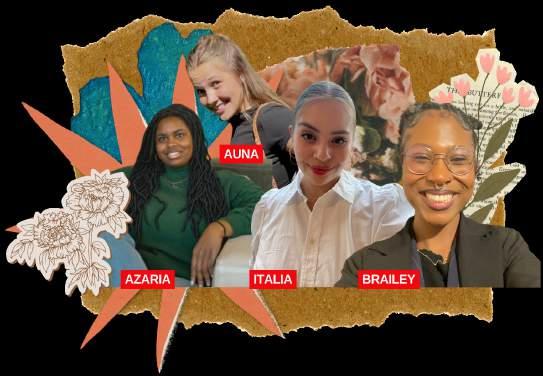

We hold a particular level of appreciation for our colleagues in our Constituency Group, Feminists for Justice in/for Palestine (F4JP), for their collaboration and grace in this season of growth for the National Women’s Studies Association. Our leadership is strengthened by our partnership and restorative work to embody all that it means to champion the liberation of Palestine as a feminist issue.
Change can be understandably hard - whether we are obstinate in trusting the unfamiliar, or nervous to try building something new without a clear roadmap. The National Women’s Studies Association is indebted to our members - the cadre of people who make our work and discipline vibrant, resistant, and fierce. The Association experienced tumultuous change over the course of the last six years and your continued support, patience, rightful critique, and calls for a truly feminist network of change makers continues to shape our growth. I hold deep thanks for our volunteer Book Prize and Award reviewers, Local Organizing and Proposal Review Committees, our Accessibility Committee, and all other forms of service that made this conference come to fruition. In my short time as Executive Director, I am grateful - all ways, always - for the work we do at our home organizations and within the contours of our lives that make this work, as Toni Cade Bambara reminds me, irresistible
“As a culture worker who belongs to an oppressed people my job is to make revolution irresistible.”
—Toni Cade Bambara
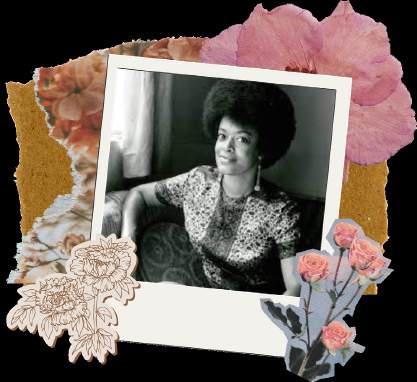

BLACK SCHO OLGIRLS IN SP ACE
Stories of Black Girlhoods Gathered on Educational Terrain
Esther O. Ohito and Lucia Mock Munoz de Luna [Eds.]

SEXSCAP ES OF PLEASURE
Women, Sexuality and the Whore Stigma in Italy
Elena Zambelli
GIRLS IN GLOBAL DEVEL OPMENT
Figurations of Gendered Power
Heather Switzer, KarishmaDesai, Emily Bent [Eds.]
WOMEN BECOMING PR ACTI CIONER RESE ARCHERS
From School Teacher to Academic
Su Lyn Corcoran, Claire Goodley, Alexandra Hay, and Anna Olsson Rost [Eds.]
TH E GIRL IN THE PA NDEMIC
Transnational Perspectives
Claudia Mitchell and Ann Smith [Eds.]

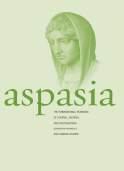

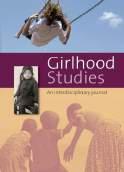


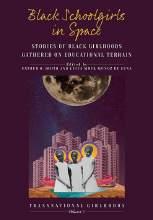

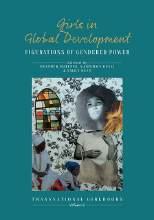

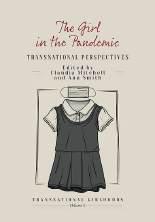

Open Access!
ASPASIA
The International Yearbook of Central, Eastern, and Southeastern European Women's and Gender History
Senior Editor: Sharon Kowalsky
Volume 17/2023
GIRLHOOD STUDIES
An Interdisciplinary Journal
Editor in Chief: Claudia Mitchell
Volume 17/2024
AN AMERICAN ICON IN PUERTO RICO
Barbie, Girlhood, and Colonialism at Play
Emily R. Aguiló-Pérez
Forthcoming! GIRLS TAKE ACTION
Activism Networks by, for, and with Girls and Young Women
Catherine Vanner [Eds.]
LIVI NG LIKE A GIRL
Agency, Social Vulnerability and Welfare Measures in Europe and Beyond
Maria A. Vogel and Linda Arnell [Eds.]
DRESSING UP
Menswear in the Age of Social Media
Joshua M. Bluteau
COMRADES I N ARMS
Military Masculinities in East German Culture
Tom Smith

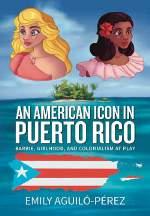



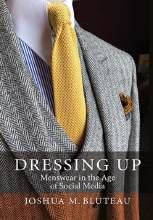

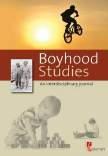

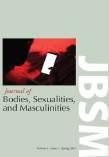
BOYHOOD STUDIES
An Interdisciplinary Journal
Editor: Michael R.M. Ward
Volume 16/2023

JOURNAL OF BODIES, SEXUALITIES, AND MASCULINITIES
Editors: Jonathan A. Allan, Chris Haywood, and Frank G. Karioris
Volume 5/2024

Registration is located on the first floor of the Huntington Place Convention Center in Room 140A.
Pre-Conference Registration (Check-In) for the Program Administration and Development (PAD), Women’s Centers Committee (WCC), Women of Color Leadership Project (WoCLP), and the Pedagogical Institute for Teaching Gender and Sexual Justice in Arab, Muslim and Palestinian Communities will take place on Thursday, November 14th. In order to participate in our annual Pre-Conference programming, applications and/or pre-registration is required.
Pre-registered attendees can pick up conference name badges and programs at our Registration Station (140A); General Conference Registration is required to attend all general conference sessions, including the keynote and plenary sessions, conference events and programming, and our receptions. We ask that attendees wear their name badges throughout the conference to assist in networking and guaranteeing access to attendee-only programming!
General Conference registration is available on site. NWSA staff and volunteers are available at registration to assist attendees. Do not hesitate to bring questions or concerns to our team’s attention - we will do our best to assist you!
THURSDAY, November 14
7:00 AM - 12:30 PM; 1:45 PM - 6:00 PM
FRIDAY, November 15
7:00 AM - 12:30 PM; 1:45 PM - 6:00 PM
SATURDAY, November 16
7:00 AM - 12:30 PM; 1:45 PM - 6:00 PM



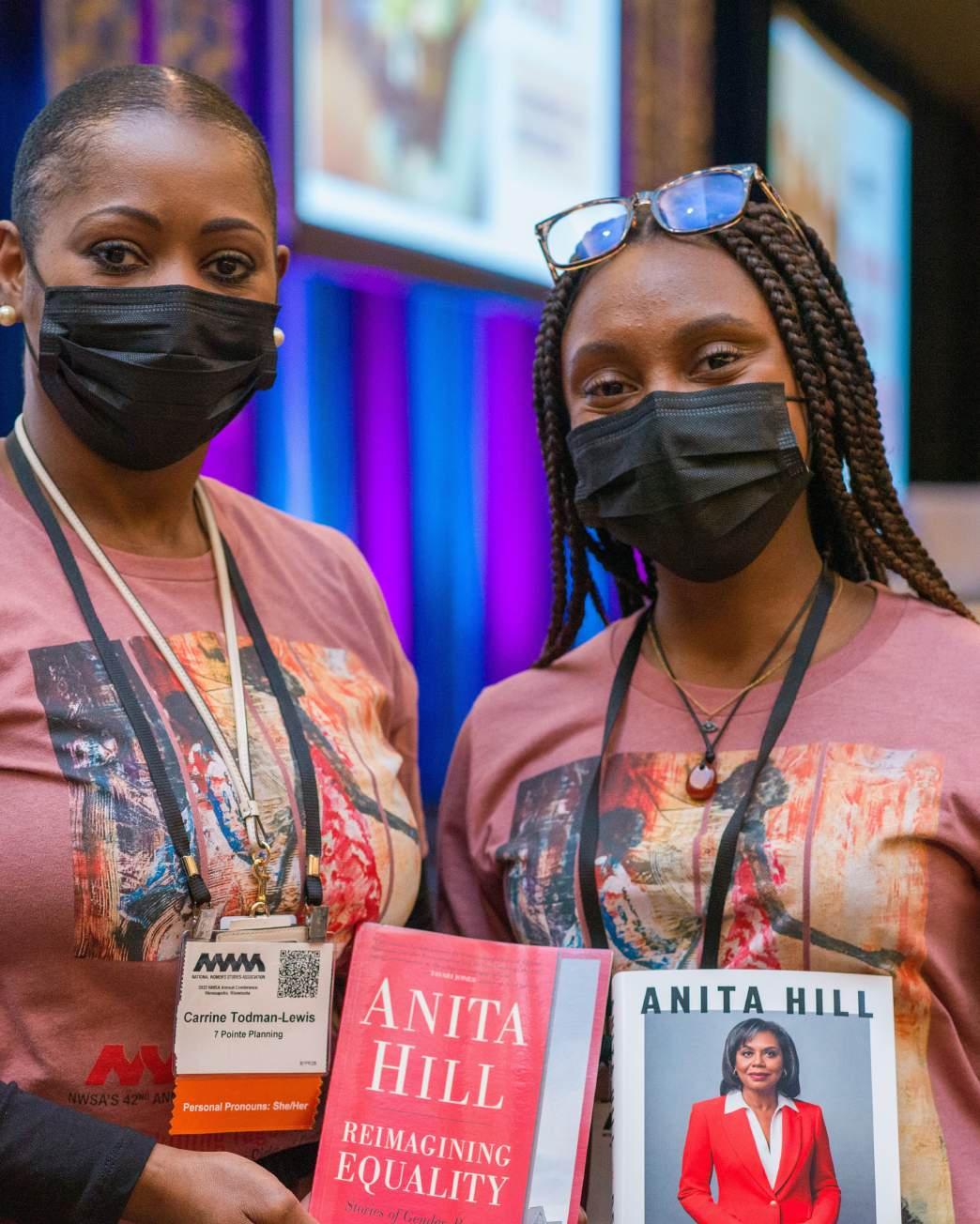
Follow us on Instagram @nwsa_ig
be sure to tag us in any of your conference memories! Don’t forget to use #NWSA2024
Room 140B
Thursday-Saturday | 7:30 am- 6:30 pm Sunday, 7:30 AM - 3:30 PM
In line with our mission and commitment to enacting a feminist ethic, the NWSA proudly offers professional childcare services for participants on-site when convening our Annual Conference. Professional childcare services are facilitated by local, licensed and insured providers that specialize in childcare for events like our Annual Conference and are available to members with dependents between the ages of 6 months and 12 years old.
Our 2024 partner, Children at Play, is a local woman and Black-owned business. The Association subsidizes the cost of childcare for attendees in order to meet the needs of our membership and attendees as well as implement as many conference services that allow your full participation throughout our time during the Conference. Attendees are required to pre-register and pre-pay for on-site childcare in order to secure services.

For the most up-to-date details, we encourage you to refer to our online conference program Oxford Abstracts. Attendees no longer need to download a mobile app or create a separate account as this platform also served as our submissions portal. Attendees can view the schedule in their mobile and computer browsers via the QR code featured here.

Room 140B
Password: 7254
The Huntington Place Convention Center offers Mamava lactation pods on-site for attendees who are lactating. Each pod requires a password for use (7254). The Mamava pod is located on the second floor behind the info desk and before 250 area on the second floor.
Room 331A
The Quiet Space is located on the third floor in room 331A. This designated quiet space is available for use for all registered attendees during breakout times of the pre-conference and general conference. Our Quiet Space offers attendees a designated space with minimal noise and sensory stimulation to reset, regroup, and/or relax amidst the busyness of the Annual Conference.
NWSA worked with the Huntington Convention Center team to ensure that as many restrooms as possible are gender neutral and will be available for use by all persons. Due to the fact that the Convention Center is a public building, certain restrooms are unable to be converted to gender neutral facilities. Please refer to our map on page 14 of this program book to access our directory of gender neutral restrooms.
NWSA is committed to curating an accessible conference experience for all of our attendees. We appreciate every attendee who shared accessibility needs, suggestions, and requests throughout our planning process as we worked to make appropriate arrangements for support.. If a need arises on-site, we encourage you to stop by registration for assistance and ask for a NWSA staff person.
The Detroit Marriott at the Renaissance Center is our official conference hotel for our Annual convening! The hotel offers contactless entry, personalized housekeeping services for your room (at your request), and regular disinfecting of any and all conference-related spaces. Should you test positive or have symptoms, we expect (and strongly encourage, for the safety of our members) that you will stay home and prioritize your health and practice collective care.
In the interest of supporting our colleagues with sensitivity to alcohols and scent, we ask that attendees refrain from wearing perfumes or fragrances. Perfumes and fragrances (including scented lotions) can negatively affect people with multiple chemical sensitive syndrome (MCS), asthma, and/or autoimmune disorders. For every 100 people in America, there are an average of 10 with asthma, 20 with an autoimmune disorder, and/or 12.5 with MCS.
Room 331B
The Association invites members to visit our Multi-Faith Room, located on the third floor in room 331B, throughout the duration of the Annual Conference. We strive to provide a peaceful, quiet space for personal reflection, meditation, and allows members to practice their faith with privacy; our Multi-Faith Room will feature soft lighting, seating, and a limited number of prayer mats. Attendees are welcome to visit throughout the event for moments of solitude, prayer, or quiet contemplation. Should you feel comfortable, we encourage you to bring items to contribute to our altar as we honor and celebrate our loved ones and ancestors who shape(d) our commitment to feminist worlds. We ask that attendees remove their shoes before entering the Multi-Faith Room.
Pickup/dropoff at the Detroit Marriott and the Atwater Street entrance at Huntington Place. Hours of Operation:
The Association proudly provides convenient transportation throughout the day for all attendees between our conference hotel, the Detroit Marriott at the Renaissance Center, and our conference site, the Huntington Place Convention Center. Equipped with wheelchair access, comfortable seating, and easy boarding, it ensures that attendees can move between both venues comfortably and efficiently. The bus will run at regular intervals with pickup/dropoff at the Detroit Marriott and Atwater Street Entrance at Huntington Place. The Detroit People Mover, which typically provides free transportation between both locations, is unexpectedly closed for the duration of our Annual Conference. We are grateful to our colleagues at the Huntington Place and Visit Detroit for assisting us in our search for accessible transportation options.
Thursday, Nov. 14th: 7:00 AM - 11:30 PM
Friday, Nov. 15th: 7:00 AM - 11:30 PM
Saturday, Nov. 16th: 7:00 AM - 9:30 PM
Sunday, Nov. 17th: 7:00 AM - 4:00 PM
The Washington Garage and Roof Parking will be open for the duration of the conference. The Association recommends parking on the roof and using the number three tower elevator for the quickest access to the conference area.
While in the general conference session rooms and common areas, masks are strongly recommended unless you are eating, drinking, or presenting. Consider eating and drinking outdoors whenever possible. We hope the premise that we have the power to keep each other safe will guide these interactions.
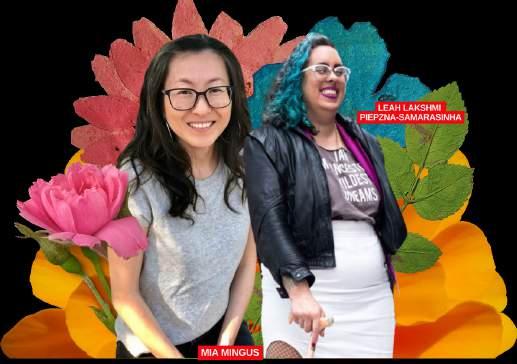
As we prepare to convene in Detroit, Michigan USA for our annual conference—The Journey Not Only the Arrival, Critical Connections Not Only Critical Mass: (Re)Thinking Feminist Movements—NWSA leadership affirms our organizational commitment to the feminist position that those most impacted by any particular system of oppression are best situated and equipped to guide us in our efforts to transform and survive it. Although the federal government officially ended the covid-19 public health emergency on May 11th 2023, we recognize that “the end” of the pandemic merely signaled a new level of state abandonment.
As Mia Mingus writes in “You Are Not Entitled To Our Deaths: COVID, Abled Supremacy & Interdependence,” “We will not allow disabled people to be disposable or the necessary collateral damage for the status quo. We will not look away from the mass illness and death that surrounds us or from a state machine that is more
committed to churning out profit and privileged comfort with eugenic abandonment” (2022).
Feminist disability advocates and scholars have identified the COVID-19 pandemic as a “mass disabling event” largely due to how those in positions of power value money over people. Navigating COVID-19 is now presented as an individual problem, but as critical feminist scholars we know that individual “solutions” to systemic issues simply enables more harm. And while we can not control every aspect of our environment at the Huntington Place Convention Center or the Detroit Marriott at the Renaissance Center, we can enact (and support one another in enacting) care practices modeled by our feminist comrades in the disability justice movement.
As Leah Lakshmi Piepzna-Samarasinha reminds, in their 2022 essay “Abled-Bodied Leftists Cannot Abandon Disabled Solidarity to “Move On” From COVID,”
“I call on the abled left to not abandon us. We need each other to stay alive. [...We] have the power to insist on masking, community safety strategies for COVID and virtually accessible events, and to invest in community care.”
Keeping a distance between yourself and others when manageable, getting vaccinated and boosted if able, and staying masked as much as possible are small but important expressions of a feminist care ethic, a politics of solidarity and interdependence, and a commitment to dismantling the able bodied supremacist rhetoric claiming it is time to “move on.” We are not here to reproduce supremacies, but instead to dismantle them.
These recommendations are offered in the spirit of solidarity and care. To struggle together, we need each other to stay alive. We offer these protocols as an invitation for all of our conference attendees to engage in our collective care while we convene together.
Based on current contact tracing advice, if you learn that you have been exposed to COVID-19 at the event, were exposed less than 14 days prior to the event, or develop symptoms of COVID-19 or test positive for COVID-19 up to 14 days after returning home, please contact the Association at NationalOffice@nwsa.org.


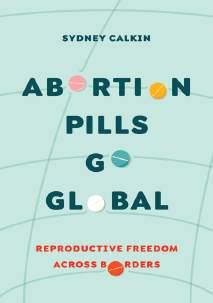

Twelve Feminist Lessons of War by Cynthia Enloe
On the Wrong Side: How Universities Protect Perpetrators and Betray Survivors of Sexual Violence
Nicole Bedera
Riding Like the Wind: The Life of Sanora Babb
Iris Jamahl Dunkle
The Struggle to Be Gay—in Mexico, for Example
Roger N. Lancaster
America, Goddam: Violence, Black Women, and the Struggle for Justice
Treva B. Lindsey
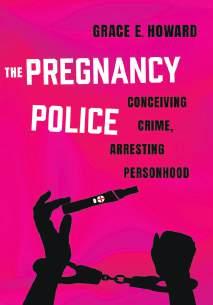

Accidental Sisters: Refugee Women Struggling Together for a New American Dream
Kimberly Meyer, with Alia Altikrity
Coming Out to the Streets: LGBTQ Youth Experiencing Homelessness
Brandon Andrew Robinson
A Few Good Gays: The Gendered Compromises behind Military Inclusion
Cati Connell
Essential Dads: The Inequalities and Politics of Fathering
Jennifer M. Randles
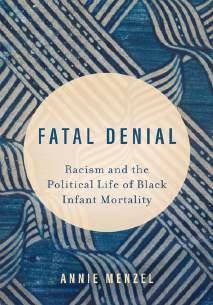

Shirley Chisholm in Her Own Words: Speeches and Writings
Shirley Chisholm.
Edited by Zinga A. Fraser
The Politics of Surviving: How Women Navigate Domestic Violence and Its Aftermath
Paige Sweet
Drag: A British History
Jacob Bloomfield
Feminist Media Histories: An International Journal edited by Jennifer M. Bean
Pacific Historical Review Feminist Histories Special Issue (93.3)
Fighting Mad: Resisting the End of Roe v. Wade
edited by Krystale E. Littlejohn and Rickie Solinger
The Pregnancy Police: Conceiving Crime, Arresting Personhood
Grace E. Howard
Fatal Denial: Racism and the Political Life of Black Infant Mortality
Annie Menzel
Just Get on the Pill: The Uneven Burden of Reproductive Politics
Krystale E. Littlejohn

Abortion Pills Go Global: Reproductive Freedom across Borders
Sydney Calkin
Reproduction Reconceived: Family Making and the Limits of Choice after Roe v. Wade
Sara Matthiesen
Laboratory of Deficiency: Sterilization and Confinement in California, 1900–1950s
Natalie Lira
Reproductive Justice: An Introduction
Loretta Ross and Rickie Solinger
Distributing Condoms and Hope: The Racialized Politics of Youth Sexual Health
Chris Barcelos
Youth Organizing for Reproductive Justice: A Guide for Liberation
Chris Barcelos
Queering Families: Reproductive Justice in Precarious Times
Tamara Lea Spira
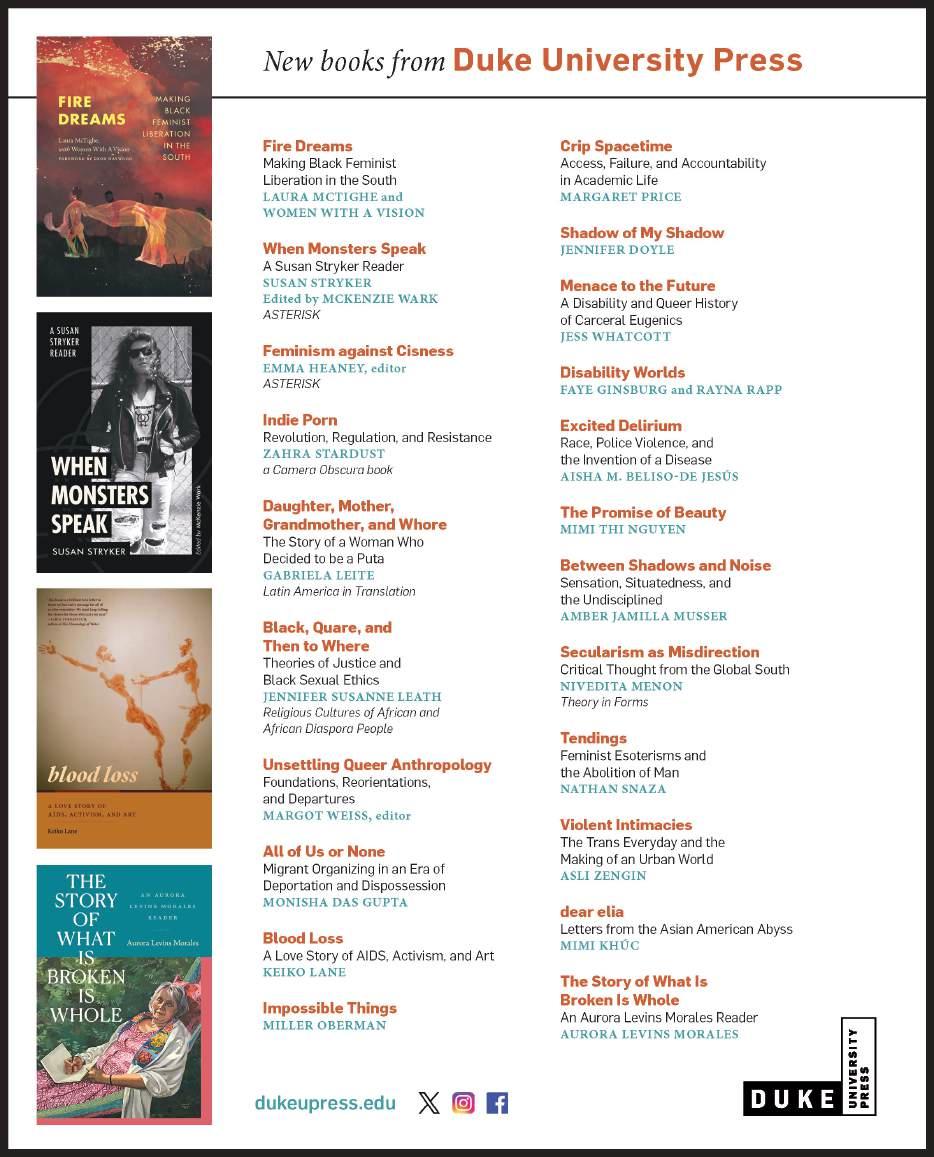

Each year, the Association hosts Pre-Conference sessions that focus on pertinent topics and issues impacting the field of women’s, gender, and sexuality studies. These Pre-Conferences are scheduled on the first day of the Annual Conferences and are opportunities for professional development, fostering critical connections, and building upon foundational competencies.
These sessions are typically day-long events with an array of presentations, roundtables, and space for fellowship. The NWSA offers three core Pre-Conferences: The Program and Administrations Committee (PAD) Pre-Conference, the Women’s Centers Committee (WCC) Pre-Conference, and the Women of Color Leadership Project (WoCLP) Pre-Conference session. The Association also hosts opportunities such as Teach-Ins, Pedagogical Institutes, Roundtables, etc. as Pre-Conference programs in an effort to provide professional development opportunities focused on contemporary issues. All pre-conferences required registration or utilized an application process.
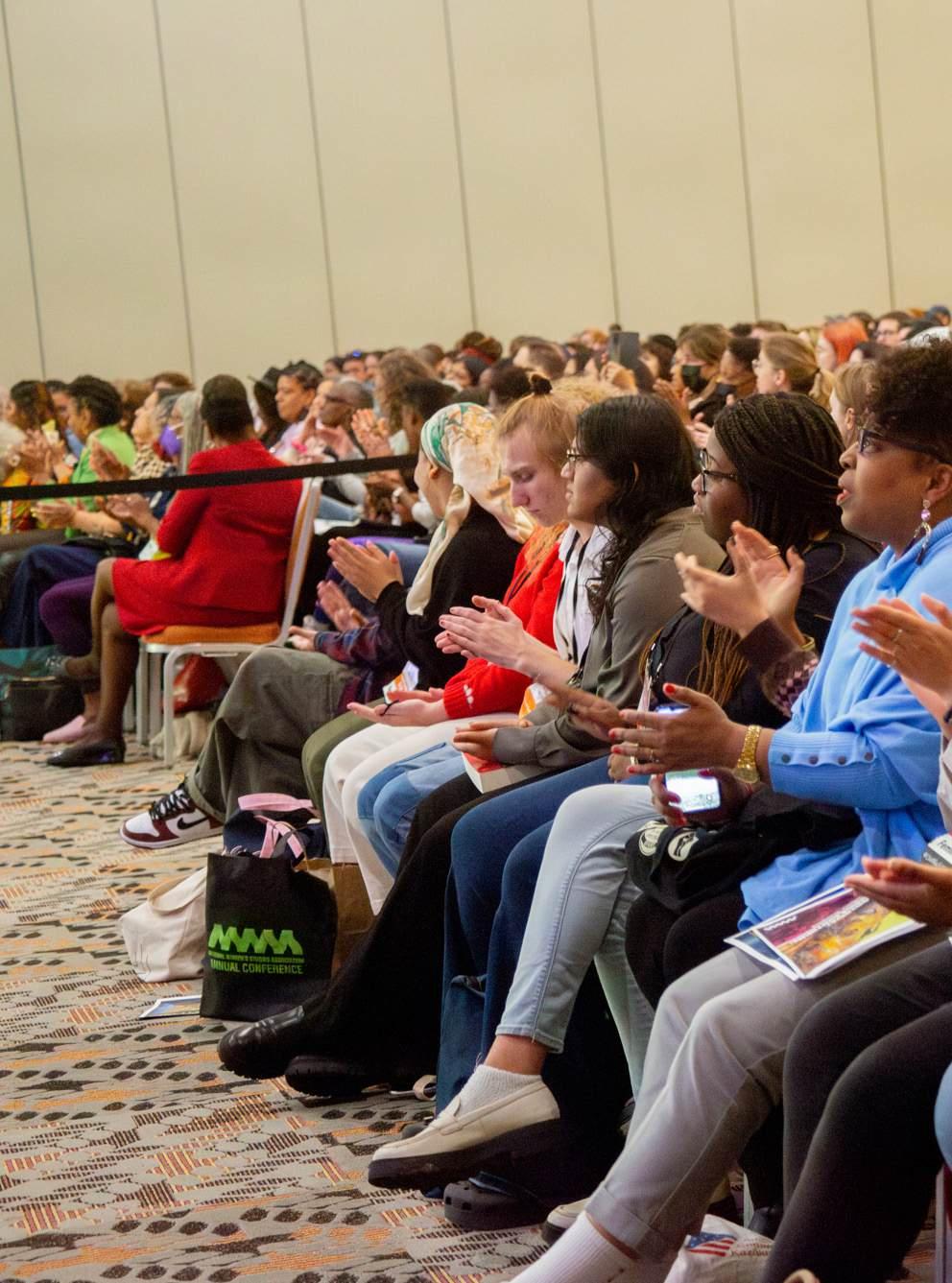
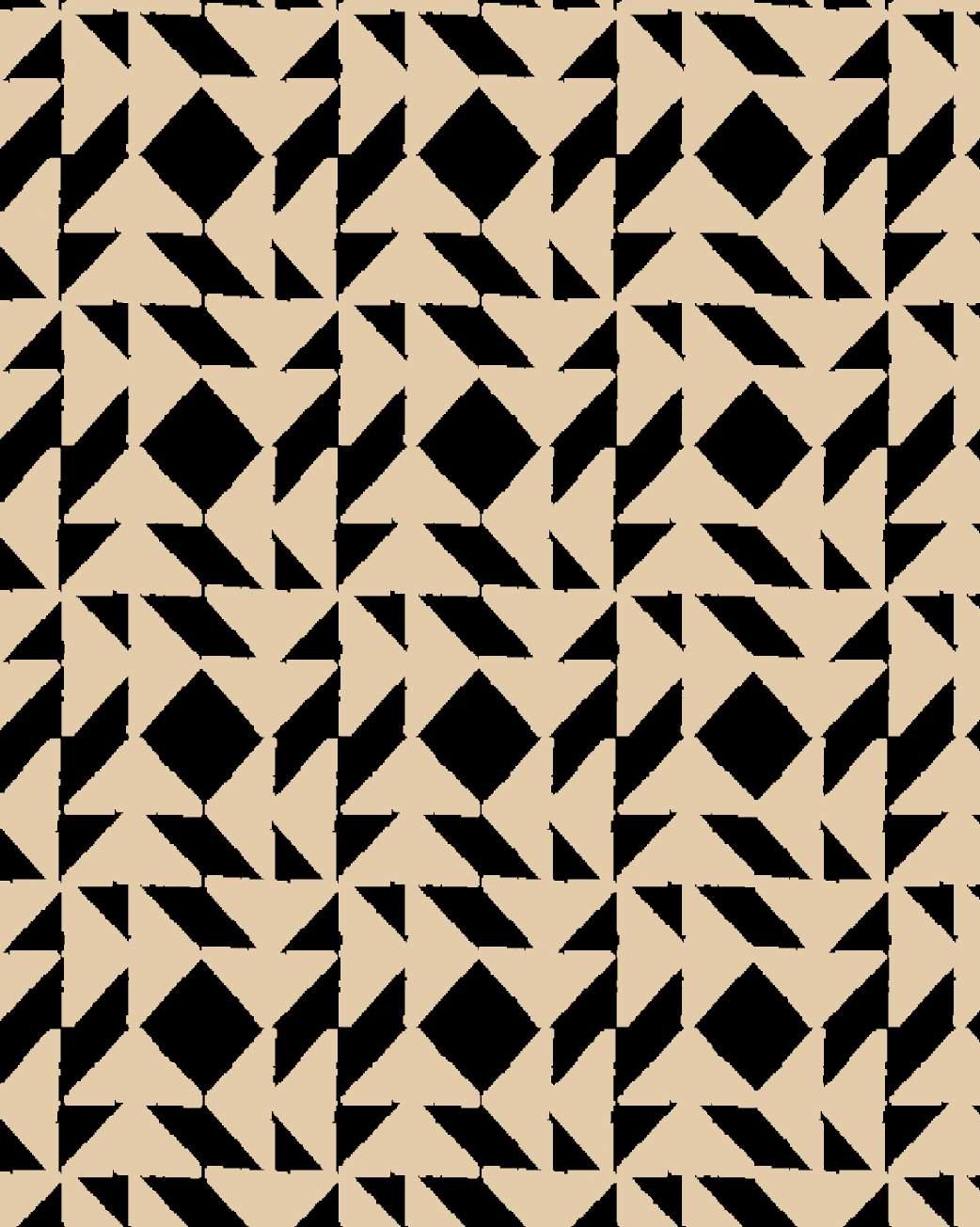
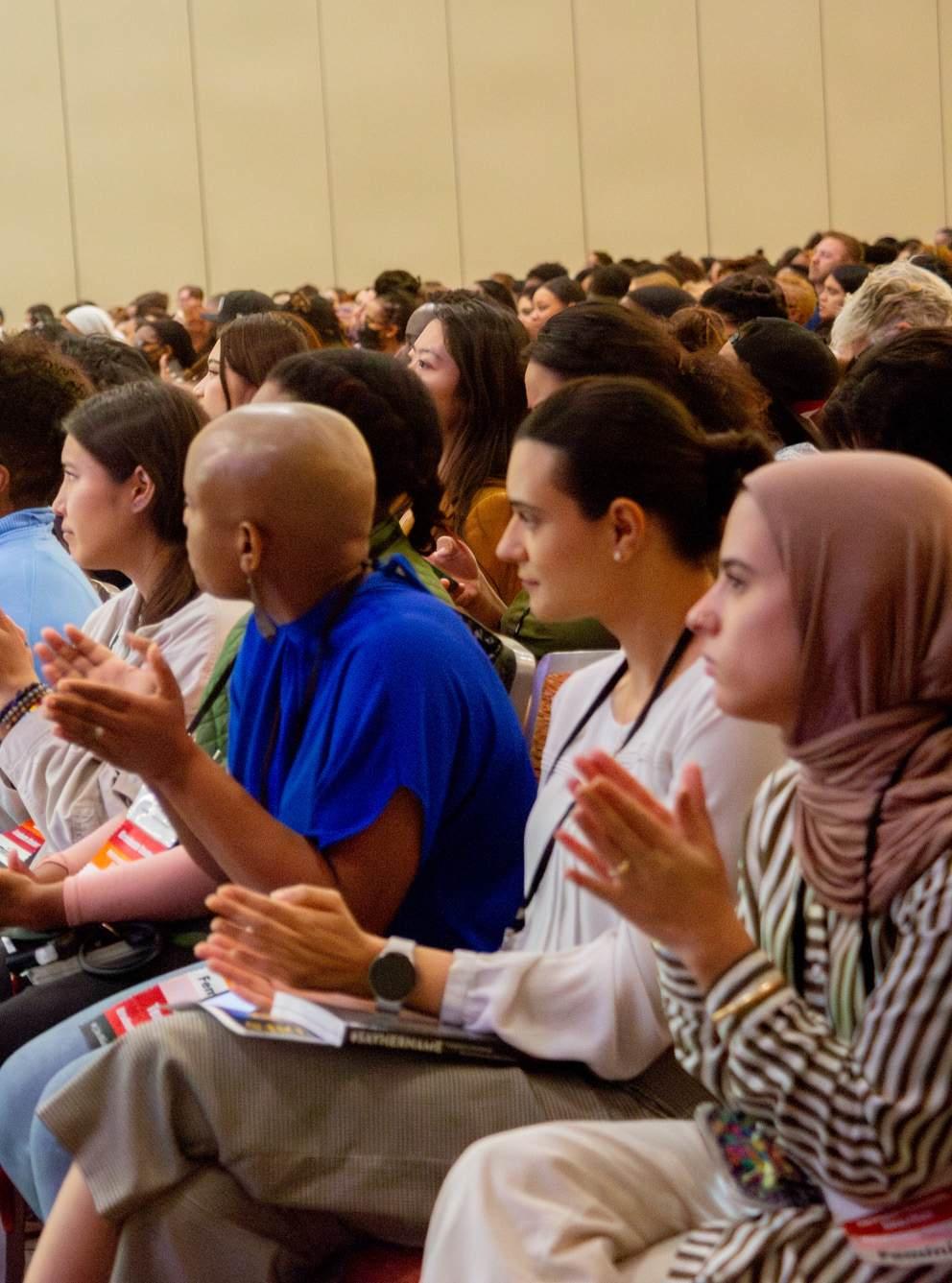
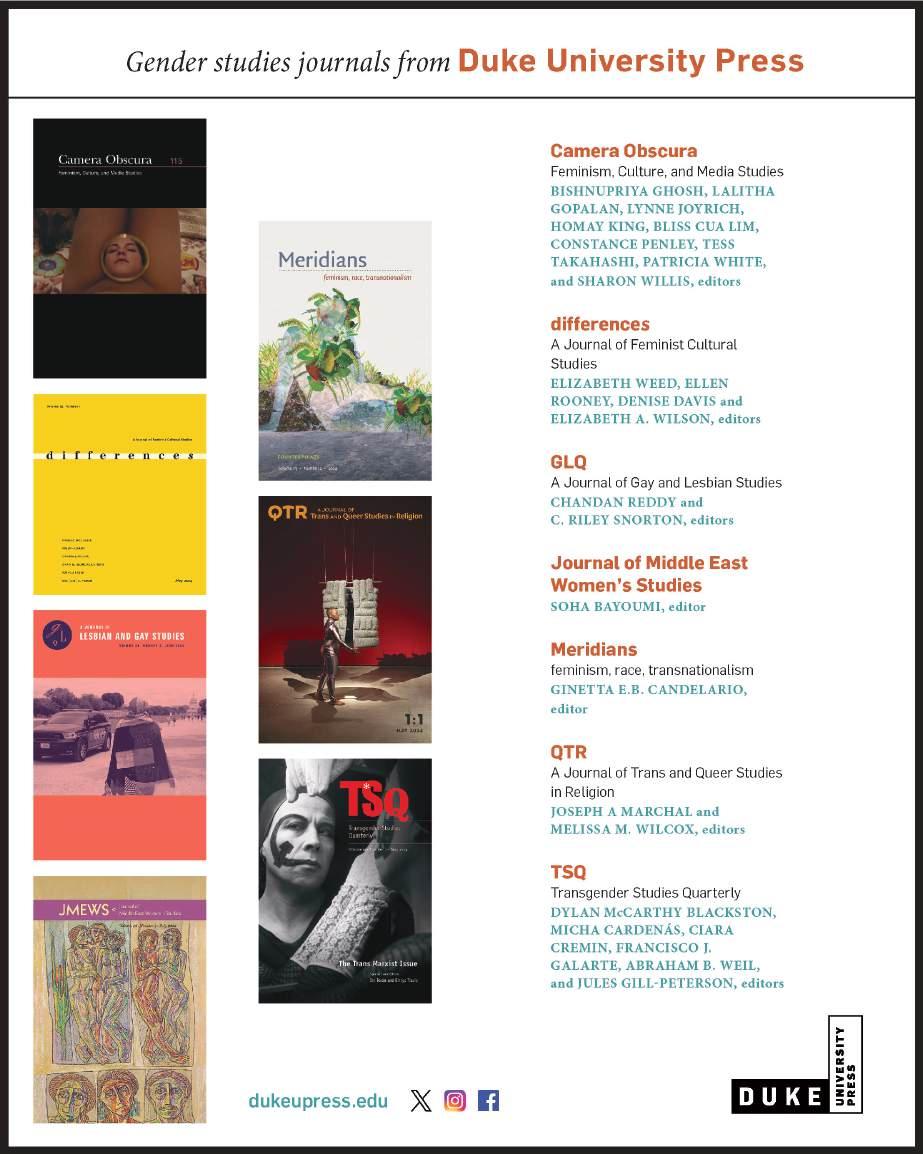
Thursday, Nov. 14th | Rooms 250C & 251A
8:00 AM - 5:30 PM
Co-Chaired by Dr. Jenn Brandt and Dr. Stephanie Rytilhati
The Program Administrators Caucus first met at the 1983 NWSA Annual Conference and evolved into the Program Administration and Development Committee in 2006. The PAD Committee consists of women’s studies program administrators (chairs, directors, coordinators, etc.) whose programs, departments or other academic units are member institutions of NWSA. This body is convened once a year for a Business Meeting at the annual NWSA Conference and is sustained by the PAD Community Hub. The first PAD Pre-Conference was held at the 2000 NWSA Annual Conference and continues to grow each year.
The PAD Pre-Conference provides administrators with ideas, strategies, and approaches to both strengthen and grow WGSS programs through current socio-political issues. These can include: supporting diverse leadership, building coalitions across campus and across town, fundraising, battling backlash, making external reviews successful, incorporating service learning requirements, and more.
Thursday, Nov. 14th | Rooms 251B & 251C
8:00 AM - 5:30 PM
Co-Chaired by Dana Bisgnani and Dr. Letitia Price
Beginning as the Women’s Centers and Services Caucus, the Constituency’s first meeting was at the 1984 NWSA Annual Conference, eventually becoming the Women’s Centers Committee in 2006. The WCC held its first Pre-Conference at the 2002 NWSA Annual Conference. NWSA recognizes that “women’s studies” is broader than what happens in the classroom as campus-based women’s centers have a long history of working together with women’s studies to transform the curriculum, the campus environment, and society at large; women’s centers teams function as chief out-of-class feminist educators and encourages participation in the national organization. In fact, the radical work of Women’s Centers predates the establishment of NWSA and inspires boundary shifting interventions in and outside of academia.
The Women’s Centers Committee of NWSA provides an opportunity for women’s center directors, staff and others to gather and share information, ideas, challenges, successes and support through its Annual Pre-Conference. This space serves as one of coalition building, professional development, and alchemy as Women’s Centers staff work to address modern-day issues that impact their sites of learning, the field as a whole, and our interpersonal lives.
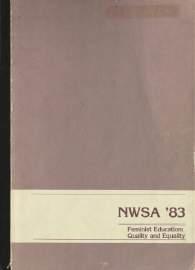
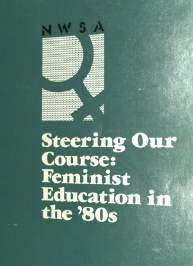
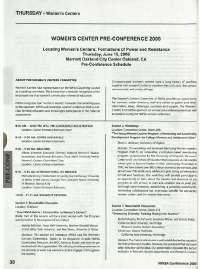
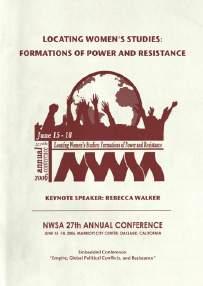
Thursday, Nov. 14th | Rooms 250A & 250B
8:00 AM - 5:30 PM
Co-Chaired by Dr. Aria Halliday and Dr. Sheri Lewis
Peer Facilitators: Jenny Cai and Libia Marqueza Castro
The NWSA Women of Color Caucus (WoCC), Program Administration and Development Committee (PAD), and the Women’s Centers Committee (WCC) jointly sponsor the Women of Color Leadership Project (WoCLP) in conjunction with the PAD and WCC Pre-Conferences. The WoCLP is designed to increase the number of women and non-binary people of color students, staff, and faculty members within the field of women’s studies and women’s centers and, consequently, to have an impact on the levels of participation and power by women/non-binary people of color in the field of women’s studies and women’s centers, and within our Association.
This leadership development initiative began nearly 23 years ago and has since provided a space of mentorship and kinship for over 580 women and non-binary people of color from across the United States of America, Canada, Asia, and Europe. WoCLP focuses on development and support for applicants with the hopes of having an impact on the levels of participation and power that often excludes women and non-binary people of color during our pre-conference block.
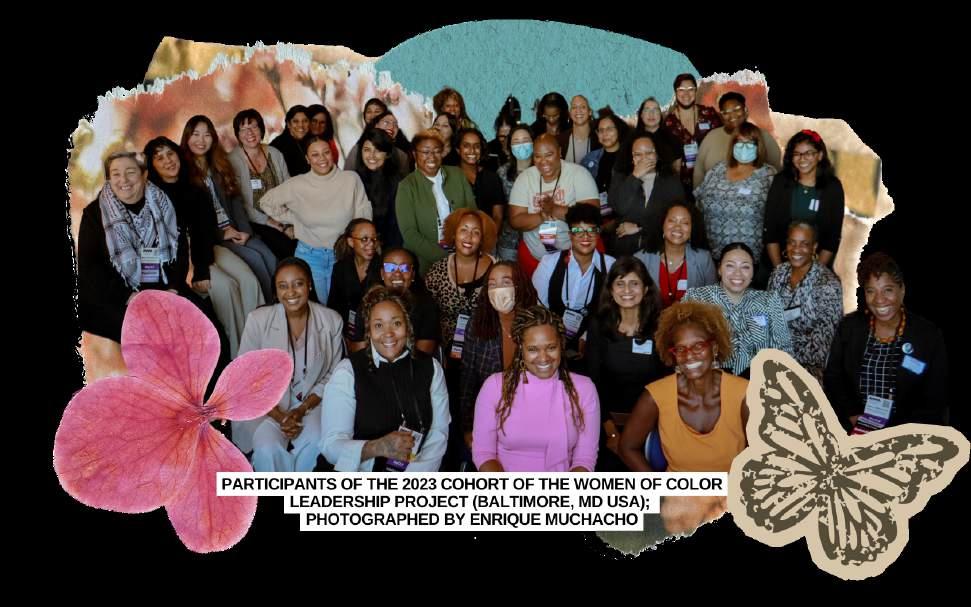
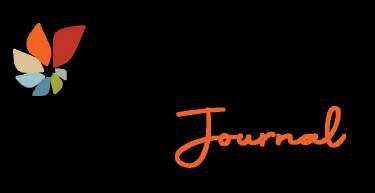
We welcome submissions in various genres on relevant topics: Individual and Institutional Transformation for Social Justice Equity, Inclusion, and Justice in Higher Ed

The ADVANCE Journal is a National Science Foundation (NSF) funded, peer-reviewed, open-access platform committed to publishing scholarship on institutional transformation concerning inclusion, equity, and justice in higher education.
Intersectionality and Social Difference
and Women in STEM
Representation and Advancement in the Academy Institutional Betrayal and Academic Trauma


Thurs. Nov. 14th
Rooms 252A & 252B
8:00 AM - 5:30 PM
Co-Sponsored by the Constituency Group Feminists for Justice in/for Palestine
Directed by Dr. Rabab Abdulhadi


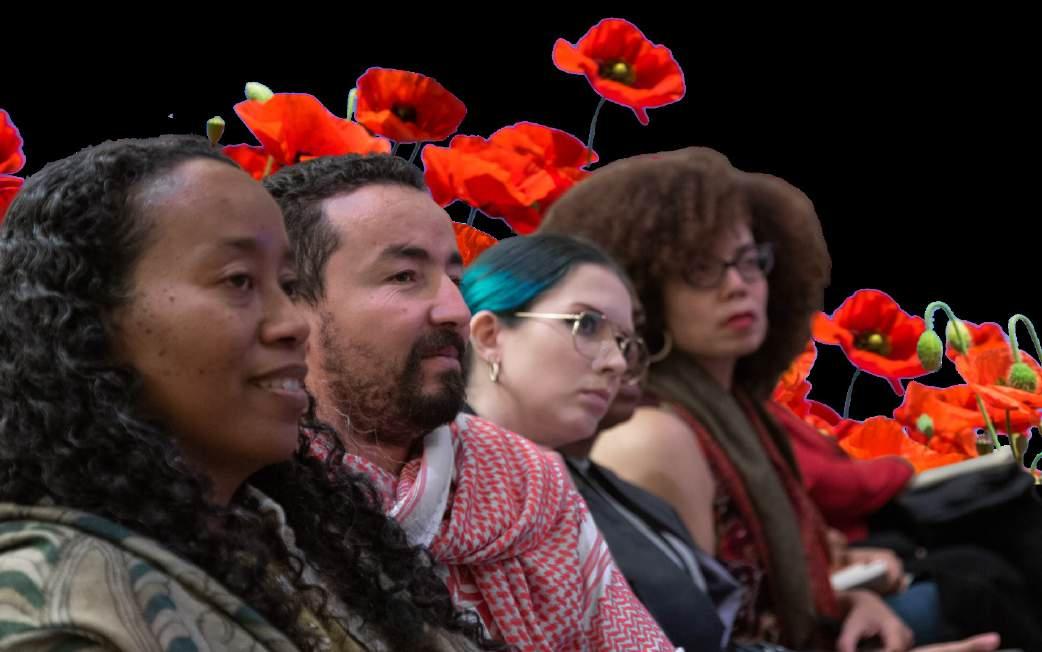


For the 2024 Annual Conference, we are excited and passionate about collaborating on a Pre-Conference Institute. The focus of the 2024 Pedagogical Institute is “Decolonizing Feminism and Resisting Settler Colonialism: Palestine Is a Feminist Issue.”
This Pedagogical Institute for Teaching Gender and Sexual Justice in Arab, Muslim and Palestinian Communities could not come at a more urgent time. Indeed, educators, scholar-activists, and organic intellectuals within and outside the academy urgently need to come together in a transnational and truly anti-colonial feminist space to co-learn framing, pedagogical praxis, use of class material, and exercises as well as strategies to uphold our collective (and individual) academic freedom against deepening repression and fascism within and outside our classrooms. These repressive structures by the state and the neoliberal university are designed to promote a white supremacist, Eurocentric, and Zionist curriculum that is designed to erase Palestinian narratives, silence advocates for Palestine freedom, criminalize Palestine in academic spaces and curriculum, and violate academic freedom with impunity.
and adopted and collectively developed by Feminists for Justice in and for Palestine (F4JP), is grounded in historical and contextual understandings of colonialism/ settler colonialism/neocolonialism, racism, exclusion, displacement, war, and imperialism both theoretically and pedagogically. It engages in the praxis of foregrounding, validating and centering the lived experiences of marginalized and colonized communities while simultaneously uplifting and mobilizing resilience and resistance strategies toward social transformation.
ation/rematriation/Land Back on Turtle Island. We simultaneously reject xenophobia and the invented dichotomy between “foreign” and “domestic” and connect the liberation of Palestine with that of Kashmir, Okinawa, Guam, Philippines, Puerto Rico, and all other colonized and occupied lands on the basis of the indivisibility of justice.

Part of Teaching Palestine: Pedagogical Praxis and the Indivisibility of Justice, the Pedagogical Institute for Teaching Gender and Sexual Justice in Arab, Muslim and Palestinian Communities, initiated and designed by Dr Rabab Abdulhadi
The Pedagogical Institute for Teaching Gender and Sexual Justice in Arab, Muslim and Palestinian Communities will explore how such dialectical and interconnected conceptual framing intervenes in and outside formal and informal classrooms, the streets, community spaces, prisons, and detention centers to arrive at transformative and non-exceptionalizing visions of justice, dignity, and peace for all our communities. Here we invoke the urgency of consistent critical analyses of the connections between movements for Black Lives, abolition, reparation, and repatri-
We know that one day is never enough to fully engage in sufficient critical study and analysis. As such, we see this first full-day NWSA Pedagogical Institute for Teaching Gender and Sexual Justice in Arab, Muslim and Palestinian Communities (the first half-day institute was in 2018 in Atlanta), encompassing multiple co-learning pedagogies, class material (text, genre, interand multidisciplinary, etc.), and facilitators, is geared toward formal (high school and college) and informal educators who might be well-versed in gender and sexuality studies but are not as familiar with Arab, Muslim and Palestinian communities and/or what feminist solidarity entails.

Thursday, November 14, 2024
7:00 PM - 8:45 PM
Grand Riverview Ballroom B

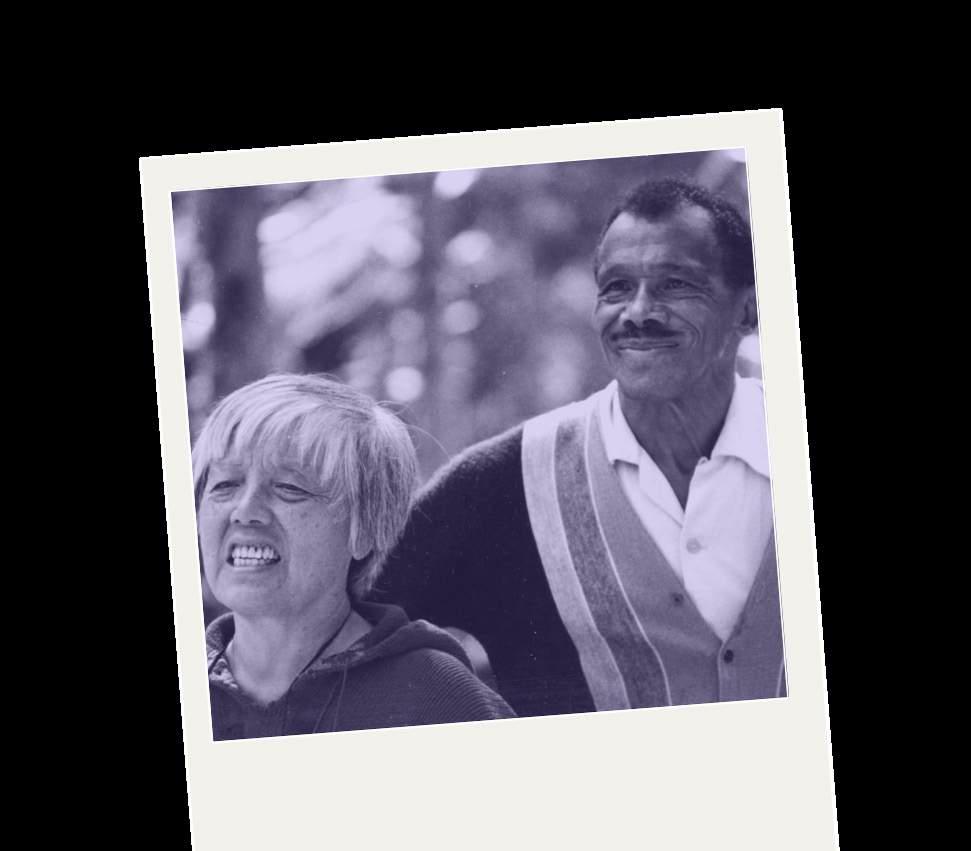

This presidential address and opening discussion augments “The Journey Not Only the Arrival, Critical Connections Not Only Critical Mass: (Re)Thinking Feminist Movements,” the theme for our 2024 annual conference in Detroit and the title of President Heidi R. Lewis’ Presidential Address. Detroit was Grace Lee Boggs’ home for over 60 years and the place where she founded the National Organization for an American Revolution with her husband Jimmy 45 years ago. So, our theme honors two of her quotes, “activism can be the journey rather than the arrival” and “movements are born of critical connections rather than critical mass.” Our conference is a space where we gather to think about, discuss, and develop strategies to resist myriad forms of subjugation and oppression.
We gather to teach and learn from one another, to support and care for one another, to celebrate one another, and to share in each other’s pain and joy. At the same time, it’s just as important to attend to the complicated contours of our relationships with one another. What happens when heterosexism, ableism, and colonialism show up in us? What happens when we perpetuate anti-Black racism, transantagonism, and xenophobia? What happens when we privilege the arrival at the expense of the journey? What happens when we sacrifice critical connections in favor of galvanizing critical mass? These questions, and more
will be strengthened by members of the James and Grace Lee Boggs Foundation: Donald Boggs, Aurora Harris, Dr. Gloria House, Alice Jennings, Dr. Scott Kurashige, Tiffany Lee, and Julia Putnam as thought leaders and organizers who embody all that James and Grace Lee Boggs visioned in their activism.
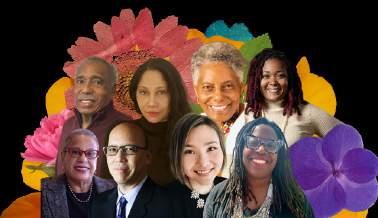

President Lewis’ hope is for us to collectively raise and interrogate these questions for the sake of what she often refers to as the always advantageous but sometimes contentious contours of solidarity. Even though we may be certain about our many intended destinations, she invites us to nurture curiosity about our journeys and connections with each other, because that is the lesson from Boggs that resonates with her most.

Advisory Board Member
Donald W. Boggs is an activist, educator and son of James Boggs. Donald is the former President of the Metropolitan Detroit AFL-CIO and the Organization of School Administrators and Supervisors, and a retired teacher in the Detroit Public Schools. Donald believes his duty is to uplift working people and continuously work to improve workers’ quality of life. Donald earned his M.A. from University of Detroit and his B.S. from Michigan State University, and has attended Wayne State University, Harvard and the George Meany Labor Center for courses in labor- management cooperation.

Aurora Harris
Treasurer
Aurora Esperanza was born in Detroit of African American and Filipino heritage. She grew up in a Catholic and Muslim family. She holds an M.A. in Social Foundations of Education from Eastern Michigan University and a B.A. in Sociology from Wayne State University. Ms. Harris is the President of the Filipino American National Historical Society-Michigan Chapter, co-founder of We the People of Detroit, and board member of Broadside Lotus Press. She is an award- winning published poet and Lecturer Il at the University of Michigan-Dearborn, teaching Detroit History and Culture, African and African American Studies and Literature, Advanced Creative Writing, and other courses. Her poem about Grace Lee Boggs’ life, “Now. Then. Tomorrow. In Memory of Grace Lee Boggs” is published in Educational Studies: A Journal of the American Educational Studies Association, Volume 52, Issue 2, 2016. Ms. Harris has received awards including; Community Hero Award, Association of Chinese Americans (2020); “Unsung Heroes” Award - Michigan and Detroit National Lawyers Guild (2015); Howard Zinn Lifetime Achievement Award - Peace and Justice Studies Association (2014); and PEN-Oakland Josephine Miles Ex cellence in Literature Award for Solitude of Five Black Moons (2012).
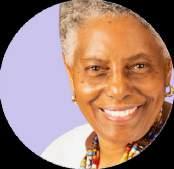
Gloria House, PhD
Advisory Board Member
Gloria is the Kresge Foundation Eminent Artist of 2019, is a poet, essayist, educator and human rights activist. Dr. House is also known by her African name, Aneb Kgositsile. Dr. House has been an organizer in human rights struggles, abolitionist causes and international solidarity campaigns since she served as a field secretary in the Student Non-Violent Coordinating Committee (SNCC) in Lowndes County, AL, 1965-67. During her work with SNCC, she drafted the organization’s anti-war statement, the first statement released by a civil rights organization against the Vietnam War. She has received many honors for her social justice advocacy, including the Lifetime Achievement Award of the Michigan Coalition for Human Rights (2017), the Lillian Benbow Award for Education of Delta Sigma Theta Sorority (1999), the Edward Said Scholar-Activist Award of the Michigan Peace Team (2012), the Harriet Tubman Award of the National Organization of Women, Mich-



Alice B. Jennings Vice President
Alice B. Jennings was born and raised in Detroit, Michigan and was a founding partner in the law firm of Edwards & Jennings, P.C., created with Carl R. Edwards in 1982. She has a long history of advocacy for the people of the City of Detroit, State of Michigan, and throughout the United States. Alice specializes in employment law, civil rights, environmental justice law, personal injury and class actions. Alice is an affiliated attorney with the NAACP Legal Defense Fund (LDF).
In 1986, Alice met James and Grace Lee Boggs in the first community organizing meeting of what became “Save Our Sons and Daughters (SOSAD)”. James and Grace became close friends of Alice and Carl Edwards, organizing with grassroot activists on paramount community issues of the day. For example, “Detroit Summer” and “Coalition to Stop Privatization and Save Our City,” were community movements in which James, Grace, Carl and Alice were integrally involved.
In 2012, Grace and Alice successfully had the home of James and Grace Lee Boggs, at 3061 Field Street in Detroit, Michigan, declared a Historic District with a City of Detroit Ordinance passed with that designation. In 1995, Grace and Alice worked with Donnelle Wilkins, and other environmental justice activists, to create Detroiters Working for Environmental Justice. Alice, who was also a friend of Rosa Parks, arranged a historic meeting with Grace, of the two icons in 2002.

President and Literary Executor
Scott Kurashige first met Grace Lee Boggs in 1998, when he invited her to speak at the Serve the People conference on Asian American movement activism and the Asian Left Forum gathering in Los Angeles. He subsequently moved to the Eastside of Detroit, where he worked closely with Grace on their co-authored book, The Next American Revolution: Sustainable Activism for the Twenty-First Century (2011). As a scholar/activist of Black and Asian American history, urban studies, and social movements, he is author of The Shifting Grounds of Race: Black and Japanese Americans in the Making of Multiethnic Los Angeles (2008) and The Fifty-Year Rebellion: How the U.S. Political Crisis Began in Detroit (2017) and co-author of Exiled to Motown: A History of Japanese Americans in Detroit (2015). He received a PhD in History from UCLA and serves as literary executor for James and Grace Lee Boggs.

Member
Tiffany was born and raised in Honolulu, Hawai’i by her father, Robert C. Lee, Grace’s brother. She currently serves as the Prenatal-to-Three Policy Advisor at the City of Seattle Department of Education and Early Learning (DEEL), managing an investment portfolio of programs that address educational and health disparities in communities of color for birthing persons, infants, and toddlers. Grace and Jimmy’s legacy inspires her to approach education policy using racial justice as the singular lens to guide decision-making.
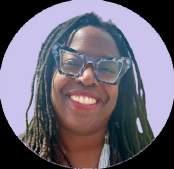
Julia putnam
Co-Founder and Principal of the James and Grace Lee Boggs School
Ms. Julia became one of the co-founders of the Boggs School and later the principal after spending her adolescence and young adulthood under the mentorship of James and Grace as well as the other influential founders of Detroit Summer. She is a proud Detroiter and received each of her degrees from local universities: a bachelor’s degree in English from Michigan State University, a master’s degree in liberal studies from the University of Detroit-Mercy, and a master’s degree in education and teaching certification from Wayne State University. She is the proud mom of Henry and Lucia (a “pioneer” student at the Boggs School) and wife of fellow educator, Peter. Her favorite thing about working at the Boggs School is how kind and supportive everyone is of one another, including the students!

James Boggs (1919-1993) was an African American autoworker and labor organizer from Marion Junction, Alabama. He was raised in the rural South under Jim Crow, then moved to Detroit and worked for Chrysler during the height of industrial-era prosperity. Grace Lee Boggs (1915-2015) was a Chinese American philosopher born in Providence, Rhode Island, and raised in New York City. After obtaining her PhD, Grace was spurned by academia and made her home in the Black community and movement. Jimmy and Grace married in 1953. Together, they worked to build the movements for Civil Rights and Black Power, as well as cross-racial and international solidarity. The Boggses foresaw the devastation Detroit and the United States would face owing to automation, white supremacy, militarism, authoritarianism, and the emphasis on technological over human development. Through writing and organizing, they struggled to move the nation beyond the stage of rebellion against an unjust system by encouraging organizers and all members of society to see revolution as the exercise of self-government and an evolutionary advance for humanity.
Established based on directives from Grace, the Boggs Foundation is the sole owner of the Boggses’ personal and intellectual property and is designed to make the revolutionary work of Jimmy and Grace knowable and meaningful for current and future generations.
“A revolution that is based on the people exercising their creativity in the midst of devastation is one of the great historical contributions of humankind.”
Grace Lee Boggs

to support the

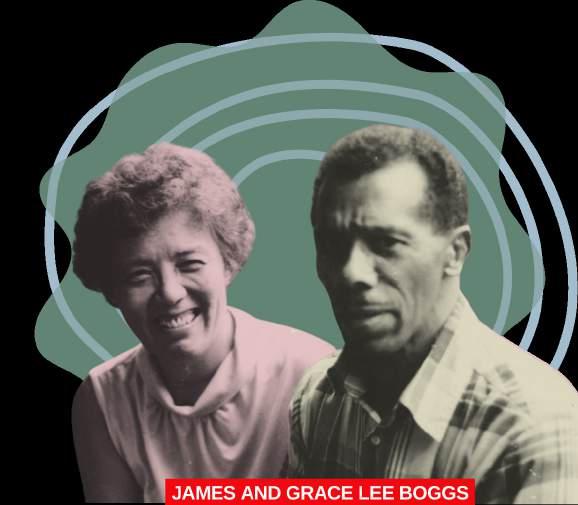

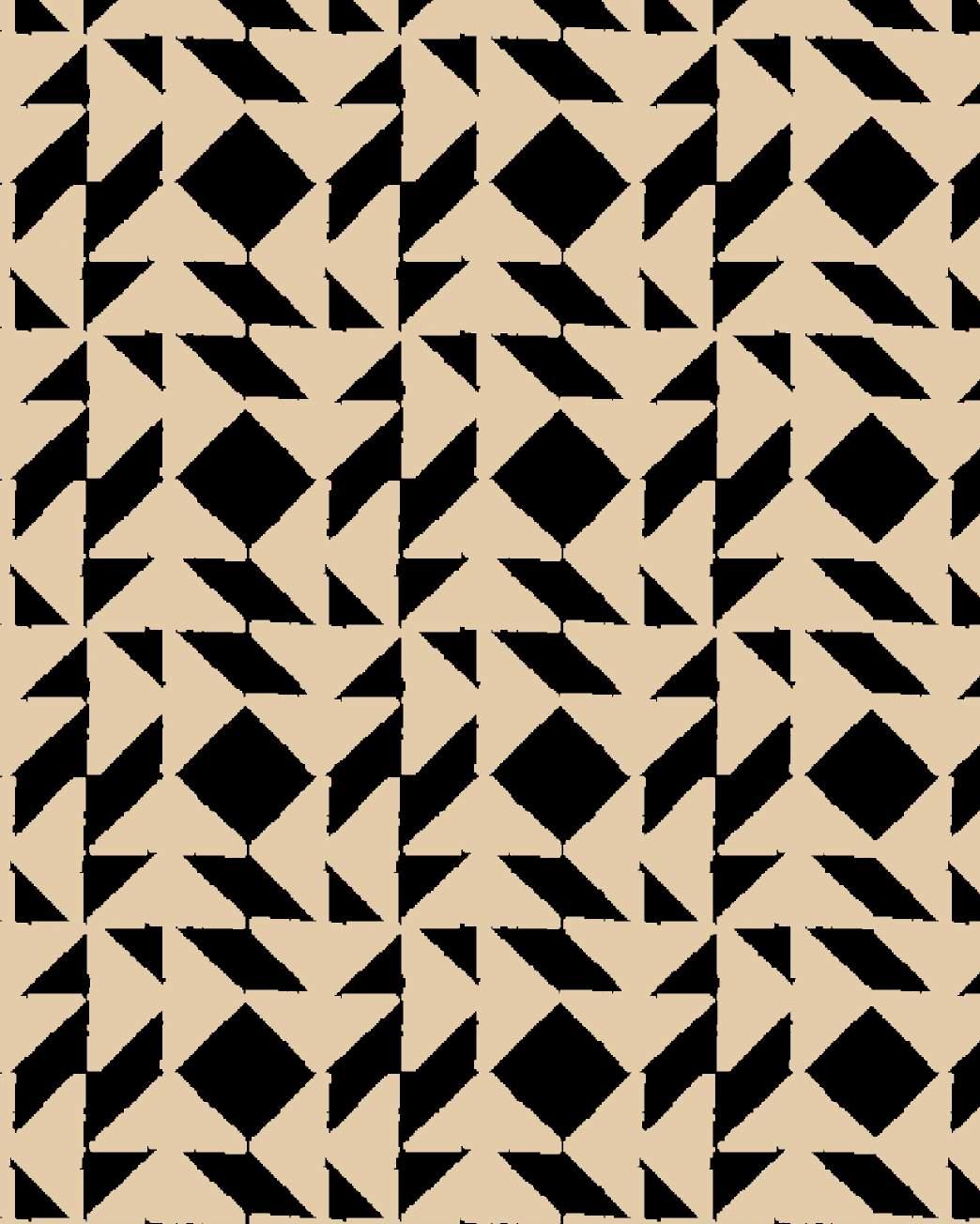
Friday, November 15th
7:00 PM - 8:30 PM | Grand Riverview Ballroom B
For a number of people, the focus and commitment to a Free Palestine began on October 7, 2023. Other educators, artists, and organizers aligned with this global movement beforehand as Israel’s colonial-supported genocidal war on Palestinians began with the Nakba of 1948, when more than 750,000 Palestinians were expelled or forced to flee from their homeland. Palestinian scholars in our field have been particularly attentive to Israeli occupation and Palestinian resistance, because Palestine is a feminist issue. If we are concerned with the complex relationships between gender and sexuality, race, class, age, and other positionalities, we must be concerned with Palestine. If we are concerned with global capitalism, neocolonialism, and other systems of power and dominance, we must be concerned with Palestine. If we are concerned with amplifying and honoring the righteous resistance of the subjugated and oppressed, then we must be concerned with Palestine. As Rabab Abdulhadi writes in “Living Under Occupation” (2012), “Consciousness of gender inequality (or any other structural inequality or injustice) can supersede, accompany, or result from awareness of other systemic oppression. In other words, as there are many sources of oppression, there are many paths to consciousness and liberation.” In addition to situating Palestine as a feminist issue, Abdulhadi, Chair of the NWSA Feminists for Justice In/For Palestine Interest Group; Huwaida Arraf; Malak Mattar; and President Heidi R. Lewis will discuss the ways we can continue working together to understand and end the occupations of Palestine, Okinawa, Kashmir, Tigray, and all other colonized lands.

Rabab Abdulhadi, San Francisco State University
Huwaida Arraf, Human rights activist, lawyer and co-founder of the International Solidarity Movement
Heidi R. Lewis, Colorado College and the 22nd NWSA President Malak Mattar, Visual Artist, Author, and Activist
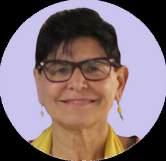
San Francisco State University
Rabab Abdulhadi (she/her) is the founding Director and Senior scholar of Arab and Muslim Ethnicities and Diasporas Studies (AMED) Program at San Francisco State University and Principal Investigator of Teaching Palestine: Pedagogical Praxis and the Indivisibility of Justice. She is an internationally-known scholar and distinguished professor who is committed to community development and student engagement alongside her extensive academic work and publication and teaching schedule. She published over 80 articles, book chapters, anthologies and co-edited books in 7 languages and initiated numerous innovative scholarly projects and pedagogical curriculum, including Islamophobia: Gender, Sexuality and Racism, Living Archives: Third World, Indigenous and anti-Colonial Queer and Feminist International Solidarities. She received her BA summa cum Laude in Special Honors Curriculum, Sociology, and Women’s Studies at Hunter College, and her MA, MPhil and PhD from Yale University where she was awarded the prestigious Sterling Fellowship and the Teaching Excellence award, received for the first time by a Palestinian, Arab or Muslim.
She has been repeatedly recognized for her scholarship and community engagement, including 2024 Dr. Clifford I. Uyeda Humanitarian of the Year, Angela Davis Public Scholarship, Jere L. Bacharach Service Award from the Middle East Studies Association; Georgina Smith Award by American Association of University Professors; Alex Odeh Award by American Arab Anti-Discrimination Committee, Lucius Walker Award by InterFaith Community Organizations/Pastors for Peace; Courage Awards by Al-Awda: The Palestinian Right of Return Coalition and the National Convention of American Muslims for Palestine; and the Arab Feminist Union in Palestine.
As an internationally recognized organic intellectual, Dr. Abdulhadi is a policy advisor for Al-Shabaka and an advisory Board member for National Students for Justice in Palestine, a co-founding Editorial Board member of Islamophobia Studies Journal, a member of the founding collective of International Islamophobia Studies Research Association, Institute for the Critical Study of Zionism, and the “Palestine Tells Its Story” Curriculum Initiative. She co-founded the California Scholars for Academic Freedom, US Campaign for the Academic and Cultural Boycott of Israel, and the Palestinian, Arab and Muslim (PAM) Caucus of California Faculty Association. Her activism includes building Palestinian support for Idle No More, Justice for Michael Brown, the Movement for Black Lives, and Standing Rock. She co-led “100 Years of Colonialism, 100 Years of Resistance,” the International Palestinian Campaign to commemorate the Balfour Declaration. She co-organized several delegations to Palestine, including 2011 Indigenous and Women of Color Feminist Delegation, 2016 US Prisoner Solidarity, Labor and Academic Delegation, and 2018, 2019 and 2022 Teaching Palestine: Pedagogical Praxis and the Indivisibility of Justice which took them to South Africa, Cuba, Andalucia, Lebanon and Tunisia.

Human rights activist, lawyer and co-founder of the International Solidarity Movement
Huwaida Arraf (she/her) is an international human rights and civil rights attorney, triple-major University of Michigan alumni, and cofounder of the International Solidarity Movement which has twice been nominated for the Nobel Peace Prize.
Most importantly though, Huwaida is a dedicated mother of two, and a federal civil rights attorney who has fought for Michiganders affected by the Flint Water Crisis, systemic violence, and voter disenfranchisement.
As a civil rights attorney, Huwaida has been fighting to defend civil liberties, including advocating for Michiganders affected by the Flint Water Crisis, violence in our justice system, and voter disenfranchisement. She is a former chairperson of the Free Gaza Movement and a core organizer of the Freedom Flotilla Coalition aiming to end the illegal siege of Gaza.
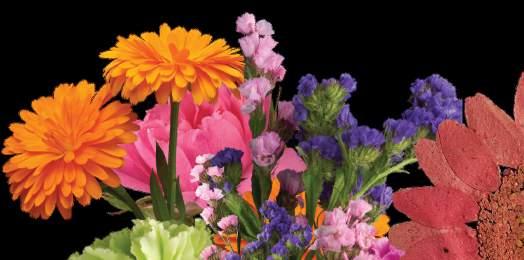

Heidi R. Lewis
Colorado College and the 22nd NWSA President
Dr. Heidi R. Lewis (she/ her) is President of the National Women’s Studies Association and David & Lucile Packard Professor of Feminist & Gender Studies at Colorado College. She’s published in Womanism Rising, Rethinking Women’s and Gender Studies II, The Cultural Impact of Kanye West, the Journal of Popular Culture, the Journal of Black Sexuality and Relationships, and the German-language text Indivisible: Alliances against Racism. She’s contributed to Mark Anthony Neal’s NewBlackMan, NPR, and Bitch Media, and given talks at Vanderbilt, the Motherhood Initiative for Research and Community Involvement, Cornell, the U.S. Olympic Committee, Portland State, and many more organizations and institutions, especially in the U.S. and Germany. Developed from her work teaching abroad for the past decade, her first book, In Audre’s Footsteps: Transnational Kitchen Table Talk in Berlin, examines how women of color resist subjugation and oppression and how they navigate the always advantageous but sometimes contentious contours of solidarity. More recently, she wrote a single-authored manuscript entitled “Make Rappers Rap Again: Interrogating the Mumble Rap ‘Crisis,’” which is forthcoming from Oxford University Press next summer.
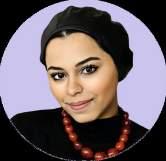
Visual Artist, Author, and Activist
Malak Mattar (she/her) is a Palestinian artist of startling originality who paints powerfully expressionist faces, figures, and semi-abstract designs. She was born in 1999 in the Gaza Strip and grew up under occupation and the military siege. From a family of talented cultural practitioners, Mattar started making art as a teenager during a period of open conflict (Operation Protective Edge, 2014), and she soon began to sell work online and exhibit internationally. She won a scholarship to study political science at Istanbul Aydin university (2018–22) and another to study a Masters of Fine Art at Central Saint Martin’s, London, in 2023.
She first started painting at age 13, during the 51-day Israeli military assault on Gaza in 2014. Forced to stay inside for her own safety, she felt a compelling need to release all of her negative energy—fear, anxiety, and sheer terror. She started painting with art supplies from a government school, basic watercolors on paper. This opened up a world of self-expression for her. In the first two years, Mattar produced over 200 paintings.
Unable to leave Gaza due to restrictions of the Israeli occupation, Mattar showed her paintings to the world via social media, on Instagram and Facebook. On her fourteenth birthday, she began offering her paintings for sale in local exhibits. She also began selling and mailing paintings to buyers around the world. Within two years, she became financially independent. Mattar’s artwork quickly began to garner interest from galleries beyond Palestine; her first international exhibition was in Bristol, UK, in 2017.
In 2021, Malak published her first book, Sitti’s Bird, an autobiographical children’s story that describes how a young girl in Gaza learns to control her fears through creativity, finding freedom even under occupation—and, ultimately, a way out to the wider world. Malak’s artwork has since been featured in individual and group exhibitions in Jerusalem, France, Spain, Costa Rica, India, and in the Art Under Siege exhibit held in the Rayburn House Office Building, US House of Representatives, Washington, DC. Most recently, Malak had two concurrent exhibitions in London, and her monumental painting No Words was shown for the first time (March 2024). Her artworks have also been collected, published, and exhibited in numerous group shows worldwide.

Grand Riverview Ballroom B
Saturday, November 16th 11:00 AM - 12:15 PM
In “Multivocal and Multidirectional: The Rich Legacy of Women’s Studies,” President Heidi R. Lewis refers to the late 1960s and especially the 1970s and 1980s as the Golden Age of the kind of organizing that is central to our field. During that time, the National Organization for Women, Redstockings, Street Transvestite Action Revolutionaries, National Black Feminist Organization, Women of All Red Nations, Salsa Soul Sisters, Combahee River Collective, and other groundbreaking organizations were founded. One of those organizations was NWSA, which was established in 1977 and incorporated in 1978. The following year, the Association held its first conference at the University of Kansas, Lawrence, with nearly 250 sessions and 600 participants. To celebrate that historical moment, we are excited to facilitate a discussion with Layli Maparyan, past Women of Color Caucus Co-Chair; Yi-Chun Tricia Lin, past President (2012-14); Premilla Nadasen, past President (201820); and Raquel Rubio-Goldsmith, who presented her work on the religious experience of Mexicanas in Arizona during that very first conference. Returning to our histories is a critical aspect of feminist work. At this juncture, it is especially important to revisit our roots for wisdom and empowerment—and for lessons in solidarity—as our art, activism, and scholarship continue to evolve to meet the moment and shape the future.
Yi-Chun Tricia Lin, Southern Connecticut State University
Layli Maparayan, Wellesley College
Premilla Nadasen, Barnard College
Raquel Rubio-Goldsmith, The University of Arizona
Kristian Contreras, Executive Director of the National Women’s Studies Association
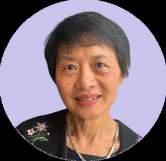

Southern Connecticut State University
A 17th-generation daughter of Taiwan, Yi-Chun Tricia Lin (she/ her) is currently the Director and Professor of Women’s Studies Program at Southern Connecticut State University. She traveled from her native island to pursue a doctoral degree in continental philosophy and theory. In the process, she found herself home in ethnic studies and women’s studies. Her dissertation, a study of Asian American women’s cultural and literary productions, was her first step away from her Euro-American-centered education. Since her doctoral days, her research and teaching have gone intensely ethnic, feminist, and post-colonial. Among her recent projects is a comparative cultural studies of Indigenous and diasporic women’s writing from the Caribbean and Pacific islands. Before joining the Women’s Studies faculty at Southern in 2004, Lin taught writing and literature and Asian American literature at City University of New York/Borough of Manhattan Community College from 1994-2004, where she discovered her passion for teaching for liberation of all minds and found her calling in the struggle for peace and justice.
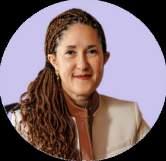
Wellesley College
Layli Maparyan (she/her) is the Katherine Stone Kaufmann ’67 Executive Director of the Wellesley Centers for Women and Professor of Africana Studies at Wellesley College. She is best known for her scholarship in the area of womanism and is the author of two groundbreaking texts in the field of womanist studies, The Womanist Reader (2006) and The Womanist Idea (2012), and Womanism Rising (2024). Maparyan has also published significantly in the areas of adolescent development, social identities, (including biracial/biethnic identity and the intersections of racial/ ethnic, sexual, spiritual/religious, and gender identities), Black LGBTQ studies, Hip Hop studies, and history of psychology. Maparyan’s scholar-activist work interweaves threads from the social sciences and the critical disciplines, incorporating basic and applied platforms around a common theme of integrating identities and communities in peaceable, ecologically sound, and self-actualizing ways.

Premilla Nadasen Barnard College
Premilla Nadasen (she/her) is the Ann Whitney Olin Professor of History at Barnard College and co director of the Barnard Center for Research on Women. She has published extensively on the multiple meanings of feminism, alternative labor movements, and grass-roots community organizing and is most interested in visions of social change, and the ways in which poor and working-class women of color fought for social justice. Her most recent book, Household Workers Unite, examines how African American domestic workers in the U.S. strategically used storytelling to develop a political identity and through their organizing reshaped the landscape of labor organizing. She is currently writing a biography of South African singer and activist Miriam Makeba.
Nadasen is a Distinguished Lecturer for the Organization of American Historians and serves on the scholarly advisory committee of the New York Historical Society’s Center for Women’s History. She is past president of the National Women’s Studies Association and was a Fulbright Visiting Professor at Oxford University in 2019. She is the 2020 inaugural recipient of the Ann Snitow Prize for outstanding feminist activist and intellectual work. Professor Nadasen has bridged academic and activist work by making her scholarship accessible to people outside the university. She has been a museum consultant, has written op-eds for newspapers and on-line outlets, and served as expert witness before the New York State Assembly Committee on Labor as well as the federal Department of Labor. She collaborated with the Institute for Policy Studies and the National Domestic Workers Alliance on the “We Dream in Black Project” to mobilize Black domestic workers in the South.
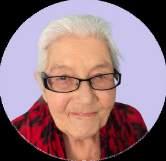
The University of Arizona
Raquel Rubio-Goldsmith (she/her) was born in the border town of Douglas, Arizona and after completing high school graduated from the National Autonomous University of Mexico in Mexico City. In 1961, she presented her Master’s thesis in philosophy titled “Examen de “la otra” en Simon du Beavoire”. From 1969 to 1999, Raquel developed and coordinated ethnic studies programs at Pima Community College. In l974, coordinating with Angela Lask (now Zerdavis), she offered a class “Women in Society” as well as “Women in the Western World”. Raquel has researched the history of chicanas/ mexicanas since 1970, with much of her work focused on Mexican women on the U.S. border; she developed and taught an upper division course on the “History of the Mexicana/Chicana in the Southwest” in the Mexican American Studies Department (1983 - 2003); the course was cross listed with Women Studies Department at The University of Arizona. Since 1969, Raquel has been an active participant in the struggle for equal rights, organizing and community building led by various community groups seeking the same goals. These included among others, Manzo Area Council, Task Force for the founding of Pima County Women’s Commission, Planned Parenthood, Chicanas for Equal Rights, Arizona Women’s Hall of amittee in Solidarity (with the Zapatistas). Coalicion de Derechos Humanos and more. She Retired from Pima Community College in 1999 and after 39 years as adjunct lecturer in the Department of Mexican American Studies, retired from the University of Arizona in 2022.
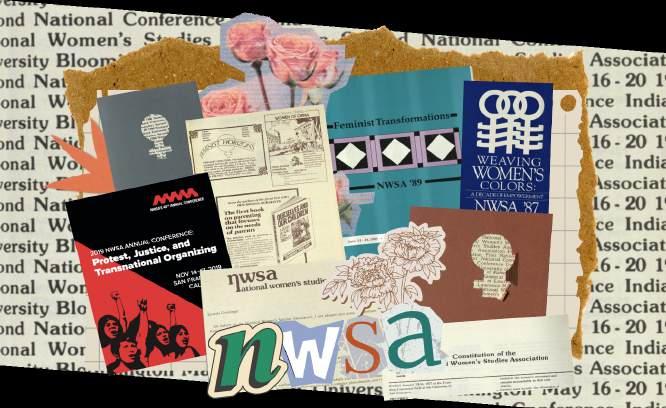
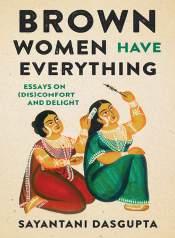
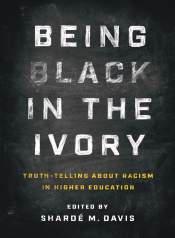
Brown Women Have Everything Essays on (Dis)comfort and Delight
Sayantani Dasgupta
180 pages $22.00 paper
Being Black in the Ivory Truth-Telling about Racism in Higher Education
Edited by Shardé M. Davis
312 pages $26.00 paper
An Efficient Womanhood Women and the Making of the Universal Negro Improvement Association
Natanya Duncan
352 pages $29.95 paper
Sexual Violence and American Slavery
The Making of a Rape Culture in the Antebellum South
Shannon C. Eaves
242 pages $27.95 paper
Sass
Black Women’s Humor and Humanity
J Finley
MF! Momentary Futures in Black Studies
234 pages $27.95 paper
Carceral Apartheid
How Lies and White Supremacists
Run Our Prisons
Brittany Friedman
232 pages $27.95 paper
Most UNC Press books are also available as E-Books.
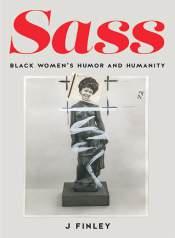
One Family’s Story and the Making of American History
Lori D. Ginzberg
288 pages $29.95 paper
The Rich Earth between Us
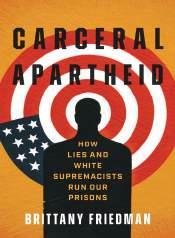
All Y’all
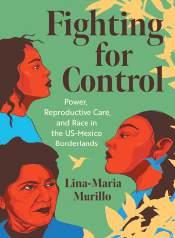
Queering Southernness in US Fiction, 1980–2020
Heidi Siegrist
240 pages $27.95 paper
Money Isn’t Everything
The Intimate Grounds of Race and Sexuality in the Atlantic World, 1770–1840
Shelby Johnson
230 pages $32.95 paper
Radical Solidarity
Ruth Reynolds, Political Allyship, and the Battle for Puerto Rico’s Independence
Lisa G. Materson
288 pages $29.95 paper
Fighting for Control
Power, Reproductive Care, and Race in the US-Mexico Borderlands
Lina-Maria Murillo
336 pages $29.95 paper
Queering Kinship in the Mormon Cosmos
Taylor G. Petrey
214 pages $27.95 paper
Ella Baker and the Black Freedom Movement, Second Edition
A Radical Vision
Barbara Ransby
512 pages $29.95 paper
The Life and Death of Ryan White
AIDS and Inequality in America
Paul M. Renfro
216 pages $24.95 paper
The Women of Rendezvous
A Transatlantic Story of Family and Slavery
Jenny Shaw
280 pages $29.95 paper
Buying and Selling Sex in TwentiethCentury Argentina
Patricio Simonetto
Translated by Sarah Booker
240 pages $34.95 paper
Everywhere the Undrowned
A Memoir of Survival and Imagination
Stephanie Clare Smith
142 pages $20.00 paper
Thanks to Life
A Biography of Violeta Parra
Ericka Verba
448 pages $34.95 paper
NEW IN PAPERBACK
Shirley Chisholm
Champion of Black Feminist Power Politics
Anastasia C. Curwood
472 pages $24.00 paper
Beatriz Allende
A Revolutionary Life in Cold War Latin America
Tanya Harmer
380 pages $29.95 paper

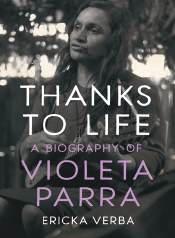

Presidential Sessions are curated panels/ discussions that are scheduled concurrently with other general conference presentations but hold a special place in the program. These discussions are focused on honoring scholarship and organizing work that speak to the breadth and depth of the field – how the work and impetus behind feminist transformations exist in the both/ and inside the classroom and in our collective communities, here on the continental United States of America and beyond human-made borders across the globe.
Room 330A
Friday, November 15th 9:30 AM - 10:45 AM
From viral hashtags to grassroots movements, the digital realm has emerged as a powerful arena for amplifying marginalized voices and driving impactful activism. Throughout the years, U.S. presidential elections have highlighted the crucial role digital platforms play in shaping narratives, mobilizing constituents, and driving tangible change. Given the outcome of the US presidential election, this session will highlight a diverse group of panelists, from grassroots organizers to scholar-activists, who will share their experiences and insights on how they have used the dynamic landscape of social media as a catalyst for political empowerment and social metamorphosis, particularly within disenfranchised communities.
Latoya Lee, California State University at Fullerton and NWSA Member at Large
Christina Boyles, Indiana University Bloomington
Piper Carter, Detroit Community Activist Leader
Chantel Watkins, Detroit Community Activist Leader


Indiana University Bloomington
Christina Boyles (she/her) is an Associate Professor of Information and Library Sciences in the Luddy School at Indiana University Bloomington. Her research explores the relationship between critical archival and data studies, community-centered praxis, and social justice. She currently directs projects funded by the Mellon Foundation and the National Endowment for the Humanities, including the Archivo de Respuestas Emergencias de Puerto Rico, or the Emergency Response Archive of Puerto Rico, a digital humanities project that works with community organizations to collect and preserve oral histories and artifacts pertaining to disaster. The project is available at arepr.org.

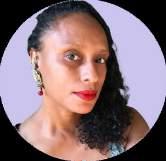
Detroit Community Activist Leader
Piper Carter (she/her) lives inside Detroit city and is an Arts and Culture Organizer in Entertainment Justice, Education Justice, Maker Space, Environmental Justice, and Food Justice communities. She hosts the Piper Carter Podcast on Detroit is Different where she discusses Social Justice and Hip Hop to a world wide audience. Piper is also an Image Maker, Fashion Photographer, Featured four times on Tyra Banks’ VH-1 TV show “The Shot”, The First Black Woman to shoot for Hi-End publications such as French Vogue, British Elle, New York Times, Spin, & Essence Magazines, & emerging talent for Music companies such as Def Jam, Sony Music, Warner Music, Universal Music, Disturbing tha Peace, Elektra Records, & Television Cast Images for BET. Piper is also the co-Founder of We Found Hip Hop, the creator of Dilla Youth Day (dedicated to providing S.T.E.A.M. education to underserved and marginalized youth in Detroit). She is also creator and Editor-In-Chief for thestudioarena. com.
Her commitment to movement building is extensive, with leadership and service in East Michigan Environmental Action Council (EMEAC), Detroit Equity Action Lab (for Racial Equity), Detroit Digital Justice Coalition (founding member), Detroit Independent Freedom Schools, Adult Ally for Detroit Youth, Public Allies Metro Detroit, the World March of Women US Chapter, the Detroit Creative Corridor Center UNESCO Detroit City of Design Stewardship Board, Universal Hip Hop Museum, Detroit Chapter of Hip Hop Caucus, Hip Hop Congress, the HipHop4Foundation, and Detroit Action - among many other organizations focused on liberation.
She received the prestigious Muhammad Ali Global Peace Initiative Women of Impact Award from The United Nations. She is a 3-Time Awardee Knight Arts Challenge by The Knight Foundation $50k Grant, Detroit Young Professionals Vanguarde Award, Community Connections Grant $4,5k Awardee, Cognizant Grant $25k Awardee, Ford Foundation $75k Awardee. She also received The Spirit of Detroit Award for Creating Dilla Youth Day.

Detroit Community Activist Leader
Chantel Watkins (she/her) is a Detroiter mixed with grit and tenacity. A seasoned organizer, activist, poet, and influencer she works hard to make sure radical black feminism is tied into every issue. No fan of racism, patriarchy, or bs you can find her all over Michigan making change. With 15 years of experience of fighting for social justice, she plans to keep making the world’s darkness discover more light.
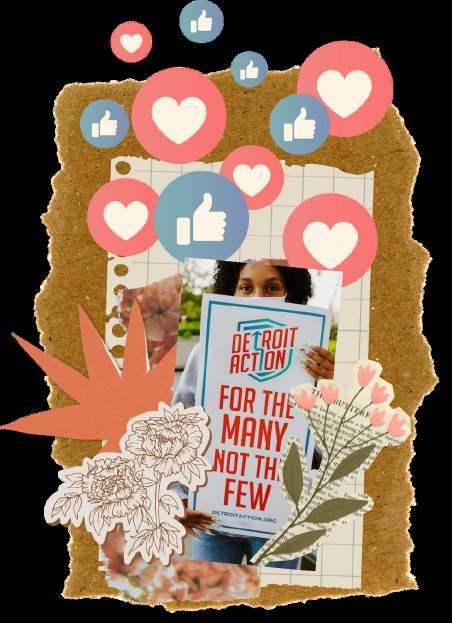

Room 330A
Friday, November 15th 2:00 PM - 3:15 PM
In 1974, activists including Lorelei DeCora Means, Madonna Thunderhawk, Phyllis Young, Janet McCloud, and Marie Sanchez founded Women of All Red Nations (WARN). Involving members from over 30 tribal communities, WARN challenged settler colonialism - especially coercive sterilization and mining on native lands - while also advocating for the rights of women within native communities and sovereignty movements. This presidential session celebrates the 50th anniversary of the founding of WARN by bringing together Indigenous feminist scholars and activists to discuss key issues in Indigenous feminist scholarship and activism, including the ongoing need to challenge settler colonialism and the violence it enables against Indigenous women and Two-Spirit People, as well as the ways Indigenous feminists theorize notions of (non)human relationality, environmental stewardship, decolonization, and sovereignty.
Kristina Gupta, Wake Forest University and NWSA Member at Large/Member Liaison
Lisa Kealohapa‘aokahaleole Hall, University of Victoria
Angela Sanchez, The Nooni Project, Sacred Waters Collective, and Michigan
State University
Luhui Whitebear, Oregon State University
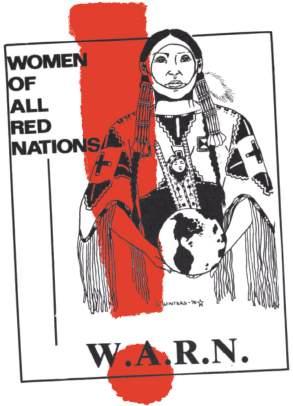

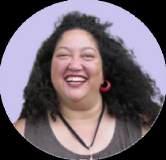
University of Victoria
Lisa Kealohapa‘ʻaokahaleole Hall (she/her) is a multiracial Kānaka Maoli Associate Professor and Director of Indigenous Studies at the University of Victoria. She is the author of “More Than ‘Two Worlds:’ Black Feminist Theories of Difference in Relation” in Critical Ethnic Studies and “Indigenous Women in Print,” in The Routledge Handbook of Critical Indigenous Studies. Hall received an MA and PhD in Ethnic Studies from the University of California at Berkeley. She graduated with a BA cum laude in Women’s Studies from Yale University. Her research and teaching interests include the intersections of race, colonialism, and indigeneity with gender and sexuality. Hall is currently completing a book manuscript entitled Making Relations in the “House of Difference.” Prior to joining UVic, Hall was chair of the Women’s and Gender Studies program and the 2011-2016 National Endowment for the Humanities Preceptor in Women’s Studies at Wells College in Aurora, NY. Throughout her time at Wells, she maintained visiting and courtesy professor status within Cornell University’s American Indian and Indigenous Studies Program

Michigan State University
Angela Sanchez (she/ her) is Anishinaabekwe and is Crane Clan Ojibway and Odawa from Peshawbestown, Michigan. She is a PhD student in the Department of Geography, Environment and Spatial Sciences at Michigan State University where her research focuses on increasing access to breastfeeding support services in Indigenous Communities. She holds a BA in Communications as well as an MBA, both from MSU. Angie is the founder of The Nooni Project, and co-founder of the nonprofit Sacred Waters Collective, both of which support birthwork and breastfeeding for Indigenous people in the state of Michigan. Angie is an Indigenous Lactation Counselor and was awarded the Indigenous Lactation Counselor of the Year in 2022 and earned a predoctoral fellowship in American Indian & Indigenous Studies in 2023.
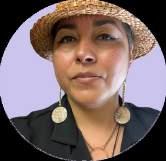
Oregon State University
Dr. Luhui Whitebear is an enrolled member of the Coastal Band of the Chumash Nation with Huestec and Cochimi ancestry. She is an assistant professor and coordinator of Indigenous Studies at Oregon State University. Institutionally Luhui serves on the core leadership of the President’s Commission on Indigenous Affairs, the Bias Response Team, and on Faculty Senate representing the College of Liberal Arts. She also previously served at the center director of the kaku-ixt mana ina haws at OSU. In the community, she serves as the Chair of the Corvallis School Board, as the Vice President of the OSBA Caucus of Color, on the board of the Chumash Maritime Association, and previously, on the MMIW USA board. Luhui is a mother, poet, and activist engaged in community-based work. Dr. Whitebear received her PhD from Oregon State University (OSU) in Women, Gender, and Sexuality Studies; MA from OSU in Interdisciplinary Studies; BS degrees from OSU in Anthropology and in Ethnic Studies. Her research focuses on California Indigenous studies, Indigenous feminisms, Indigenous rhetorics, Indigenous activism, MMIW, national law & policy, and Indigenous land & water rights. Prior to her time at OSU, Luhui served as the College Advising & Scholarship Coordinator for the Confederated Tribes of Grand Ronde. Dr. Whitebear has published in Feminist Formations, the American Indian Culture & Research Journal, and the University of Miami Race & Social Justice Law Review. She also has chapters in Grassroots Activisms: Public Rhetorics in Localized Contexts, The Routledge Companion to Gender and the American West, Women Worldwide: Transnational Feminist Perspectives, and Persistence is Resistance: Celebrating 50 Years of Gender, Women, & Sexuality Studies. Her forthcoming work will be included in Rhetoric & Public Affairs, Decolonial Possibilities, and the Routledge Handbook of Contemporary Feminist Rhetoric
Room 330A
Friday, November 15th
5:00 - 6:15 PM
In 1972, Chicana women working in the Farah Manufacturing Company waged a battle to form a labor union in order to fight for better working conditions. The strike, a landmark in the history of what would come to be known as Chicana feminism, ended in favor of the Chicana workers in 1974. This was one of many important events in the 1960s and 1970s that would lead to the formation of Chicana feminism as an activist and intellectual formation. Since then, Chicanas have continued to develop theory and praxis in order to better the lives of Mexican-descended women, queer and trans folks, children and families, and communities writ large. This panel is comprised of Chicana feminist activists, thinkers, and community builders who continue the legacies forged in the Farah Strike and so many other activities from half a century ago. The panelists consider the key contributions of Chicana feminism as well as the exciting new trajectories such work takes in the 21st century.
Karma R. Chávez, University of Texas at Austin and NWSA Treasurer
Maria Cotera, University of Texas at Austin
Elena Herrrada, Detroit Community Activist
Jessica Lyman Lopez, University of Minnesota
Aimee Villarreal, Texas State University


University of Texas at Austin
Dr. Maria Eugenia Cotera is an associate professor in the Mexican American and Latino Studies Department at the University of Texas - Austin. She holds a PhD from Stanford University’s Program in Modern Thought, and an MA in English from the University of Texas. Her first book, Native Speakers: Ella Deloria, Zora Neale Hurston, Jovita González, and the Poetics of Culture, (University of Texas Press, 2008) received the Gloria Anzaldúa book prize for 2009 from the National Women’s Studies Association (NWSA). Her edited volume (with Dionne Espinoza and Maylei Blackwell), Chicana Movidas: New Narratives of Feminism and Activism in the Movement Era (University of Texas Press, 2018) has been adopted in courses across the country. Professor Cotera is the co-founder and project director of the Chicana por mi Raza Digital Memory Collective, an online interactive archive of oral histories and material culture documenting Chicana Feminist praxis from the 1960s to the 1990s. She has curated several public history exhibits, including Las Rebeldes: Stories of Strength and Struggle in southeast Michigan (2013) and Chicana Fotos: Nancy De Los Santos (2017) and currently serves as an advisor/consultant numerous large-scale digital public humanities projects focusing on the Latinx experience. Professor Cotera has served on the National Council for the American Studies Association (20072010), the governing board of the Latina/o Studies Association (2014-2015), the program committee for the National Women’s Studies Association (2017-2018), the Arte Público Recovery Project Governing Board (2018-present), and the ACLS Commission on Fostering and Sustaining Diverse Digital Scholarship (2021-2023).

Detroit Community Activist Leader
Elena Herrada (she/her) is a native of Detroit and is the granddaughter of Repatriados from Aguas Calientes, México. She attended Wayne State University, becoming involved with activism and Chicano Boricua studies. She graduated with a degree in Criminal Justice and a major in Chicano Boricua Studies - her motivation to graduate partially stemmed from her grandfather, who attended her graduation wearing full revolutionary regalia, shouting, “Viva Herrada!”
Much of Herrada activism stems from the concept of “Los Repatriados,” the Repatriated. The Repatriated refers to the history of Mexican immigrants who were encouraged to move to the U.S. to work in bracero programs, only to be deported in massive numbers during the Depression, serving as a scapegoat for U.S. economic issues. Elena’s research and activism surrounds raising awareness of this history through screening documentaries, collecting oral histories, and hosting events to raise awareness about Los Repatriados. Elena is an adjunct instructor of Criminal Justice at Wayne County Community College and founding member of Friends of Bowen Branch Library.

University of Minnesota
Jessica Lopez Lyman, Ph.D (she/ her) is an interdisciplinary performance artist and Chicana feminist scholar interested in how Black, Indigenous and Latina/o/x people create alternative spaces to heal and imagine new worlds. She received her Ph.D. in Chicana and Chicano Studies from the University of California, Santa Barbara. Her book Hard-Land, U.S.A: Latina/x Art, Performance, and Organizing in the Twin Cit ies (forthcoming from the University of Minnesota Press) explores how artists use their aesthetics to contribute to contemporary social movements ranging from Black Lives Matter to Indigenous resistance to oil pipelines by enacting various types of movidas. Lopez Lyman’s second book project focuses on Chicana/Latinx climate justice. She is an Assistant Professor in the Department of Chicano and Latino Studies at the University of Minneso ta, Twin Cities.
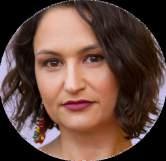
aimee m. villarreal
Texas State University
Aimee M. Villarreal (she/her) is an assistant professor of anthropology at Texas State University. As a Chicana with roots in New Mexico and Texas, she descends from farmworkers, faith healers, educators, and community workers whose collective spirit she brings to her teaching, scholarship, and creative projects. Her interdisciplinary work focuses on sanctuary practices, movements and other radical acts of rebeldía for social justice, equity, and sustainable futures in the US-Mexico borderlands. Villarreal was part of the creative team that made the award-winning documentary animation, Frontera! Revolt and Rebellion on the Río Grande (2014). Her forthcoming book Sanctuaryscapes in the New Mexico Borderlands: Movements and Revivals Across the Secular-Religious Divide (2024), tells time-traveling stories about how people form bonds of solidarity, protection, and care in moments of social and political crisis.

Room 330A
Saturday, November 16th 2:00 PM - 3:15 PM
Founded in 1974, Salsa Soul Sisters was the first organization dedicated to and led by Black lesbians in the United States. A network of homegirls, they created a legacy of political strategy rooted in creativity, pleasure, and care that remains timely and critical in this moment. This presidential session celebrates this legacy by staging a conversation around archiving Black queer stories, educative innovations, collective care practices, and the raw work of coalition building across differences. This honest dialogue consists of panelists whose work aligns with core principles, actions, and aspirations of Salsa Soul Sisters and watering care communities in the tradition of “A village taking care of itself” today.
Dominique C. Hill, Colgate University and NWSA Member at Large
Pamela E. Alexander, Detroit Community Activist Leader
Stephanie Andrea Allen, Indiana University Bloomington
Nikki Lane, Duke University
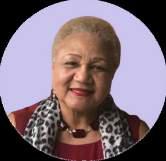
Pamela E. Alexander
Detroit Community Activist Leader
Pamela E. Alexander’s (she/her) professional career in human services has expanded by more than 40 years. As an executive administrator, her areas of expertise have centered on developing and managing non-profits and start-ups, providing leadership development in managing organizations and training directors/supervisors and direct-line staff through the “Servant Leadership Model.” Pamela is a facilitator/trainer on board leadership processes, race, equity and inclusion principles, a grassroots community organizer and social justice advocator. Pamela’s work has focused on families of color, the health and wellness of women and girls, multiple school districts and criminal justice reform, intervention supportive services for domestic violence survivors, substance abuse treatment services, services for aging out of foster care youth and with local community policing agencies and courts. Coaching young people through a pipeline to leadership framework appears to be her passion as well. Pamela had an extraordinary opportunity in 2019 to present on a panel discussion on “Transgender Women of Color” at the United Nations in New York. Pamela retired in 2020, from the position of Deputy Director at the Ruth Ellis Center after serving for 5 ½ years. She was elected as the Northern Macomb NAACP President in February 2021 and served for the first two years in building the foundational strategies in addressing civil rights issues. She currently serves as the Women in the NAACP (WIN) Standing Committee Chair, and she is a board member of Bell Global Justice Institute. Pamela has served on an array of distinguished boards throughout her career.
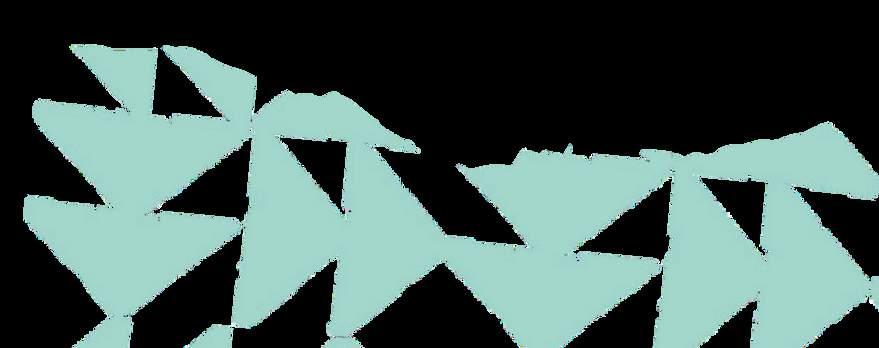
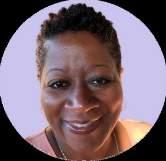
Indiana University Bloomington
Stephanie Andrea Allen, Ph.D (she/her) is an interdisciplinary humanities scholar, creative writer, small press publisher, and Assistant Professor of Gender Studies at Indiana University. Her research centers Black lesbian cultural histories and Black feminisms through various expressions, including literature, film, and other print and visual media. Her current book project, We Must Document Ourselves Now: Black Lesbian Cultural Legacies and the Politics of Self-Representation, examines how Black lesbian literature and film reflects the material realities of Black lesbian lived experiences, as well as how it responds to and resists the heteropatriarchal systems that contribute to the invisibility of Black lesbians in popular and literary culture.
Dr. Allen is also Publisher and Editor-in-Chief at BLF Press, and co-editor of Serendipity Literary Magazine. Her creative work can be found in various online and print publications, including Mom Egg Review, Star*Line, Inkwell Black, Big Echo: Critical Science Fiction Magazine, Sinister Wisdom, and in her two short story collections, A Failure to Communicate and How to Dispatch a Human: Stories and Suggestions.

Duke University
Nikki Lane, Ph.d. (she/her) is a Cultural and Linguistic Anthropologist working along the edges of academia. As an interdisciplinary scholar, she works to make contemporary critical theory accessible in bringing what folks do in Ivory Towers down-toearth, putting complex ideas in common sense, everyday language anyone can understand. Born and raised in the American South, her work explores issues related to American Popular Culture, African American language practices, and sexual cultures throughout the African Diaspora. She is an Assistant Professor in Duke’s Department of Gender, Sexuality and Feminist Studies. Dr. Lane specializes in using popular culture as an entry point for discussing complex social theory. Her first book titled The Black Queer Work of Ratchet: Race, Gender, Sexuality, and the (Anti)Politics of Respectability explores the use of the word “ratchet” in a community of Black queer women in Washington, DC.


“Displaced, Diasporic, Dispossessed, We Are Coming Together”: Activating and Amplifying Critical Feminist Connections Within and Beyond Borders, Nation States, and Empire
Room 330A
Saturday, November 16th
3:30 PM - 4:45 PM
Motivated by a desire to highlight the various forms of contemporary activism that fall under the “transnational feminist” umbrella, this presidential session highlights the various registers of resistance employed by activists in Brazil, China, Nicaragua, Palestine, and Turkey against state violence, surveillance, repression, occupation, and exile. We are coming together in this session with the hope of amplifying and activating critical coalitional feminist tactics for navigating authoritarian, colonial, national, and imperial powers.
Jessica N. Pabón-Cólon, The State University of New York at New Paltz and NWSA Member at Large
Nada Elia, Western Washington University
Sueann Caulfield, University of Michigan Global Feminisms Project
Tamara Dávila, Kalamazoo College
Seda Saluk, University of Michigan
Wang Zheng, University of Michigan
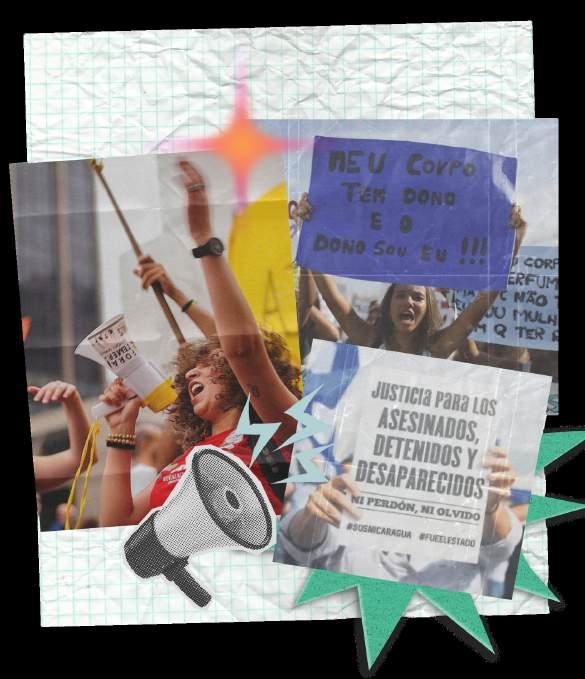

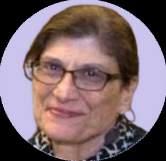
Western Washington University
Nada Elia (she/her) is a diaspora Palestinian writer, grassroots organizer, and Associate Professor of Ethnic Studies at Western Washington University. She the author or co-editor of five books, including Greater Than the Sum of Our Parts: Feminism, Inter/Nationalism, and Palestine, Trances, Dances, and Vociferations: Agency and Resistance in Africana Women’s Narratives, Critical Ethnic Studies: A Reader, and the INCITE! Stop Law Enforcement Violence Toolkit. and has contributed chapters to Palestine: A Socialist Introduction and The Case for Sanctions on Israel. She is a core member of the Palestinian Feminist Collective.

University of Michigan Global Feminisms Project
Sueann Caulfield (she/her) is Professor of History and Professor in the Residential College at the University of Michigan, where she is also Co-director of the Global Feminisms Project and Associate Director of the Donia Center for Human Rights.
Professor Caulfield has been a collaborator with the Global Feminisms Project since 2014. A specialist in Brazilian history with a research focus on gender and sexuality, she has published widely on the topics of gender and historiography, feminism, family law, race, and sexuality in Brazil, including the books, In Defense of Honor: Morality, Modernity, and Nation in Early Twentieth-Century Brazil and the co-edited volume Honor, Status, and Law in Modern Latin American History. Her current book project, under contract with Duke University Press, is a history of family and law that focuses particularly on paternity and legitimacy in Brazil from the early nineteenth century to the present. She has participated in numerous workshops, trans-national teaching projects, and exchanges on the history of human rights in Latin America.
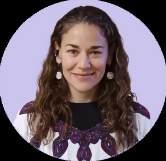
Kalamazoo College
Tamara Dávila (she/her) is a Nicaraguan psychologist, feminist activist, and human rights defender. She is the 2023-2024 Human Rights Fellow at the Arcus Center for Social Justice Leadership in Kalamazoo College, Michigan. Born in 1981, Tamara Dávila (she/her) is a Nicaraguan feminist political activist and human rights defender. She graduated with a psychology degree from Universidad Centroamericana in Managua and holds two master’s degrees in Gender, Identity and Citizenship from the Universidad de Huelva, Spain, and another in Public Policy, Rights and Youth Leadership from Universidad Centroamericana in Managua. Since 2004, Tamara has worked extensively with women’s organizations and other civil society groups that promote sexual and reproductive rights and advocate on behalf of survivors of violence against women and girls. Dávila has been an active participant in demonstrations and initiatives regarding gender-based violence and has been denouncing the Ortega-Murillo government and working with UNAB, Articulación Feminista, and UNAMOS, among other political and civil movements, to achieve a democratic transition in her country that allows justice, equality, equity, and freedom. Because of that, government- sponsored intimidation and persecution increased, as she was followed and her house was placed under surveillance.
Due to her advocacy in defense of human rights and her leadership in the widespread opposition movement, Tamara was illegally and violently arrested at her house by the Ortega Murillo regime on June 12, 2021, in the presence of her five-year-old daughter. Currently, she is the 2023-2024 Human Rights Fellow at the Arcus Center for Social Justice Leadership in Kalamazoo College, Michigan. She continues to advocate for Nicargua’s freedom and work to build a united and diverse movement in exile, in coordination with people inside the country and around the world. She was recently elected spokesperson of the new political movement of leaders in exile, Monteverde.


University of Michigan
Seda Saluk (she/her) is an Assistant Professor in Women’s and Gender Studies at the University of Michigan. She is a medical anthropologist with research interests in reproduction and public health, feminist studies of science and technology, and postcolonial and transnational feminisms. Her work has appeared in journals including International Journal of Middle East Studies, Journal of Middle East Women’s Studies, Women’s Studies International Forum, Medical Anthropology Quarterly, and Collaborative Anthropologies; edited volumes on reproduction and feminist movements; and online at Jadaliyya, 5Harfliler, and Çatlak Zemin.
Saluk is currently writing a book titled Monitoring Reproduction: Surveillance, Labor, and Care in Turkey, which examines the rise of reproductive surveillance in Turkey within the context of demographic anxieties over changing fertility patterns among Turkish and Kurdish communities. She is also at work on a new project titled Contesting Vaccines: Reproduction, Race, and Nation, which explores how debates around infectious diseases and vaccines are intimately tied to broader questions about gender, race, and nation
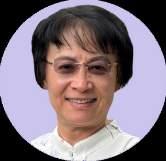
Wang Zheng
University of Michigan
Wang Zheng (she/her) is Professor Emerita of Women’s Studies and History at the University of Michigan. She is the author of Finding Women in the State: A Socialist Feminist Revolution in the People’s Republic of China, 19491964 ( 2016), and Women in the Chinese Enlightenment: Oral and Textual Histories (1999); and co-editor of From the Soil: The Foundations of Chinese Society, Translating Feminisms in China, and Some of Us: Chinese Women Growing Up in the Mao Era.
A long-term academic activist promoting gender studies in China, she initiated multiple projects to generate feminist transformation of knowledge production in higher education. In collaboration with feminist scholars in China, she run university faculty training workshops and graduate seminars as well as academic conferences in China from 1999 to 2018. When changed political climate in China closed such spaces for academic activism, including the UM-Fudan Joint Institute for Gender Studies that she founded and co-directed, she has switched her efforts to cyber space activism. The first Chinese feminist website outside China, chinesefeminism. org, created by Prof. Wang, has functioned as an important intellectual space to continue dissemination of feminist knowledge as well as to build feminist communities via the Internet. She has also authored two books and co-edited nine volumes on feminism and gender studies in Chinese as part of her project of promoting feminist scholarship in China.

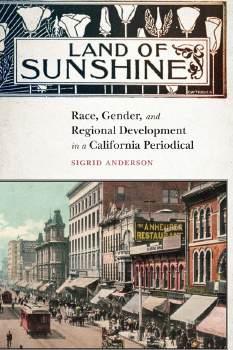
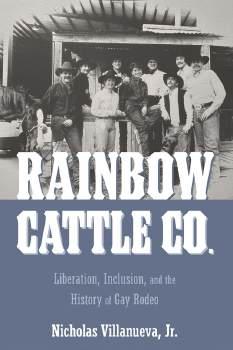
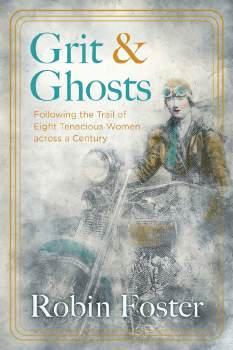
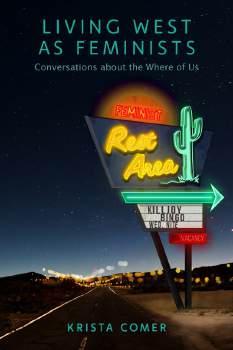
LAND OF SUNSHINE
Race, Gender, and Regional Development in a California Periodical
Sigrid Anderson
$60.00 now $36.00 Hardcover
THE INCARCERATION OF NATIVE AMERICAN WOMEN
Creating Pathways to Wellness and Recovery through Gentle Action Theory
Carma Corcoran
$55.00 now $33.00 Hardcover New Visions in Native American and Indigenous Studies
THE CAMP FIRE GIRLS
Gender, Race, and American Girlhood, 1910–1980
Jennifer Helgren
$99.00 now $59.40 Hardcover
$30.00 now $18.00 Paperback
Expanding Frontiers
WOMEN, EMPIRES, AND BODY POLITICS AT THE UNITED NATIONS, 1946–1975
Giusi Russo
$99.00 now $59.40 Hardcover
$30.00 now $18.00 Paperback
Expanding Frontiers
Liberation, Inclusion, and the History of Gay Rodeo
Nicholas Villanueva, Jr.
$50.00 now $30.00 Hardcover
GRIT AND GHOSTS
Following the Trail of Eight Tenacious Women across a Century
Robin Foster
$26.95 now $16.17 Paperback
The Original Conflict over the Equal Rights Amendment, 1920–1963
Rebecca DeWolf
$99.00 now $59.40 Hardcover
$30.00 now $18.00 Paperback
WOMEN’S
AMERICAN FOOTBALL
Breaking Barriers On and Off the Gridiron
Russ Crawford
$34.95 now $20.97 Hardcover
Gender and Race in U.S.
Self-Sufficiency Popular Culture
Valerie Padilla Carroll
$60.00 now $36.00 Hardcover
Conversations about the Where of Us
Krista Comer
$24.95 now $14.97 Paperback
HELL-BENT FOR LEATHER
Sex and Sexuality in the Weird Western
Edited by Kerry Fine, Michael K. Johnson, Rebecca M. Lush, and Sara L. Spurgeon
$99.00 now $59.40 Hardcover
$35.00 now $21.00 Paperback
Postwestern Horizons
A History
Nora E. Jaffary
$99.00 now $59.40 Hardcover
$25.00 now $15.00 Paperback
Engendering Latin America
USE CODE 6NWSA24 TO RECEIVE 40% OFF WITH FREE SHIPPING ON THESE AND MORE TITLES.
Room 330A
Saturday, November 16th 5:00 PM - 6:15 PM
Audre Lorde first visited Berlin in 1984 and returned annually until she transitioned in 1992. Inspired by her many visits, she wrote “This Urn Contains Earth from German Concentration Camps,” “Berlin is Hard on Colored Girls,” and other texts, including the “Foreword” to Showing Our Colors: Afro-German Women Speak Out, the first book published by Afro-Germans and the first to define “Afro-German,” a term Lorde coined with her Black German comrades and friends. 30 years after Lorde, Heidi R. Lewis journeyed to Berlin to teach her annual study abroad course for the first time. During her many visits, Lewis has also practiced transnational worldmaking with Black women in Germany, many who had relationships with Audre, such as the late Ika Hügel-Marshall, Ria Cheatom, and Katharina Oguntoye. During this session, Lewis will celebrate Lorde’s 90th birthday by honoring her time in Berlin with Katja Kinder, Peggy Piesche, and Maisha Auma of Generation Adefra, Germany’s first grassroots activist group for Black women.
Erica L. Williams, Spelman College and NWSA Secretary
Maureen Maisha Auma, Universität Klagenfurt, Universität Innsbruck, Wissensnetzwerk Rassismusforschung: Regionalnetzwerk Ost, and the Association for the Study of the Worldwide African Diaspora
Heidi R. Lewis, Colorado College and 22nd NWSA President
Peggy Piesche, Federal Agency of Civic Education, Germany
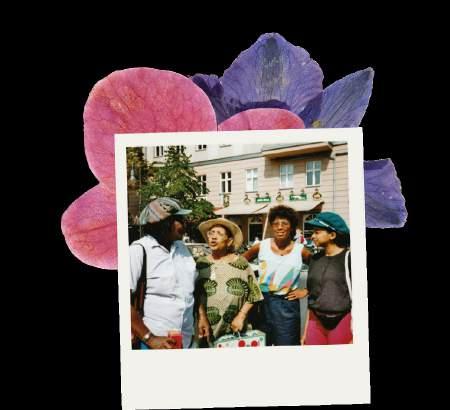
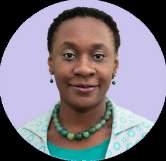
Universität Klagenfurt, Universität Innsbruck, Wissensnetzwerk Rassismusforschung: Regionalnetzwerk Ost, and the Association for the Study of the Worldwide African Diaspora
Maisha M. Auma (she/her) is an Educator, Gender Studies Scholar, and Activist. She was Professor for Childhood and Difference (Diversity Studies) at the University for Applied Sciences, Magdeburg- Stendal, from 2008 - 2022. She was a Visiting Professor at the Centre for Transdisciplinary Gender Studies at the Humboldt University Berlin from 2014 to 2019. She held the Audre Lorde Guest Professorship for Intersectional Diversity Studies in the DiGENet, Diversity and Gender Equality Network of the Berlin University Alliance (BUA) in 2021 and 2022. She is currently a Visiting Professor at the Centre for Interdisciplinary Gender Studies of the Technical University Berlin. Maisha has been active in the Black queer-feminist collective “Generation Adefra, Black Women in Germany” since 1993. Her research focuses on: diversity, inequality, and plurality in textbooks and didactical materials in East and West Germany, intersectional sexual education as empowerment for Black communities and communities of color, critical whiteness, intersectionality, decoloniality, and critical race theory. Together with Peggy Piesche and Katja Kinder she carried out a consultation process in cooperation with the LADS, the State Agency for Equal Treatment and Against Discrimination for the State of Berlin in 2018. The project was entitled: Making Visible the Discrimination and Social Resilience of People of African Heritage in Berlin. It was a project within BLACK BERLIN, the UN-Decade for People of African Heritage 2015 - 2024.
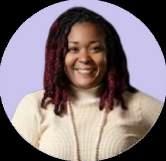
Heidi R. Lewis
Colorado College and the 22nd NWSA President
Dr. Heidi R. Lewis (she/her) is President of the National Women’s Studies Association and David & Lucile Packard Professor of Feminist & Gender Studies at Colorado College. She’s published in Womanism Rising, Rethinking Women’s and Gender Studies II, The Cultural Impact of Kanye West, the Journal of Popular Culture, the Journal of Black Sexuality and Relationships, and the German-language text Indivisible: Alliances against Racism. She’s contributed to Mark Anthony Neal’s NewBlackMan, NPR, and Bitch Media, and given talks at Vanderbilt, the Motherhood Initiative for Research and Community Involvement, Cornell, the U.S. Olympic Committee, Portland State, and many more organizations and institutions, especially in the U.S. and Germany. Developed from her work teaching abroad for the past decade, her first book, In Audre’s Footsteps: Transnational Kitchen Table Talk in Berlin, examines how women of color resist subjugation and oppression and how they navigate the always advantageous but sometimes contentious contours of solidarity. More recently, she wrote a single-authored manuscript entitled “Make Rappers Rap Again: Interrogating the Mumble Rap ‘Crisis,’” which is forthcoming from Oxford University Press next summer.
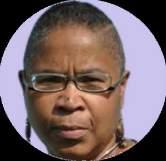
Peggy Piesche
Federal Agency of Civic Education, Germany
Peggy Piesche (she/her) was born and raised in the GDR, is a Black literary and cultural scholar. At the Federal Agency for Civic Education, she heads the department “Political Education and Plural Democracy” at the new location in Gera with a focus on intersectional transformation and memory, the linking of diversity, intersectionality and decoloniality (d_id) and political education critical of racism. She has been a co-woman* at ADEFRA e.V. (Black Women in Germany) since 1990. Together with Maisha Auma and Katja Kinder, she has been part of the academic team Diversifying Matters, an expert group of Generation Adefra, which conducted the Berlin consultation process for the UN Decade for People of African Descent in 2018. She serves on numerous advisory boards, including the new Equality Monitoring Board on anti-Black Racism and Equality for People of African Descent as part of the UN Decade of the State of Berlin.
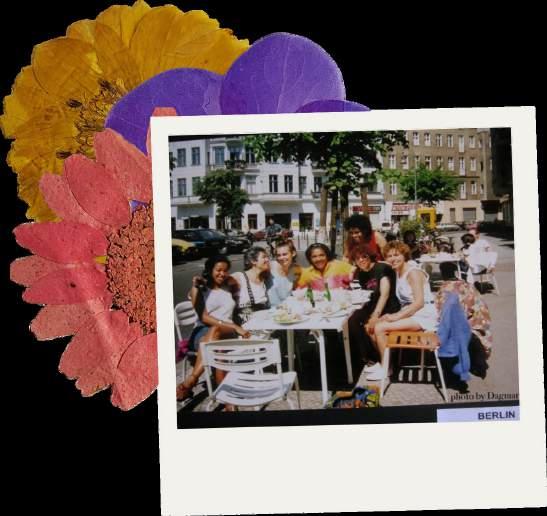
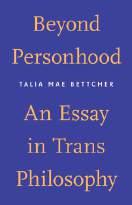
Beyond Personhood
An Essay in Trans Philosophy
Talia Mae Bettcher
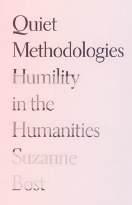

Quiet Methodologies
Humility in the Humanities
Suzanne Bost
$25.00 paper | 176 pages
$24.95 paper | 328 pages
The Impossibility of Muslim Boyhood
Shenila Khoja-Moolji
$10.00 paper | 116 pages
Ungendering Menstruation
Ela Przybyło
$10.00 paper | 104 pages
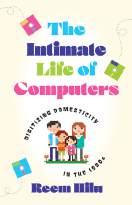
Monstrous Work and Radical Satisfaction Black Women
Writing under Segregation
Eve Dunbar
$27.00 paper | 200 pages
Crip Negativity
J. Logan Smilges
$10.00 paper | 104 pages
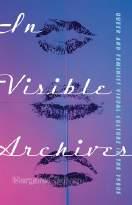
The Intimate Life of Computers
Digitizing Domesticity in the 1980s
Reem Hilu
$27.00 paper | 248 pages
In Visible Archives Queer and Feminist Visual Culture in the 1980s
Margaret Galvan
$28.00 paper | 326 pages
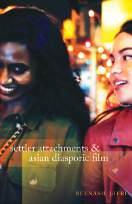
Settler Attachments and Asian Diasporic Film
Beenash Jafri
$27.00 paper | 248 pages
University of Minnesota Press | 30% off our online collection! | z.umn.edu/nwsa24



Our NWSA Constituency Groups are member-driven spaces focused on facilitating networks of support, exploring scholarly and activist topics, professional standards within subsets of the discipline, and fostering community connections based upon shared socio-political locations.
Each year, Constituency Groups are able to sponsor General Conference Sessions, which allows each participating group to amplify scholarship and/or organizing work that reflects the commitments of each group and/or offer a space for facilitated Association-based organizing.
Sponsored by the Popular Culture Interest Group
Friday, November 15th
8:00 AM - 9:15 AM | 330A
Barbie made impressive waves in 2023, touted as a ‘feminist film’ delivered with shades of pink and girlhood magic. Arguably, Barbie represents the feminist movement that is occurring in media, the use of film/television as a way of consciousness raising. But, criticisms of Barbie included everything from it being ‘feminism 101’ to encouraging stereotypes. The conflicted response to the film opens up a space for conversation around the intertwining of feminism and media.
Sponsored by the Program, Administration, and Development Committee (PAD)
Friday, November 15th
8:00 AM - 9:15 AM | 330B
Much attention has been given to the changing landscape of higher education in the past 10 years due to conservative legislation, the COVID-19 pandemic, enrollment dips, and changing student demographics. This two-part panel, sponsored by NWSA’s Program Administrators and Directors Committee, specifically addresses how the curricula and structuring of Women’s and Gender Studies programs have responded to these changes, forging new directions in women’s studies. The first panel will discuss how the administration of WGS programs has changed, with individual panelists presenting on program mergers, department name changes, “career readiness” mandates, the structuring of WGS degrees, and administrative responses to legislative challenges.
Sponsored by the Program, Administration, and Development Committee (PAD)
Friday, November 15th
9:30 AM - 10:45 AM | 330B
Much attention has been given to the changing landscape of higher education in the past 10 years due to conservative legislation, the COVID-19 pandemic, enrollment dips, and changing student demographics. This two-part panel, sponsored by NWSA’s Program Administrators and Directors Committee, specifically addresses how the curricula and structuring of Women’s and Gender Studies programs have responded to these changes, forging new directions in women’s studies. The second panel will discuss specific curricular changes, including new approaches to teaching the intro course, the role of “feminist theory” in WGS programs, AI and WGS, and the WGS capstone course.
Sponsored by the South Asian Caucus
Friday, November 15th 11:00 AM - 12:15 PM | 330B
We know the academy as a place where feminism can be (un)done. Ongoing budgetary and political pressures threaten the existence of our workspaces. As South Asian/W.O.C. academics in U.S.-centric academic spaces, we are located on the threshold of academic legitimacy, always at risk of dismissal or hostility. But Mariame Kaba has designated hope as a “discipline.” Thus, we inhabit a hopeful space inclusive of contemporary transnational feminisms, critical race theory, intersectional theory, community engagement, service learning, and many other iterations.
This panel will stress the legibility and legitimacy of these critical feminist practices and spaces interrogating elements of race, class, gender, sexuality, cis-heteronormativity ability, and other characteristics that underpin the institution of academia and normative pedagogical practices. How can we resist a watered-down rhetoric of feminism that centers whiteness? How can we lead our students, departments, and administration to care about other people in different times and spaces?
Sponsored by the Lesbian Caucus
Friday, November 15th 11:00 AM - 12:15 PM | 142B
WGS scholars, activists, and textbooks regularly position “gender” and “sexuality” as two discrete categories of identity. In “Is ‘Lesbian’ a Gender?” I utilize historical lesbian writing and contemporary self-reports from lesbians to challenge that distinction. I trace how the concept of lesbianism has narrowed over time to include (only) sexual identity, ultimately arguing that this shift 1) cements homonormativity, cissexism, and white-supremacist patriarchy, 2) erases the gender-expansive legacies, realities, and potential of lesbianism and other “sexual” identities and 3) undercuts the possibility for lesbian/ trans/ nonbinary coalition. Drawing on close readings of lesbian/ feminist texts and autoethnographical reflection, “Is Lesbian a Gender?” emphasizes what we lose in our attempts to prise apart these co-constitutive categories of identity.
Sponsored by the Trans/Gender Variant Caucus
Friday, November 15th
2:00 PM - 3:15 PM | 330B
Despite long-standing structural and discursive exclusion from feminist and lesbian epistemologies, this panel considers the transformative potential of trans studies in reshaping feminist scholarship. By examining the rich insights and theoretical frameworks emerging from trans studies, this panel challenges and reconceptualizes prior assumptions about feminist frameworks, histories, and methodologies. Building from moments of trans-exclusion, panelists seek to navigate the complexities of feminist theory on trans terms, envisioning a newly radical and trans-inclusive feminism that harnesses the latent possibilities within storied feminist frameworks. Through critical engagement and collaborative dialogue, this panel endeavors to foster a more nuanced understanding of gender abolition, feminist praxis, and power dynamics within feminist spaces.
Sponsored by the Indigenous People’s Caucus
Friday, November 15th
3:30 PM - 4:45 PM | 330A
The United Nations Declaration on the Rights of Indigenous People (UNDRIP) was adopted in 2006, thirty-two years after the Women of All Red Nations (WARN) was established. WARN and UNDRIP both centered the sovereignty of Indigenous people in their foundational efforts, with WARN holding a focus on Indigenous women’s rights. In 2024, many of the same concerns are still being faced by Indigenous people. With the threats of climate change looming and continued attacks on rights to our lands, bodies, and identities, Indigenous people must continue to assert our sovereign rights on multiple fronts. This roundtable will use the frameworks WARN and UNDRIP offered to discuss the sovereign rights of Indigenous people from a feminist perspective.

Sponsored By the Asexuality Studies Interest Group
Friday, November 15th
3:30 PM - 4:45 PM | 353
In thinking through the journey and not only the arrival of asexuality into feminist spaces, it is important to simultaneously recognize that while the ace community has existed and been actively building community for decades, asexuality studies is a relatively new field. Recently, asexuality studies has become an increasingly visible field, with scholars like Cerankowski and Milks (2010), Gupta (2015), Kim (2011, 2014), Owen (2014, 2018), Przybylo (2019), Winer et al. (2022), and others, offering unique insights and challenges for feminist studies, queer studies, disability studies, Black studies, among other fields, as it challenges compulsory sexuality, allonormativity, amatonormativity, and other systems of oppression that are particularly important in asexuality studies. This panel offers new opportunities for feminists to rethink feminist activism, scholarship, and pedagogy. Specifically, this sponsored panel will address aromantic and asexual invisibility, constructions of sexuality and queerness, colonial models of attraction and gender, and practices of aspec readings.
“Community is Something We Do”: An Invitation to the Women of Color Caucus Think Tank
Sponsored By the Women of Color Caucus
Friday, November 15th 3:30 PM - 4:45 PM | 252B
The Women of Color Caucus (WoCC) invites our NWSA members and alumni of the Women of Color Leadership Project for a collective Think Tank. As the Association grows and strengthens its connection to the membership, WoCC is invested in growing its particular commitments to women and non-binary people of color. As we gather for our 44th Annual Conference, we are grounded in Grace Lee Bogg’s reminder that “community is not something we have, it’s something we do.”
The WoCC Think Tank invites us to engage feminist kinship, solidarity, and freedom dreaming as we consider how we define community - what does this look like for you? - professional development, mentorship, engagement as a Caucus, and how we can strengthen the pipeline from WoCLP to the larger

Sponsored by the Publishing Feminisms Interest Group
Friday, November 15th
5:00 PM - 6:15 PM | 330B
Texts are much more than an assemblage of words, symbols, and images. They are physical and discursive artifacts that embody a path of creation, editing, and publishing; they hold the imprint of people, politics, and practices that enabled publication. This panel explores the richness of feminist publishing through the challenges and value of making minoritized voices and views visible through print culture. Focusing on the role of editors and the impact of texts as they circulate through the world, this panel analyzes writing and publishing as a feminist praxis in two ways: first, writers, editors, publishers, printers, distributors, and vendors have attempted to move us closer to social justice by infusing a feminist ethic in their processes of creation. And, second, through both publishing processes and the publications themselves, feminists have formed social, political, economic, and affective networks.
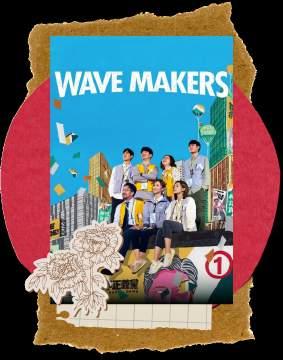
Sponsored by the North American Asian Feminist Collective Caucus
Saturday, November 16th
8:00 AM - 9:15 AM | 330A
This panel examines the recent trends in digital feminist movements and countermovements, drawing on the cases of mainland China and Taiwan. Yixin Xu investigates how Netflix’s globalization strategy fosters Taiwanese feminist resistance through the television series , while Eva Liu explores how social media platforms serve as a conduit for the localized production of feminist theory in China. Conversely, Lucy Lu Cai analyzes how Chinese cyber-nationalists weaponize nationalist discourses to attack digital feminists, and Celine Liao examines how Chinese grassroots anti-feminists leverage political institutions to oppose women’s rights law advancements. Collectively, these presentations underscore the role of digital media in cultivating both feminist and anti-feminist networks. By shedding light on the critical engagement of narrative media, digital platforms, and political agency in Chinese-speaking contexts, we aim to contribute to feminist scholarship and activism by discussing the opportunities and challenges of contemporary digital feminist journeys.

Sponsored by the Animal Studies Interest Group
Saturday, November 16th
8:00 AM - 9:15 AM | 330B
This panel offers an intersectional feminist posthumanist analysis of war, occupation, militarization, and settler colonialism. Feminist decolonial posthumanist theories (Boisseron 2018; Deckha 2012; Gossett 2015; McKittrick 2014, 205; Weheliye 2014) trace the interconnections of coloniality, race, gender, sex, species, machines, and affect in the un/making of human and non-human lives. We apply these frameworks to illuminate the interworkings of power within the biopolitical and necropolitical impacts of war, securitization, and occupation, particularly as they depend on dehumanization and animalization as technologies of gendered racialization—from the role of military dogs and robot dogs in war, to the use of video games, cell phones, and social media to screen war. This conversation thinks with transnational feminist and queer analyses of war and occupation with an often undertheorized attention to how the non-human, the animal, and machines are part of the racialized and gendered assemblages of militarization, securitization, and settler colonialism.
Sponsored by the Libraries and Archives Interest Group
Saturday, November 16th
2:00 PM - 3:15 PM | 330B
This roundtable brings together librarians, information professionals, and faculty from interdisciplinary backgrounds to share their experiences engaging with health literacy through feminist frameworks. This topic addresses the conference subtheme, “state of the field” by focusing on the lived realities of information access and health literacy. Discussions will include bias and misinformation in women’s chronic pain information, women’s health information seeking behavior, health literacy and AI, abortion and AI, abortion as an information access issue, bibliotherapy, psychoeducation, and psychology and human development. Through sharing practical strategies, case studies, and theoretical insights this roundtable provides a unique opportunity for collaboration and collective learning as we navigate the evolving landscape of health information and advocacy.

Sponsored by the Feminists for Justice in/for Palestine Special Interest Group
Saturday, November 16th
3:30 PM - 4:45 PM | 142C
We formed Feminists for Justice in/for Palestine between the annual meetings of 2014 & 2015. In 2014, Israel’s bombardment of Gaza shocked the world, and expressions of Palestine solidarity erupted at the NWSA’s meeting in Puerto Rico, breaking the organization’s long silence on the issue. One year later, we organized to ensure that NWSA’s bid to join the Boycott, Divestment, & Sanctions movement achieved a landslide victory.
For the past decade, we have represented feminist Palestine solidarity at the NWSA and beyond, connecting with movements opposing colonization, military occupation, indigenous genocide, caste oppression, carceral governance, and the sexual and gender-based violence that attends such necropolitics. This roundtable offers reflection on this decade of work, a recognition of the ongoing fight against the genocide in Gaza and settler colonialism across Palestine, and an appeal to build the next phase of liberatory feminist struggle in concert with revolutionary movements across the globe.
“Evolution is not linear. Times interact.”
– Grace Lee Boggs


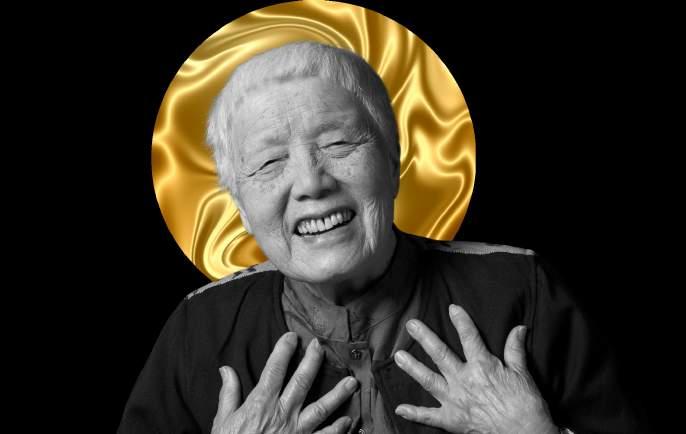
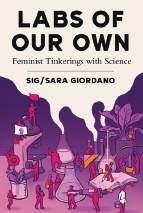
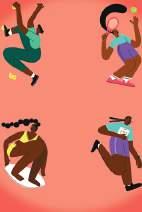
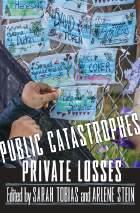
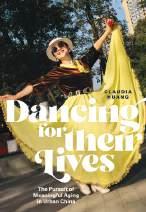
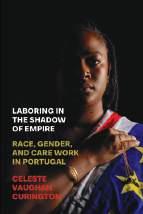
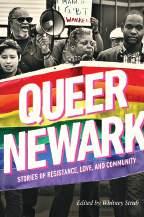

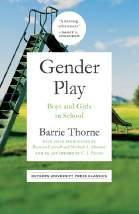
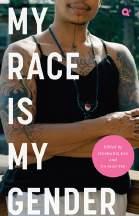

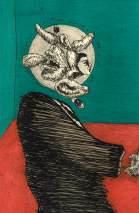
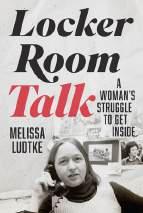
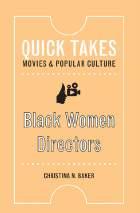
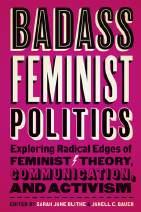
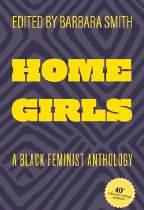
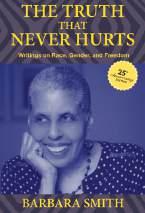





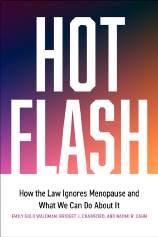
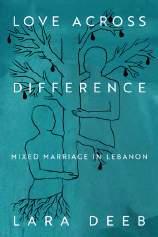
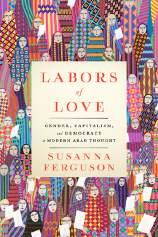
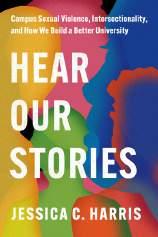
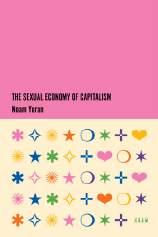
Hot Flash
How the Law Ignores Menopause and What We Can Do About It
Emily Gold Waldman, Bridget J.
Crawford, and Naomi R. Cahn
Love Across Difference
Mixed Marriage in Lebanon
Lara Deeb
Unmentionables
Textiles, Garment Work, and the Syrian American Working Class
Stacy D. Fahrenthold
Worlding the Middle East
Labors of Love
Gender, Capitalism, and Democracy in Modern Arab Thought
Susanna Ferguson
Reworking Citizenship
Race, Gender, and Kinship in South Africa
Brady G’Sell
Disorder and Diagnosis
Health and the Politics of Everyday Life in Modern Arabia
Laura Frances Goffman
Hear Our Stories
Campus Sexual Violence, Intersectionality, and How We Build a Better University
Jessica Harris
The Stigma Matrix
Gender, Globalization, and the Agency of Pakistan’s Frontline Women
Fauzia Husain
Globalization in Everyday Life
The Sexual Economy of Capitalism
Noam Yuran
Currencies: New Thinking for Financial Times
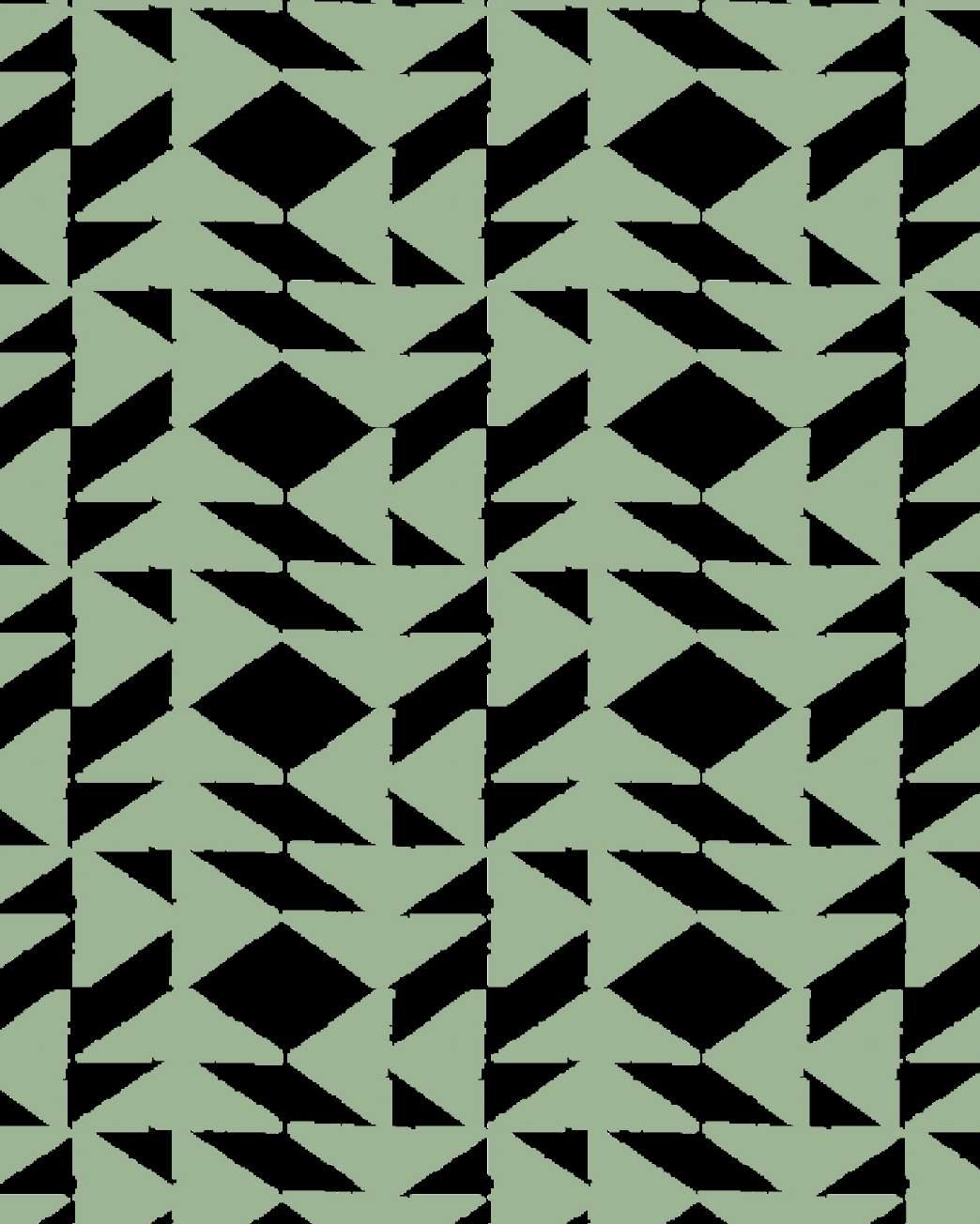
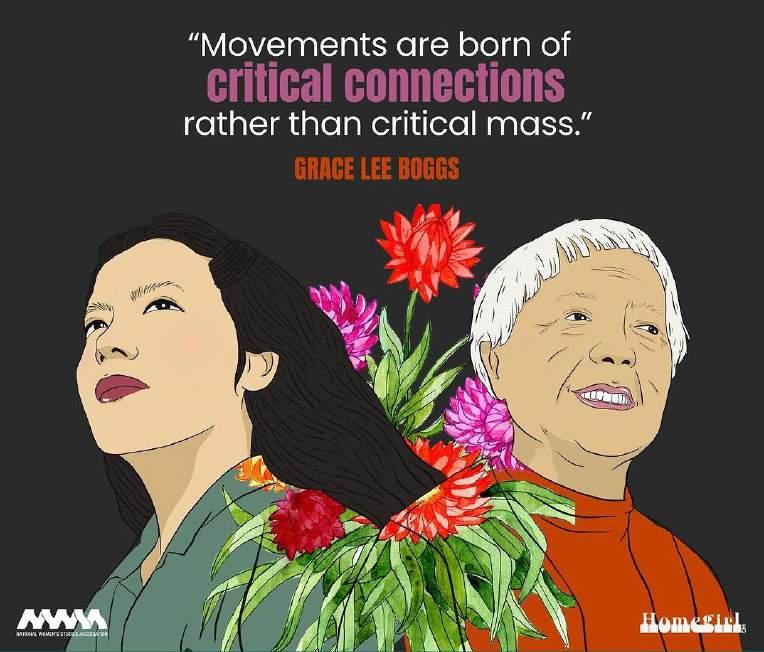
Homegirl HQ (previously known as The Homegirl Box) is a Black & women-owned shop and lifestyle brand. We design apparel, adornment and radical self-care at the intersection of what’s poppin’ and what’s possible. Homegirl is a verb. Homegirl means to show up. To tend. To nurture. To fight. and to envision new possibilities for each other and the world.
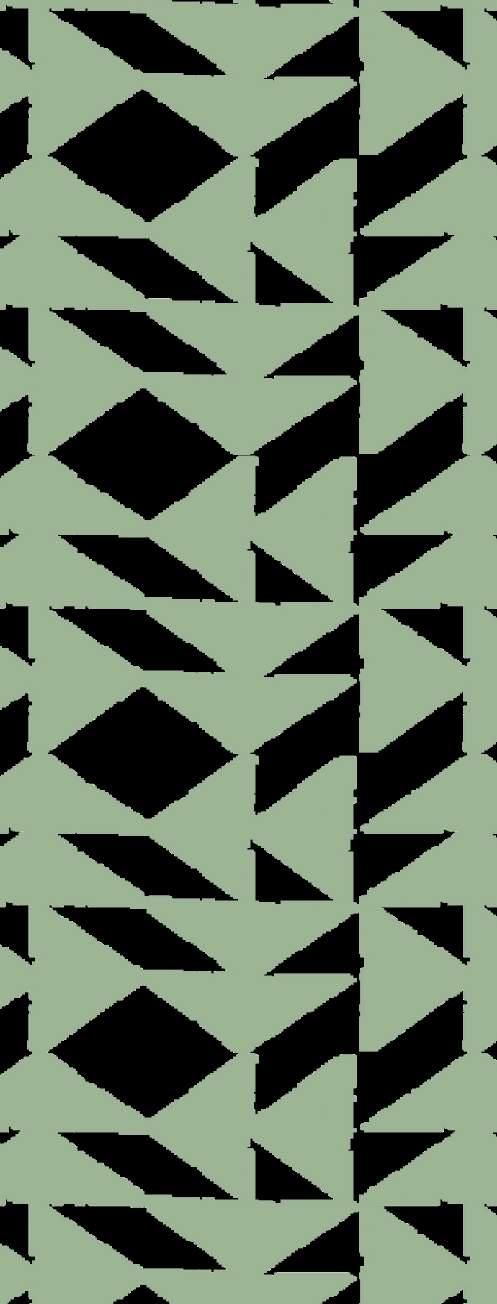
Authors Meet Critics (AMC) sessions are designed to bring authors of recent, cutting-edge books, deemed to be important contributions to the field of women’s, gender, and sexuality studies (WGSS), together with discussants chosen to provide a variety of viewpoints that amplify all that these works offer in collaborative conversations.
Friday, November 15th 11:00 AM - 12:15 PM | 330B
In the mid-1960s, as the politics of Black self-determination gained steam, Black activists had a new message for white activists: Go into your own communities and organize white people against racism. While much of the media at the time and many historians since have regarded this directive as a “white purge” from the Black freedom movement, Say Burgin argues that it heralded a new strategy, racially parallel organizing, which people experimented with all over the country. Organizing Your Own shows that the Black freedom movement never experienced a “white purge,” and it offers a new way of understanding Black Power’s relationship to white America.
AUTHOR:
Say Burgin, Dickinson College
CRITICS:
Ashley Farmer, University of Texas
Robyn Spencer-Antoine, Lehman College, CUNY Grad Center
Becky Thompson, Simmons University


Friday, November 15th 3:30 PM - 4:45 PM | 330B
In Crip Spacetime, Margaret Price intervenes in the competitive, productivity-focused realm of academia by sharing the everyday experiences of disabled academics. Drawing on more than three hundred interviews and survey responses, Price demonstrates that individual accommodations—the primary way universities address accessibility—actually impede access rather than enhance it. She argues that the pains and injustices encountered by academia’s disabled workers result in their living and working in realities different from nondisabled colleagues: a unique experience of space, time, and being that Price theorizes as “crip spacetime.” She explores how disability factors into the exclusionary practices found in universities, with multiply marginalized academics facing the greatest harms. Highlighting the knowledge that disabled academics already possess about how to achieve sustainable forms of access, Price boldly calls for the university to move away from individualized models of accommodation and toward a new system of collective accountability and care.
AUTHOR: Margaret Price, Ohio State University
CRITICS:
S. Cavar, University of California, Davis
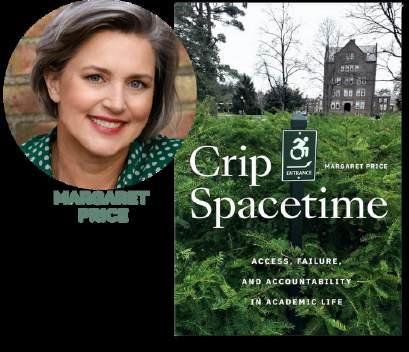
Janaka Lewis, University of North Carolina, Charlotte
Akemi Nishida, University of Illinois Chicago
Andrea Riley Mukavetz, City of Grand Rapids

Saturday, November 16th 3:30 PM - 4:45 PM | 330B
A bold, innovative biography that offers a new understanding of the life, work, and enduring impact of Audre Lorde. We remember Audre Lorde as an iconic writer, a quotable teacher whose words and face grace T-shirts, nonprofit annual reports, and campus diversity-center walls. But even those who are inspired by Lorde’s teachings on “the creative power of difference” may be missing something fundamental about her life and work, and what they can mean for us today. In Survival Is a Promise, Alexis Pauline Gumbs, the first researcher to explore the full depths of Lorde’s manuscript archives, illuminates the eternal life of Lorde. Her life and work become more than a sound bite; they become a cosmic force, teaching us the grand contingency of life together on earth.
AUTHOR:
Alexis Pauline Gumbs, Independent Scholar and Writer
CRITICS:
Aishah Simmons, Independent Writer and Filmmaker
Alexis De Veaux, University at Buffalo, State University of New York (Emerita)
Janell Hobson, University at Albany, StateUniversity of New York
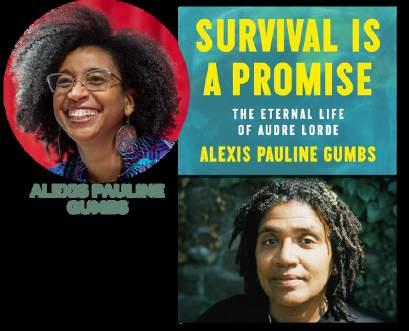

Saturday, November 16th 5:00 PM - 6:15 PM | 330B
From Asia to Africa to the Middle East, #MeToo has inspired local movements and hashtag trends like #AnaKaman and transnational collective hashtags like #MosqueMeToo. Yet, most Western scholarly and popular treatment of the movement assumes it is a primarily Western phenomenon. To attend to the revolutionary international impact of #MeToo, Iqra Shagufta Cheema brings together contributions from scholars and scholar activists that look at specific iterations of the #MeToo movement across multiple communities, cultures, and countries in the Global South. Going beyond gender, this comprehensive study focuses on the intersectional assemblage of ethnicity, religion, race, class, and politics that informs #MeToo and its place in local and transnational feminisms. By doing so, The Other #MeToos highlights the adaptation, translation, and impact of #MeToo in non-Western, postcolonial, minoritized, and othered locales to explore its wider scope and possibilities.
AUTHOR:
Iqra Shagufta Cheema, Graceland University
CRITICS:
Treva B. Lindsey, The Ohio State University
Sabah Uddin, Bowie State University
Afia S. Zia, Independent Scholar


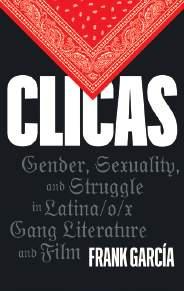
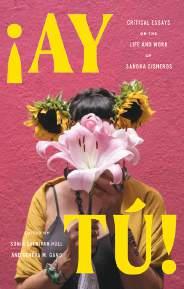
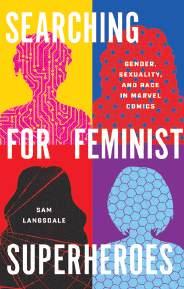

New in Gender & Sexuality Studies from the university of texas press
www.utexaspress.com | @utexaspress
Clicas
Gender, Sexuality, and Struggle in Latina/o/x Gang Literature and Film
BY FRANK GARCÍA
$34.95 paperback
¡Ay Tú!
Critical Essays on the Life and Work of Sandra Cisneros
EDITED BY SONIA SALDÍVARHULL & GENEVA M. GANO
$34.95 paperback
Brazil’s Sex Wars
The Aesthetics of Queer Activism in São Paulo
BY JOSEPH JAY SOSA
$34.95 paperback
The Taste of Nostalgia
Women, Race, and Culinary Longing in Peru
BY AMY COX HALL
$34.95 paperback
Emergent Quilombos
Black Life and Hip-Hop in Brazil
BY BRYCE HENSON
$29.95 paperback
Conditionally Accepted Navigating Higher Education from the Margins
EDITED BY ERIC JOY DENISE & BERTIN M. LOUIS JR.
$34.95 paperback
Searching for Feminist Superheroes
Gender, Sexuality, and Race in Marvel Comics
BY SAM LANGSDALE
$45.00 hardcover
Why Sinéad O’Connor Matters
BY ALLYSON MCCABE
$19.95 new in paperback
coming soon
It’s All in the Delivery Pregnancy in American Film and Television Comedy
BY VICTORIA STURTEVANT
$34.95 paperback
Ida Lupino, Forgotten Auteur From Film Noir to the Director’s Chair BY ALEXANDRA SEROS
$45.00 hardcover
¡Somos Tejanas!
Chicana Identity and Culture in Texas
EDITED BY JODY A. MARÍN & NORMA E. CANTÚ
$39.95 paperback
Revolting Indolence
The Politics of Slacking, Lounging, and Daydreaming in Queer and Trans Latinx Culture
BY MARCOS GONSALEZ
$34.95 paperback
30% off and free domestic shipping with code UTXNWSA online. Offer valid through December 31, 2024.

Our 44th Annual Conference introduces a new General Conference session - In Praxis Workshops - which highlights new and dynamic scholarship that offers our field an exciting invitation – how do these new texts shift, expand, challenge, and call into question the confines of Women’s, Gender, and Sexuality studies (WGSS)? We hope to amplify how this selection of work inspires curiosity in addressing “how might we” questions regarding our fields/ disciplines and inform actionable change in and outside of academia. Each session will feature rich discussion centered on each piece of scholarship with a focus on how we transpose these questions into praxis; authors and attendees are invited to explore how to process, teach, and adapt each text in their respective professional and personal engagement of feminist work.
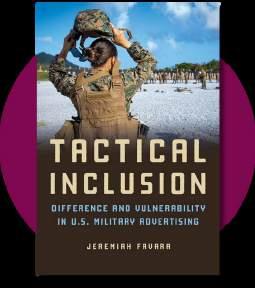
Friday, November 15th 11:00 AM - 12:15 PM | 142A
The United States military is one of the most diverse American institutions and recruitment advertising has been one of the most successful and innovative sites for reaching Black Americans, people of color, and women. Tactical Inclusion explores how the military, with its links to violence and imperialism, deployed a set of strategies to portray itself as an inclusive institution. Drawing on Black feminism, critical race theory, and queer of color critique, this book argues that tactical inclusion is the primary mode through which the military and advertisers have reconciled tensions between violence and inclusion, rendering those tensions productive in creating politically and socially legitimate meanings of military service while expanding the pool of potential recruits. Tracing various articulations of tactical inclusion in recruitment advertising reveals how forces of militarism and inclusion bolster one another, rendering new subjects as vulnerable to, valuable to, and subject to state violence.
facilitator:
Jeremiah Favara, Gonzaga University
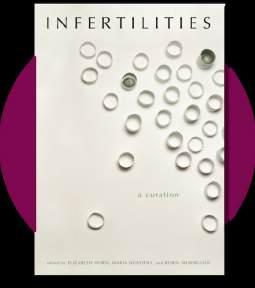
Infertilities, A Curation: Visual art and writing on reproductive loss in the post-Roe era
Friday, November 15th 2:00 PM - 3:15 PM | 250B
Through personal narrative, poetry, and visual art, Infertilities, A Curation highlights the diversity of the infertility experience. With more than sixty international contributors, the book provides perspectives from women, men, and nonbinary and transgender individuals, as well as heterosexual couples, single parents by choice, and lesbian and queer-identified couples. This collection intentionally makes visible the emotional depths of infertility. From diagnosis and treatment, adoption, or living childfree, to miscarriage and pregnancy loss, editors, writers, and artists explore the range of experiences with infertility and their psychological, physical, and emotional impacts in all aspects of life. This carefully curated anthology reveals that infertility cannot be reduced to a singular narrative; instead, it is an assemblage of multiple embodied moments. Infertilities, A Curation invites readers to consider how creative practices such as art and writing can aid in efforts to heal individual traumas and more broadly as means of advocacy.
facilitator:
Robin Silbergleid, Michigan State University
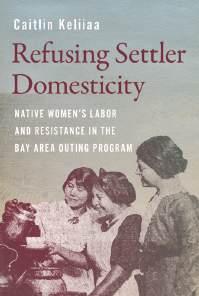
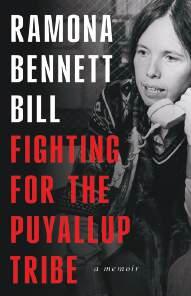
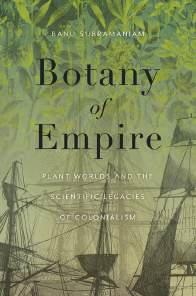
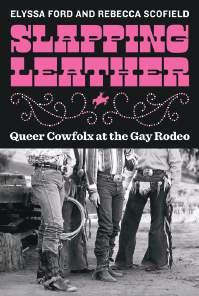
Refusing Settler Domesticity
Native Women’s Labor and Resistance in the Bay Area Outing Program
c aitlin Keliiaa
$30.00 pb
Waves of Belonging
Indigeneity, Race, and Gender in the Surfing Lineup
e dited b y lydia h e b erling, d avid Kam p er, and Jess p onting
$30.00 pb
Caring for Caregivers
Filipina Migrant Workers and Community Building during Crisis
v alerie Fran c is c o-
m en ch avez
$30.00 pb
Good Wife, Wise Mother
Educating Han Taiwanese Girls under Japanese Rule
Fang y u h u
$35.00 pb
Fighting for the Puyallup Tribe
A Memoir
r amona b ennett b ill
$29.95 hc
From Forest Farm to Sawmill
Stories of Labor, Gender, and the Chinese State
s h uxuan z h ou
$35.00 pb
Oregon’s Others
Gender, Civil Liberties, and the Surveillance State in the Early Twentieth Century
Kim b erly Jensen
$30.00 pb
Making
Contemporary Middle Eastern Diasporic Art
a ndrew g ayed
$35.00 pb
Queer Data Studies
e dited b y patri c K Keilty
$30.00 pb
Botany of Empire Plant Worlds and the Scientific Legacies of Colonialism
b anu s u b ramaniam
$30.00 pb
Hacking the Underground Disability, Infrastructure, and London’s Public Transport System
r aquel v el h o
$30.00 pb
Wide-Open Desert
A Queer History of New Mexico
Jordan b iro w alters
$30.00 pb
Dancer Dawkins and the California Kid
w illyc e Kim
$19.95 pb
Feminista Frequencies
Community Building through Radio in the Yakima Valley
m oni c a d e l a torre
$27.95 pb
Slapping Leather
Queer Cowfolx at the Gay Rodeo
e lyssa Ford and
r e b e cc a s c o F ield
$29.95 pb
Art, Activism, and Sexual Violence
e dited b y s ally l . Kitch and d awn r g il p in
$35.00 pb
Dancing Transnational Feminisms
Ananya Dance Theatre and the Art of Social Justice
e dited b y a nanya
c h atter J ea, h ui n iu
w ilc ox, and a lessandra
l e b ea w illiams
$30.00 pb
Modified Bodies, Material Selves
Beauty Ideals in Post-Reform Shanghai
Julie e s tarr
$35.00 pb
Friday, November 15th 2:00 PM - 3:15 PM | 251A
In Buy Black, Dr. Aria Halliday considers the stakes of Black women’s creativity and consumer habits in the 20th and 21st century. From the 1960s to today, using archival research, sociological methods, interviewing, and cultural analysis, Halliday situates popular representations of Black women and girls within a larger cultural landscape of consumerism, radicalism, and Black notions of sexuality and respectability. All of these ideas are paramount to recent directions in gender, women’s, and sexuality studies and encourages us to rethink how, when, and why we choose to “buy black” or protest specific representations of blackness, femininity, sexuality, and consumption. Critics will discuss her work and more importantly her questions: why do Black women participate in markets that are known to discredit and dismiss us? How do we use Black history and cultural knowledge to understand Black women’s continued allegiances to and protests of US popular culture?
Aria Halliday, University of Kentucky
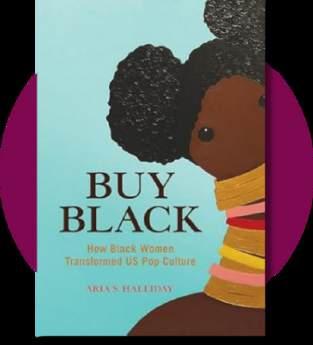


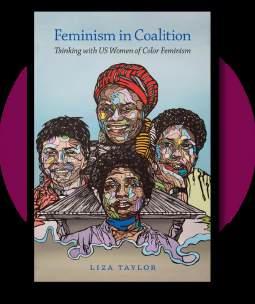
Friday, November 15th 5:00 PM - 6:15 PM | 251B
Here we are, in the twenty-first century’s third decade, experiencing reiterations of limited identity politics, restrictive culture wars, and other issues brilliantly addressed by twentieth-century Women of Colors feminisms. All too often, WOC feminisms’ alternative approaches to identity, diverse strategies for coalition-building, and relational ethics have been under-explored and rarely implemented by contemporary social-justice actors. Motivated by the belief that we (still!) have much to learn from twentieth-century WOC feminisms, this Author Meets Critics centers two cutting-edge books which investigate the theories and praxes of early US Women of Color coalitional feminists such as Gloria Anzaldúa, Maria Lugones, Bernice Johnson Reagon, and Barbara Smith, among many others. These texts, in unique ways, offer vital contributions (and reminders) to ongoing discussions within contemporary feminist studies around continued collective struggle, resistance, resilience, and transformation–especially in the form of coalition, and the role of knowledge production and recuperative scholarship in this process.
Liza Taylor, California State Polytechnic
University, Pomona
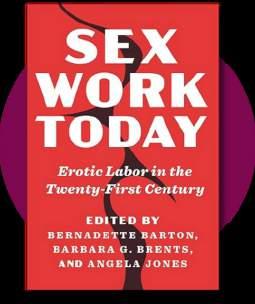
Saturday, November 16th 2:00 PM - 3:15 PM | 250B
Featuring thirty-one original essays by sex workers, advocates, researchers, and activists, Sex Work Today is the first compilation of research on new forms of digital sex such as camming, sugar dating, and AI sex dolls. Providing a lens to understand contemporary labor dynamics and the nature of sex work itself, this collection captures formerly ignored aspects of the sex industry including: fatphobia and disability; transmasculine and nonbinary sex workers; racialized emotional labor in the digital sex industry; high job satisfaction among professional dominatrixes; and sex worker scholars.
With federal policies ostensibly aimed at combating sex trafficking–affecting all sex workers–understanding this industry is more vital than ever. Decentering Western, white, cisgender voices, Sex Work Today underscores the global repercussions of these misaligned policies, which make sex work more challenging and less safe, and provides valuable insights for those seeking to shape policies, and challenge prejudices.
facilitator:
Bernadette Barton, Morehead State University
Saturday, November 16th 2:00 PM - 3:15 PM | 258
Writing scholarly books is stressful, and academic publishing can be intimidating—especially for women, queer folks, and scholars of color. Black Feminist Writing shows scholars how to prioritize their mental health while completing a book in race and gender studies. Drawing on Black women’s writing traditions, as well as her own experience as the author and editor of nine university press books, Stephanie Y. Evans gives scholars tools to sustain the important work of academic writing, particularly in fields routinely under attack by anti-democratic forces. Evans identifies five major areas of stress: personal, professional, publishing-related, public, and political. Each chapter includes targeted discussion questions and tasks to help authors identify their unique stressors, create priorities, get organized, and breathe. Whether working on your first scholarly book or your tenth, this robust, heartfelt guide will help you approach writing as an ongoing practice of learning, creating, and teaching in ways that center wellness and collective self-care.
Stephanie Y. Evans, Georgia State University
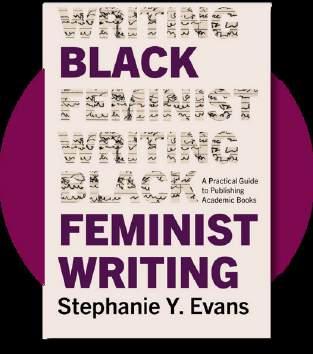

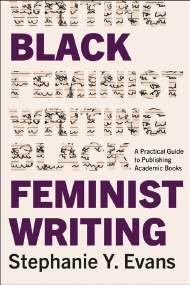

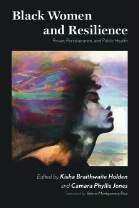
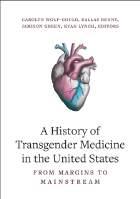
Join us at our booth a Book Signing with Stephanie Evans!
Saturday, November 16th from 3:30 to 4:30 pm
Black Feminist Writing A Practical Guide to Publishing Academic Books
StephanieY. Evans
Draws on the rich history of Black feminist writing to help scholars manage the stress of writing and publishing academic books.
“Revolution in Poetic Language” Fifty Years Later
New Directions in Kristeva Studies
Emilia Angelova, editor
Reframing Diversity and Inclusive Leadership
Race, Gender, and Institutional Change
Seth N. Asumah & Mechthild Nagel
Jewcy
Jewish Queer Lesbian Feminisms for the Twenty-First Century
Marla Brettschneider, editor
New iN paperback
Italian Trans Geographies
Danila Cannamela, Marzia Mauriello, and Summer Minerva, editors
Snapping Beans
Voices of a Black Queer
Lesbian South
Jayme N. Canty
Political Bodies
Writings on Adriana
Cavarero’s Political Thought
Paula Landerreche Cardillo & Rachel Silverbloom, editors
From Eternity to Eternity Memoirs of a Korean Buddhist Nun
Bulpil Sunim
Translated and with an Introducution by Eunsu Cho
With Soojin Oh
A Thousand Worries
Black Women Mothering Autistic Sons
Jeannine E. Dingus-Eason
Sounding Bodies
Acoustical Science and Musical Erotics in Victorian Literature
Shannon Draucker
Black Women and Resilience
Power, Perseverance, and Public Health
Kisha Braithwaite Holden & Camara Phyllis Jones, editors Foreword by Valerie Montgomery Rice
New iN paperback
Reclaiming Time
The Transformative Politics of Feminist Temporalities
Tanya Ann Kennedy
ForthcomiNg JaNuary 2025
Disrupting Political Science
Black Women Reimagining the Discipline
Angela K. Lewis-Maddox, editor
From Blues to Beyoncé
A Century of Black Women’s
Generational Sonic Rhetorics
Alexis McGee
Freud and the Problem of Sexuality
Bradley Ramos
Going Along with Trans, Queer, and Non-Binary Youth
Sam Stiegler
Masculine Pregnancies
Modernist Conceptions of Creativity and Legitimacy, 1918–1939
Aimee Armande Wilson
The Chosen We
Black Women’s Empowerment in Higher Education
Rachelle Winkle-Wagner
Foreword by Diana Slaughter Kotzin
ForthcomiNg JaNuary 2025
A History of Transgender Medicine in the United States
From Margins to Mainstream
Carolyn Wolf-Gould, Dallas Denny, Jamison Green, and Kyan Lynch, editors
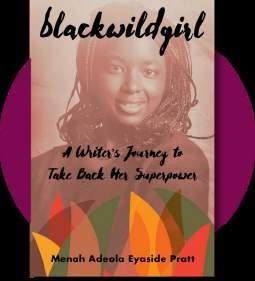
Saturday, November 16th
2:00 PM - 3:15 PM | 251B
Blackwildgirl: A Writer’s Journey to Take Back Her Superpower will provide the foundation for a discussion about Black women’s writings, rooted in autoethnography, autobiography, wild womanist framework, black feminist thought, black girlhood, crunk feminism, and womanism. Interrogating the concept of a Black Womanist Theomethaxis, incorporating theory, method, and praxis, this session will focus on using the book as a case study to explore key themes in the journey from Black girlhood to Black womanhood. Centering the discussion on the conference theme of the journey and not the arrival, this session is an opportunity for attendees to reflect on the ways in which the world has tried to silence women, but we have nevertheless persisted, finding our “voice” and “words,” and taking up space in rooms with our ideas and power. This session invites every woman to find, claim, and use her superpower in the world.
facilitator:
Menah Pratt, Virginia Tech

Saturday, November 16th 5:00 PM - 6:15 PM | 142C
Mean girl feminism encourages girls and women to be sassy, sarcastic, and ironic as feminist performance. Yet it coopts its affect, form, and content from racialized oppression and protest while directing meanness toward people in marginalized groups. Kim Hong Nguyen examines four types of white mean girl feminism prominent in North American popular culture: the bitch, the mean girl, the power couple, and the global mother. White feminists mime the anger, disempowerment, and resistance felt by people of color and other marginalized groups. Their performance allows them to pursue and to claim a special place within established power structures, present as intellectually superior, advance their girl squads and their partners as part of a politics of solidarity and community, and position themselves as better, more enlightened masters than men.
facilitator:
Kim Hong Nguyen, University of Waterloo


Source Booksellers is a Black-owned independent bookstore with 35 years of community building and support in Midtown Detroit. Janet Webster Jones is the founder of this unique niche of non-fiction literature and resources. Source Booksellers’s emphasis on history, culture, arts, metaphysics, spirituality and wellness reflects the community where it sits. Webster Jones’s work embodies the idea that “bookstores are a community-based operation” since opening Source Booksellers’ first location in 2002. Janet Webster Jones and her daughter, Alyson Jones Turner, strive to encourage their patrons to delve into the literacy of the world by serving the needs of the community they belong to in Detroit, Michigan USA.
4240 Cass Ave, #105 Detroit, MI, 48201

Saturday, November 16, 2024
3:00 PM - 5:00 PM
Grand Riverview Ballroom
Pre-Function Area, Level 2
Sponsored by NWSA MA and PhD member institutions, representatives from programs will provide information about their program. Perspective students can learn about programs; alumni and faculty can reconnect.
Participating Programs Include:
Arizona State University
Emory University
The University of Texas at Austin
Indiana University
Southern Connecticut State University
The Graduate Center CUNY
The Ohio State University
University at Buffalo
University of California Los Angeles
University of Florida
University of Kansas
University of Kentucky
University of Michigan
University of North Texas
University of Washington
Penn State University & more!
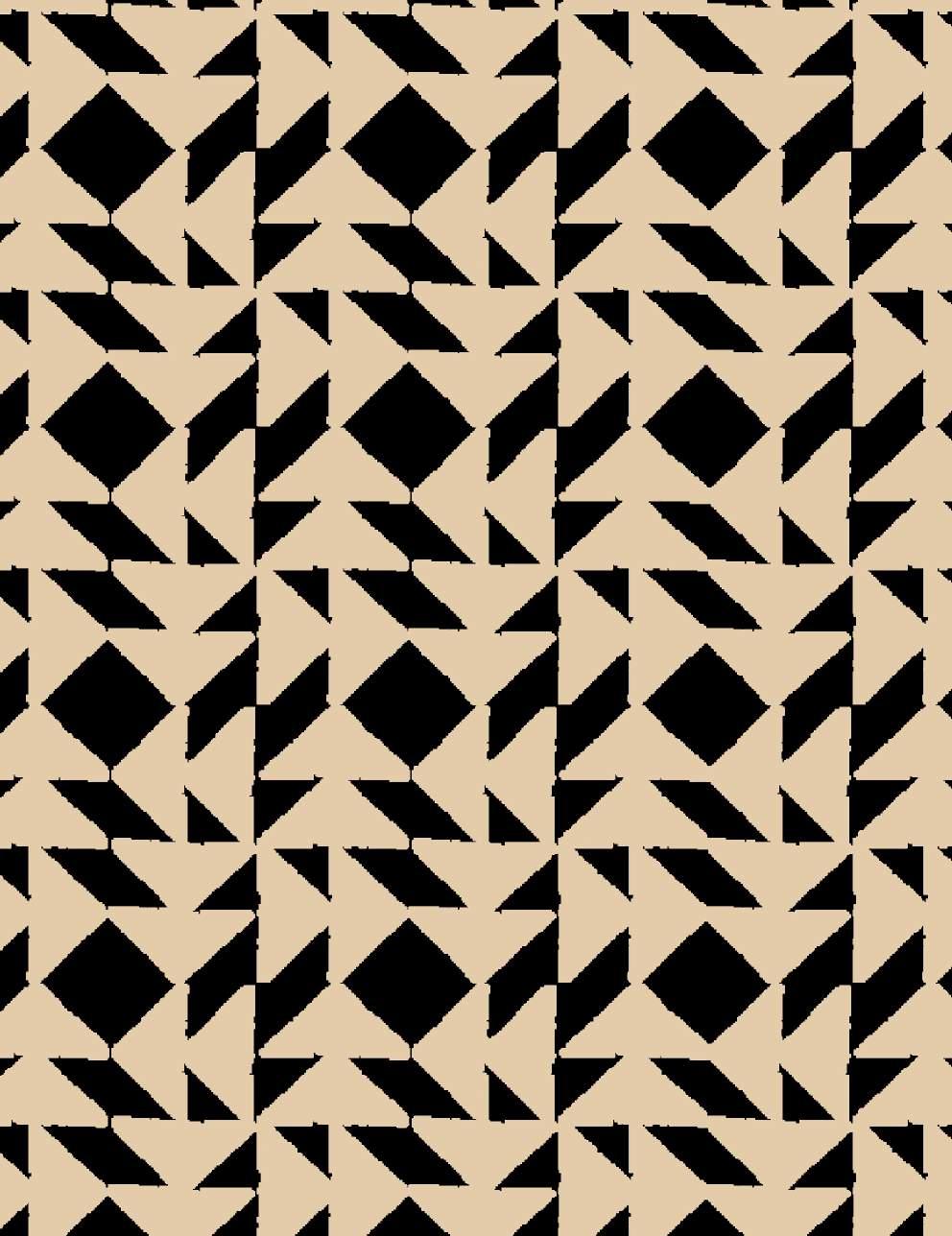
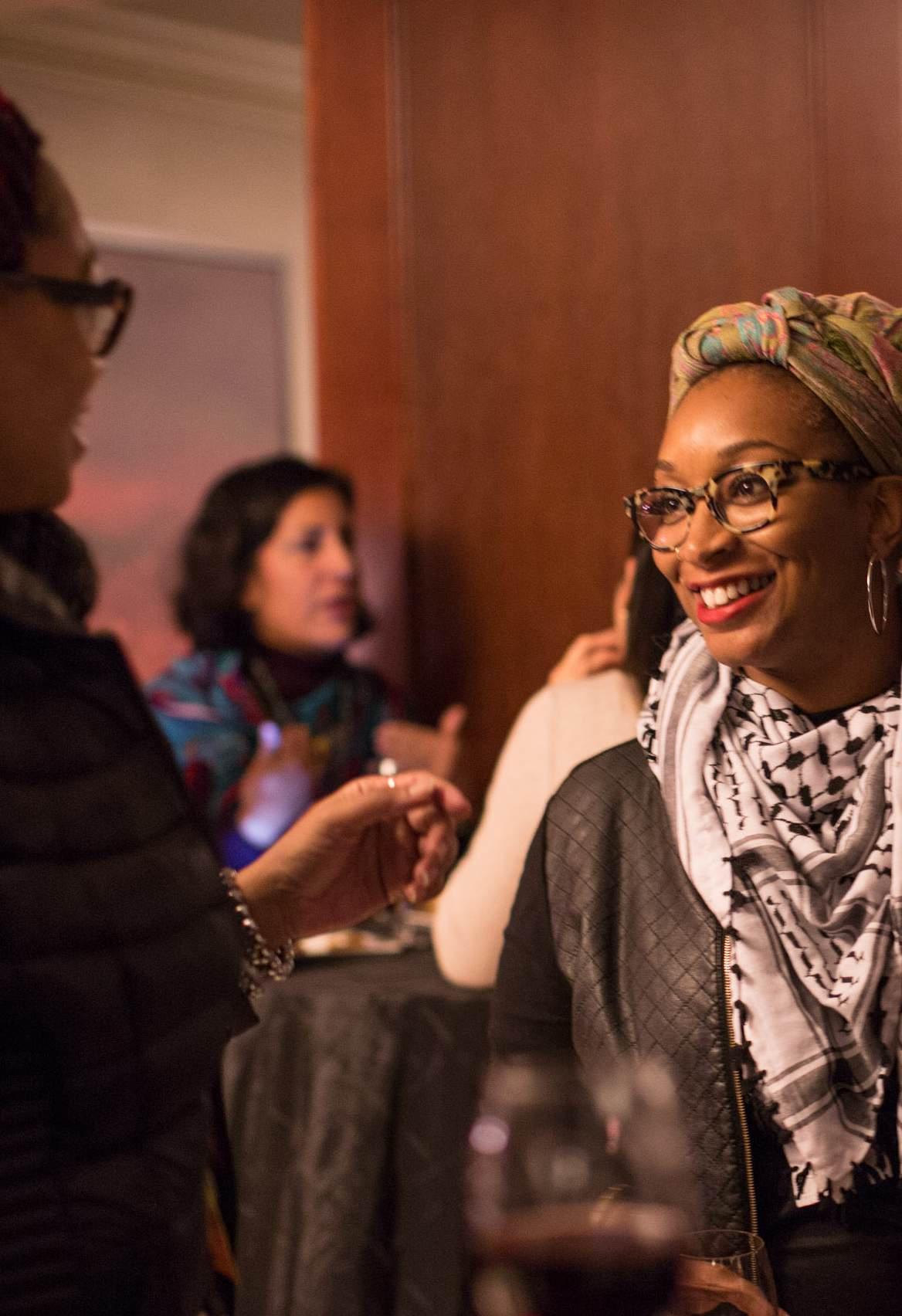
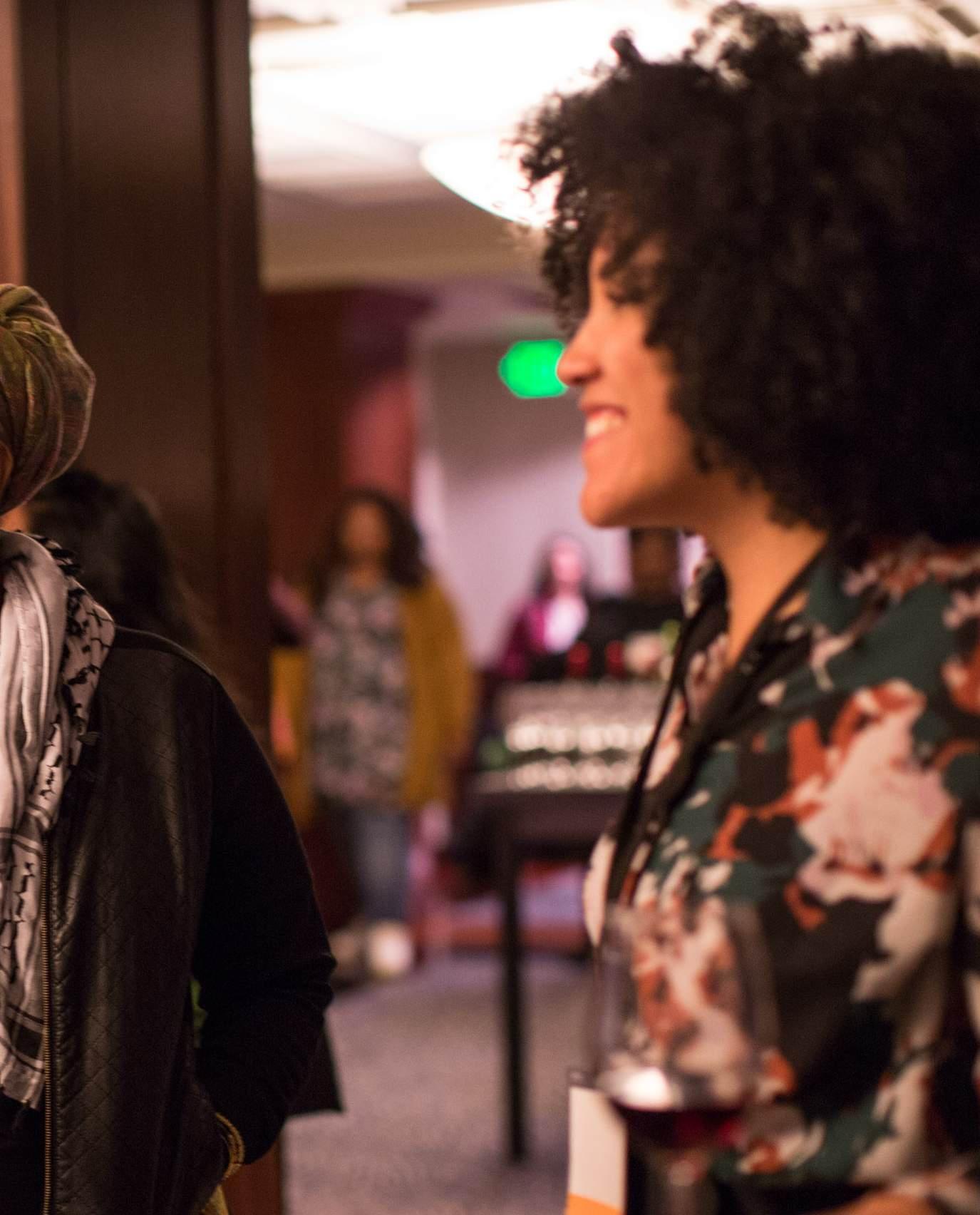
Thursday, November 14th
9:00 PM - 10:30 PM
Grand Riverview Ballroom, 2nd Floor and Atrium, 1st Floor
Following our opening Presidential Address and Plenary discussion, members are invited to celebrate the recipients of our 2024 Book Prizes and Awards and connect during our opening reception. Each year, the Association works with a cadre of volunteer committee members, to recognize and honor outstanding scholarship and leadership within the field of women’s, gender, and sexuality studies! Attendees are welcome to enjoy refreshments, music, and network at our opening reception, sponsored by the James and Grace Lee Boggs Foundation.
Friday, November 15th
7:30 AM - 8:30 AM
Grand Riverview Ballroom
Pre-Function Area, 2nd Floor
Facilitator: Becky Thompson
In the grand tradition of yoga at NWSA, come to this gentle vinyasa flow class for relaxation and rejuvenation. With a sound track that promises to enliven you, this session is a chance to stretch and breathe easy together. Everyone is welcome. No previous experience is needed. All shapes and sizes. No fancy clothing needed. Come as you are. Participants are encouraged to bring their own yoga mats.
Friday, November 15th
8:00 AM - 9:15 AM
Portside Ballroom, 2nd Floor
Facilitators: Kristina Gupta, Member at Large and Member Liaison & Kristian Contreras, Executive Director
Following our Constituency Group Elections earlier this fall, newly elected and returning Constituency Group Leaders are invited to attend this special breakout session over breakfast. Our Member Liaison, Kristina Gupta and Executive Director, Kristian Contreras will introduce new and revamped resources to assist in the strengthening of how NWSA builds, maintains, and expands community through our Constituency Groups. This session is by invitation only for elected Co/Chairs and allows space for questions on governance, operations, and how the Association can better support Constituency Groups as well as their (co)chairs.
Friday, November 15th
3:30 PM - 5:00 PM
Grand Riverview Ballroom
Pre-Function Area, 2nd Floor
Our Annual Conference program invites poster sessions that engage elements of our conference theme, The Journey Not Only the Arrival, Critical Connections, Not Only Critical Mass: (Re) Thinking Feminist Movements, and our subthemes in meaningful ways. Poster Sessions allow scholars of all entry points - emerging scholars, junior professoriate, and seasoned educators alike - to share their work in visual and dynamic mediums.
Friday, November 15th
3:30 PM - 4:45 PM | 142B
Facilitators: Scott Kurashige, President and Literary Executor, James and Grace Lee Boggs Foundation
This intergenerational roundtable highlights the enduring influence of Grace Lee Boggs’ and Angela Y. Davis’s revolutionary praxis. First, cooperatives and community land trusts have served as means to build on the Black radical tradition to “free the land” from white supremacist commodification and dispossession. Second, abolitionist organizing has provided models for the practice of self-determination and freedom in response to mass incarceration and the devastation of urban communities. Third, we will discuss how students have responded to a class centered on Boggs and Davis and how they have applied their theories of social change.
Finally, organizing to transcend racist violence and imperialist militarism foregrounds the imperative of cross-racial and transnational solidarity in the work of revolutionary movement building. We will particularly address how organizing work stressing Black/Asian solidarity and US-Asia solidarity expands the historical, political, and geographical imagination, as inspired by past and contemporary



Friday, November 15th
9:00 PM - 11:00 PM
Portside Ballroom, 2nd Floor
The NWSA is excited - literally doing metaphorical backflips and shoulder shimmies - to partner with Slay Events & Entertainment, a local woman-owned business that uplifts the Detroit community through a combination of creating safe spaces and philanthropy. We’re hosting an event that melds music, dance, freedom of expression, and joy during our 44th Annual Conference. Our very first drag show will feature local QTBIPOC performers and a DJ to turn this show into a dance party following the show. By purchasing a ticket, attendees will be raising funds for local drag artists and the movement for a Free Palestine as the Association will be donating proceeds to the Freedom Flotilla Coalition.
Saturday, November 16th
7:30 AM - 8:30 AM
Grand Riverview Ballroom
Pre-Function Area, 2nd Floor
Facilitator: Becky Thompson
In the grand tradition of yoga at NWSA, come to this gentle vinyasa flow class for relaxation and rejuvenation. With a sound track that promises to enliven you, this session is a chance to stretch and breathe easy together. Everyone is welcome. No previous experience is needed. All shapes and sizes. No fancy clothing needed. Come as you are.
Membership Assembly
Saturday, November 16th
9:30 AM - 10:45 AM
Grand Riverview Ballroom B, 2nd Floor
The Association hosts a Membership Assembly each year at the Annual Conference to:
• Receive an annual report of the status of NWSA
• Receive reports from committees and constituent groups as appropriate
• Deliberate upon recommendations for fostering the mission of NWSA, and
• Consider such other business as may properly come before the membership
The Membership Assembly is a vital practice of transparent communication and accountability with members of the Association; we encourage you to review our Association Bylaws’s outlining of the Membership Assembly.
Saturday, November 16th
2:00 PM - 3:15 PM | 251C
Facilitator: Nanda Dyssou, Coriolis Company
This presentation will serve as an introductory media training session for writers who wish to prepare for interviews with popular media outlets, from print and digital publications, to podcasts and radio, to YouTube and TV. Nanda Dyssou, Founder and Lead Publicist of LA-based Coriolis Company, will offer case studies and invaluable insights on strategies she’s used to effectively promote books and author brands through the media. The session is geared towards writers of all backgrounds, with a special focus on BIPOC, LGBTQ+, and otherwise marginalized voices, who want to master the art of media engagement and boost their public profiles. Harness your story’s potential to inspire and connect with the world.
Saturday, November 16th
3:30 PM - 4:45 PM | 140E
Facilitator: Scott Kurashige, President and Literary Executor, James and Grace Lee Boggs Foundation
Learn more about the {r}evolutionary history and politics of James and Grace Lee Boggs and plans in motion to preserve their historic home as a museum. Come to discuss how you can support this campaign and other vital movement building projects impacting Detroit, the United States, and the world. This session will be an interactive conversation with leaders of the James and Grace Lee Boggs Foundation, a nonprofit organization established based on directives in the will of Grace Lee Boggs.
Saturday, November 16th
3:00 PM - 5:00 PM
Grand Riverview Ballroom Pre-Function Area, 2nd Floor
The NWSA invests in nurturing and facilitation connections with women’s, gender, and sexuality studies (WGSS) degree granting programs. Each year, we invite university programs and departments to participate at the Meet & Greet networking session, which is a signature component of our Annual Conference. We welcome any current and/ or prospective students to connect with our academic partners and explore the utility and reach of a degree (or certificate) in WGSS; please explore our digital conference program to view participating institutions!
Saturday, November 16th
5:30 PM - 6:30 PM
Grand Riverview Ballroom Pre-Function Area, 2nd Floor
A Reception hosted by The Feminist Press. Please join us for free coffee and refreshments!
Saturday, November 16th
5:00 PM - 6:15 PM | 250B

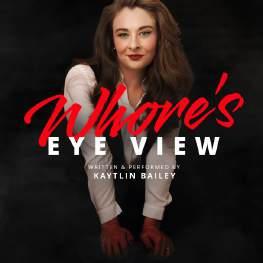
Saturday, November 16th
7:00 PM - 8:00 PM | 330A
We’re excited to partner with Old Pros, a non profit media organization creating conditions to change the status of sex workers in society, to include Whore’s Eye View in our 2024 conference program! This one-woman show is a mad dash through 10,000 years of history from a sex worker’s perspective. Equal parts history lecture, stand up comedy, and personal storytelling, Kaytlin Bailey masterfully unpacks the age-old stigma surrounding the oldest profession. Weaving history, comedic storytelling, and the wisdom of lived experience, Kaytlin invites attendees to destigmatize sex work and envision a society where sex workers are free to contribute their experience and wisdom to their communities. Whore’s Eye View threads together storytelling and our investment in culture change as we work to make feminist futures all the more real. Seating is first come first serve!
In today’s world, we all want to be unique. We want to take a stand against things that go against the grain to show our bosses that we are uniquely and wonderfully made. However, have you ever had to go against what you believe in to please someone else? Have you ever felt that pit in your stomach when you know you don’t believe that but you are scared or nervous that if you do the opposite, all hell could break loose? In this workshop you will learn how to stand for yourself and stand for others while shining bright.
Sunday, November 17th
7:30 AM - 8:30 AM
Grand Riverview Ballroom Area, 2nd Floor
Facilitator: Becky Thompson
In the grand tradition of yoga at NWSA, come to this gentle vinyasa flow class for relaxation and rejuvenation. With a sound track that promises to enliven you, this session is a chance to stretch and breathe easy together. Everyone is welcome. No previous experience is needed. All shapes and sizes. No fancy clothing needed. Come as you are.
Sunday, November 17th
10:00 AM - 11:15 AM | 140E
Facilitator: Heidi R. Lewis, Colorado College & 22nd Association President
Our new “Meet the President! Be the Next One?” series invites members to engage with our current 22nd NWSA President, Heidi R. Lewis, in an effort to educate the membership about the president’s roles and responsibilities. We invite our members to join President Lewis and our Executive Director, Kristian Contreras, in open conversation on Association leadership, the role and duties of the President, and Association initiatives.

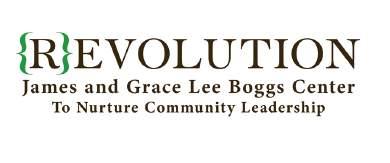
Sunday, November 17th
9:30 AM - 12:15 PM | 251 B
Facilitator: The James and Grace Lee Boggs Center to Nurture Community Leadership
Please join members of the James and Grace Lee Boggs Center to Nurture Community Leadership for a film screening of American Revolutionary: The Evolution of Grace Lee Boggs. This documentary film, directed by Grace Lee, is winner of the Audience Award and Best Documentary Feature at the 2013 Los Angeles Film Festival; the film plunges us into Boggs’s lifetime of vital thinking and action, traversing the major U.S. social movements of the last century; from labor to civil rights, to Black Power, feminism, the Asian American and environmental justice movements and beyond. Boggs’s constantly evolving strategy—her willingness to re-evaluate and change tactics in relation to the world shifting around her—drives the story forward. Angela Davis, Bill Moyers, Bill Ayers, Ruby Dee and Ossie Davis, Danny Glover, Boggs’s late husband James and a host of Detroit comrades across three generations help shape this uniquely American story. As she wrestles with a Detroit in ongoing transition, contradictions of violence and non-violence, Malcolm X and Martin Luther King, the 1967 rebellions, and non-linear notions of time and history, Boggs emerges with an approach that is radical in its simplicity and clarity: revolution is not an act of aggression or merely a protest. Revolution, Boggs says, is about something deeper within the human experience — the ability to transform oneself to transform the world.
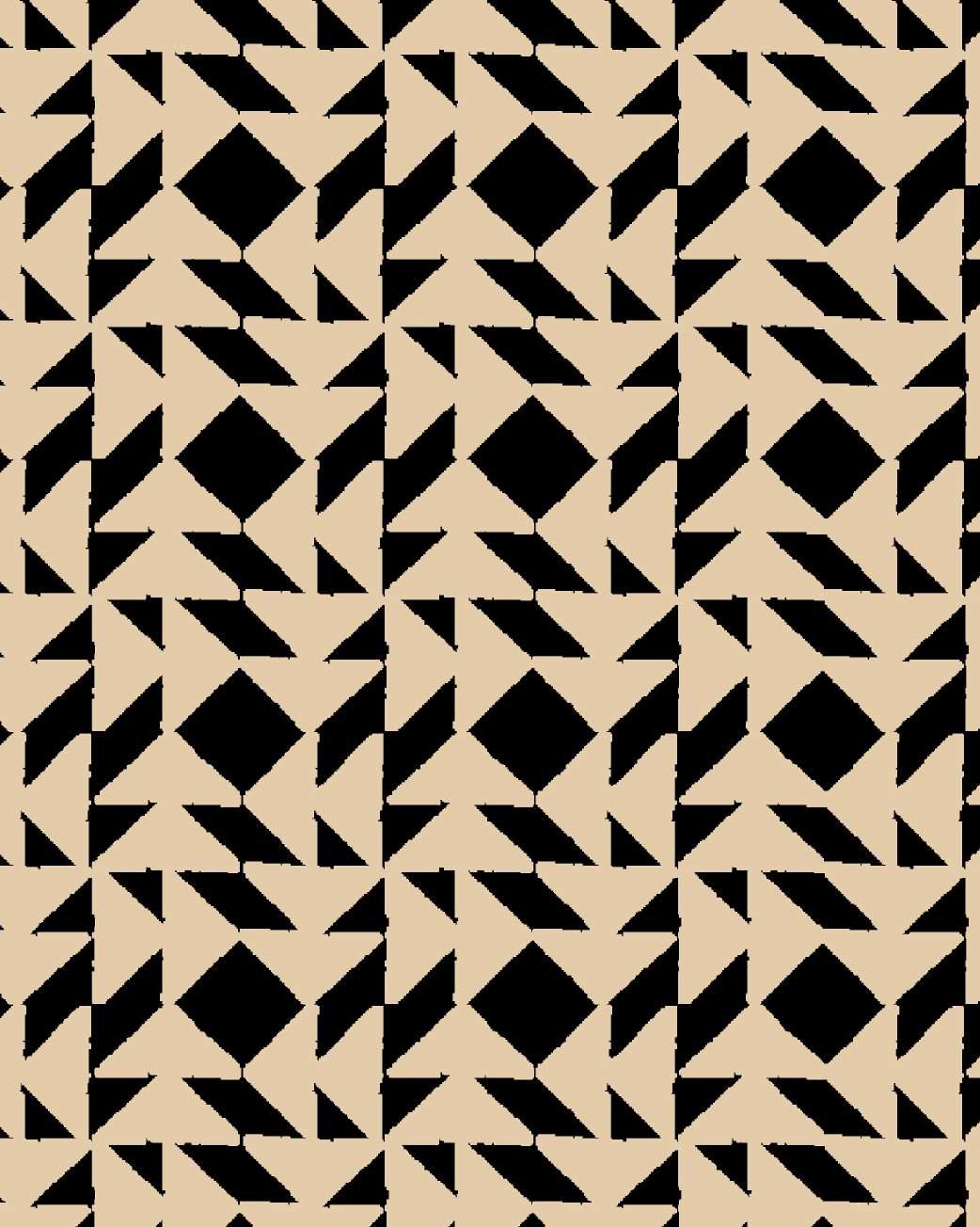
Each year, the National Women’s Studies Association (NWSA), in coordination with different NWSA caucuses and publications, offers multiple awards for current members of the Association. We know it is paramount to celebrate new, emerging, innovative, and thought-provoking work across our membership; as we celebrate these contributions to the expanding field of women’s, gender, and sexuality studies, we hope you engage in each recipient’s work in meaningful ways!
Feminist Formations and NWSA Paper Award
Bananas and (Wo)men: Communist Schoolteachers, Socialist Feminism, and the Making of Costa Rica’s First Communist Party, 1920-1940 by Jennifer Carcamo
Counter-Reproductive Memory: Chinese Young Women Against State Pronatalism by Jingxue Zhang
Gloria E. Anzaldúa Book Prize
We Pursue Our Magic: A Spiritual History of Black Feminism by Marina Magloire
Honorable Mention: Displacing Kinship: The Intimacies of Intergenerational Trauma in Vietnamese American Cultural Production by Linh Thy Nguyn
Alison Piepmeier Book Prize
Crip Spacetime: Access, Failure, and Accountability in Academic Life by Margaret Price
Sara A. Whaley Book Prize
The Weavers of Trautenau: Jewish Female Forced Labor in the Holocaust by Janine P. Holc
Honorable Mention: Pink Gold: Women, Shrimp, and Work in Mexico by María L. Cruz-Torres
NWSA/University of Illinois Press First Book Prize
Dissent Nearby: Diasporic Feminism & U.S. Imperialism by Jocelyn E. Marshall

Lesbian Caucus Award
Catherine Evans, Carnegie Mellon University
NWSA Women of Color Caucus
Frontiers Student Essay Award
Margarita Alely Nuñez Arroyo, The University of Kansas
NWSA Graduate Scholarship
Nehal Elmeligy University of Illinois at Urbana-Champaign
Trans/Gender Variant Caucus Award
Jersey Cosantino, Syracuse University
Coalition Builder Award
Celia Mejia, California State University, Long Beach
Feminist Change Agent Award
Danielle Lutman, University of Toledo
Mentorship Award
Lysa Salsbury, University of Idaho
Outstanding WGEC Program
Catharine S. Eberly Center for Women, University of Toledo
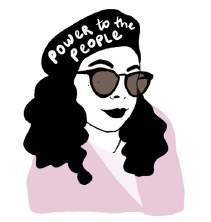
design & Layout:
Lorena Estrella LESTRELLA STUDIO lorenaestrella.com
Accessibility Committee
• Pamela Conley, Antioch University
• kashi zabaleta hinojosa, Stanford University
• Lydia Kelow-Bennett, University of Michigan
• Carey Jean Sojka, Southern Oregon University
Awards Committee | Alison Piepmeier Book Prize
• Elizabeth Bowen, SUNY Upstate Medical University
• Kristian Contreras, NWSA
• Alison Kafer, University of Texas, Austin
• Eunjung Kim, Syracuse University
• Heath Rakes, Oregon State University
Awards Committee | Gloria E. Anzaldúa Book Prize
• Kristian Contreras, NWSA
• Nicole M. Guidotti-Hernández, Northeastern University
• Rana Jaleel, University of California, Davis
• Jennifer Nash, Duke University
Awards Committee | NWSA/University of Illinois Press First Book Prize
• Kristian Contreras, NWSA
• Dominique J. Moore, University of Illinois Press
• Sophie Richter-Devroe, Hamad Bin Khalifa University
Awards Committee | Sara A. Whaley Book Prize
• Kristian Contreras, NWSA
• Elaine Farrell, Queen’s University Belfast
• Kristina Gupta, Wake Forest University
Awards Committee | Alison Piepmeier Book Prize
• Elizabeth Bowen, SUNY Upstate Medical University
• Kristian Contreras, NWSA
• Alison Kafer, University of Texas, Austin
• Eunjung Kim, Syracuse University
• Heath Rakes, Oregon State University
Awards Committee | Gloria E. Anzaldúa Book Prize
• Kristian Contreras, NWSA
• Nicole M. Guidotti-Hernández, Northeastern University
• Rana Jaleel, University of California, Davis
• Jennifer Nash, Duke University
Awards Committee | NWSA/University of Illinois Press
First Book Prize
• Kristian Contreras, NWSA
• Dominique J. Moore, University of Illinois Press
• Sophie Richter-Devroe, Hamad Bin Khalifa University
Awards Committee | Sara A. Whaley Book Prize
• Kristian Contreras, NWSA
• Elaine Farrell, Queen’s University Belfast
• Kristina Gupta, Wake Forest University
Ms. Magazine #1
Soapbox Inc, Dottir Press & Feminist Press #2
University of Texas Press #3
Wayne State University Press #4
New York University Press #5
University of Washington Press #6
University of Illinois Press #7 & #8
University of Nebraska Press #9
Rutgers University Press #10
University of California Press #11
The Scholar’s Choice #12 & #13
The ADVANCE Journal at Oregon State #14
Department of Women’s, Gender and Sexuality Studies at The University of Texas at Austin #15
Duke University Press #16
University of Chicago Press #17
Just Seeds #18 & #19
Boho Luxe Detroit #20
Love Travels Imports #21
Reda A. Taleb Speaks #22
Clarivate Analytics #23
The Ohio State University Press #24
SUNY Press #25
Halie & Co. #26
Ingram Content Group #27
FINRA #28
Source Booksellers #29 & #30
Homegirl HQ #31
Dare To Be /Yer’self/ #32
James and Grace Lee Boggs Foundation #33 & #34
Beads in the Trap #35
University of Wisconsin Madison #36
Canadian Scholars #37
In the Center of Her Power #38
Jezebel Productions #39
The Foundation International #40


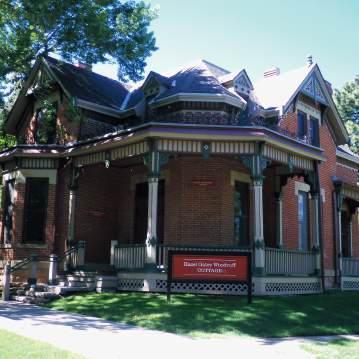
Students will select the thesis or practicum option based on what best fits their professional goals Degree Plans

The Department of Women and Gender Studies at the University of Colorado Boulder is now offering a Master of Arts in Gender and Sexuality Studies. This post-baccalaureate degree program centers intersectional, decolonial, transnational, and social transformation frameworks in the study of women, gender, and sexuality. The program provides students an interdisciplinary education using a variety of theoretical and methodological approaches across the humanities and the social sciences, preparing students for academic work at the doctoral level and/or for careers in a wide range of related fields.

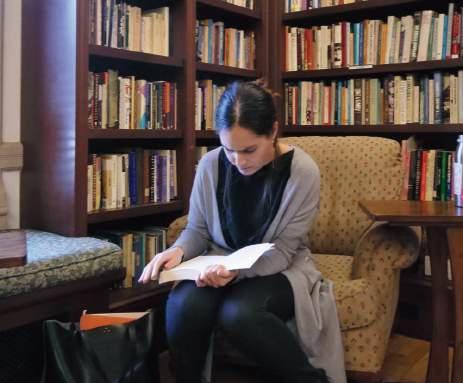
Funding Opportunities
Funding in the form of Teaching Assistantships and other resources are available
Our Values
Our faculty’s dedication to teaching and mentorship ensures that students receive a transformative education